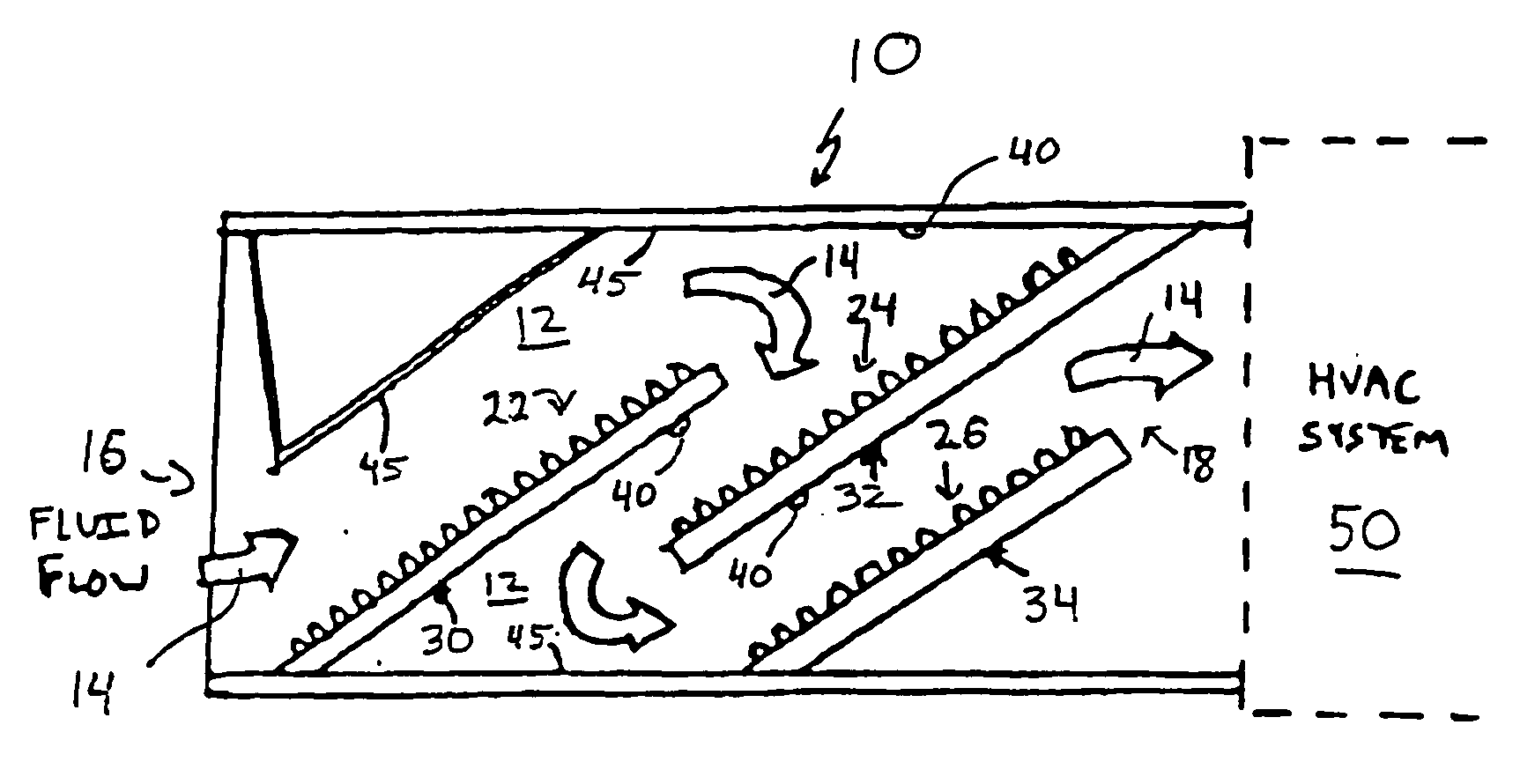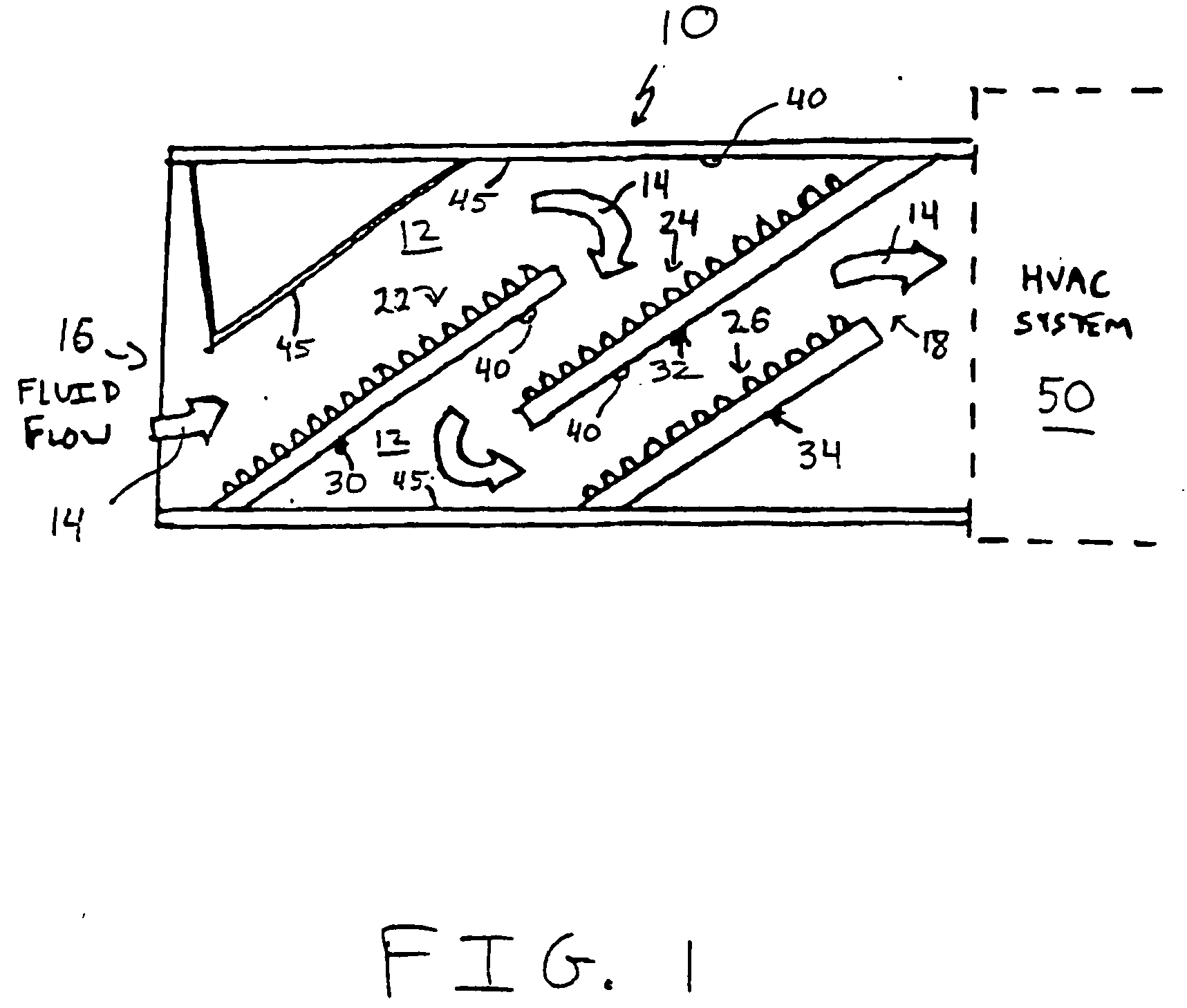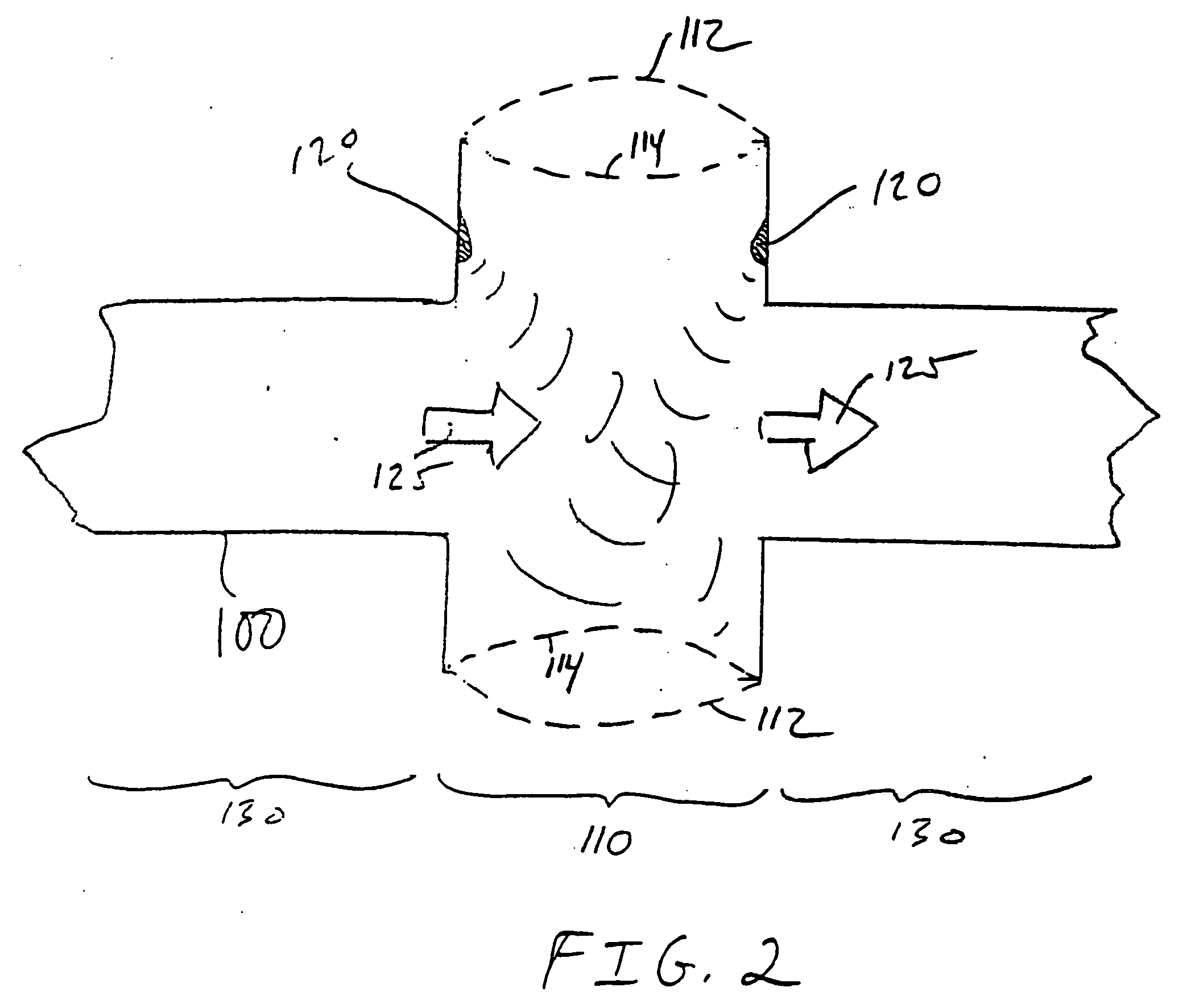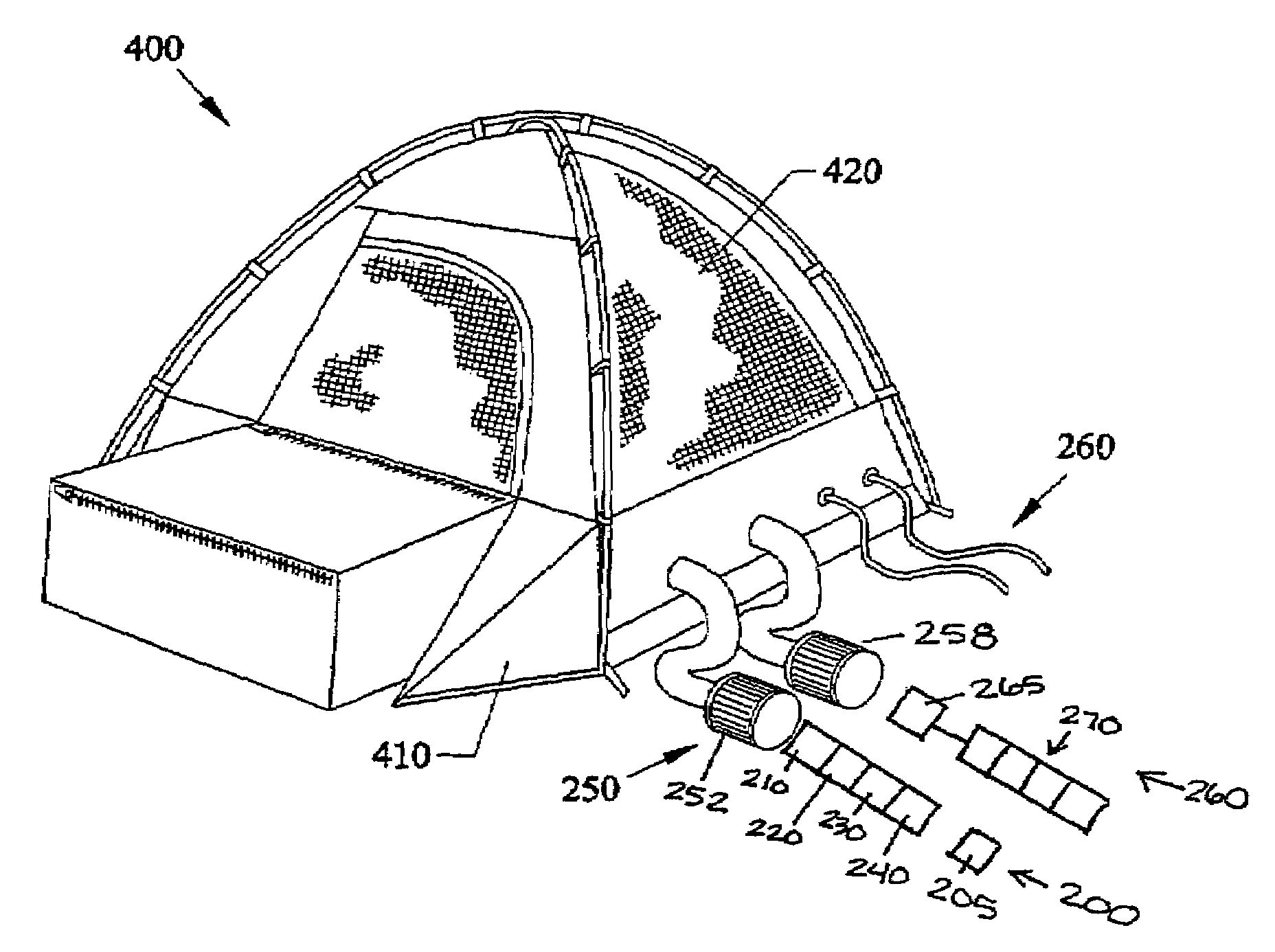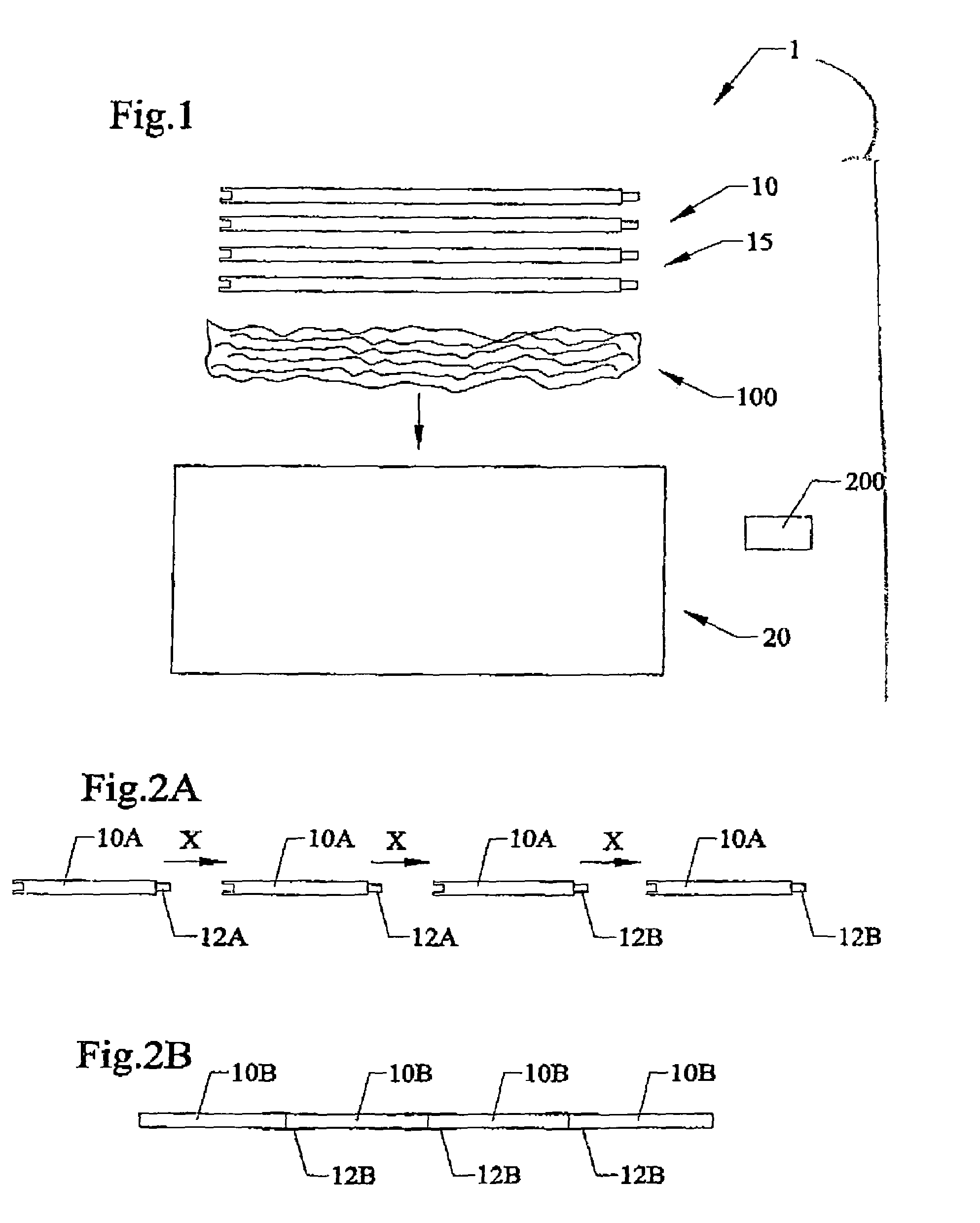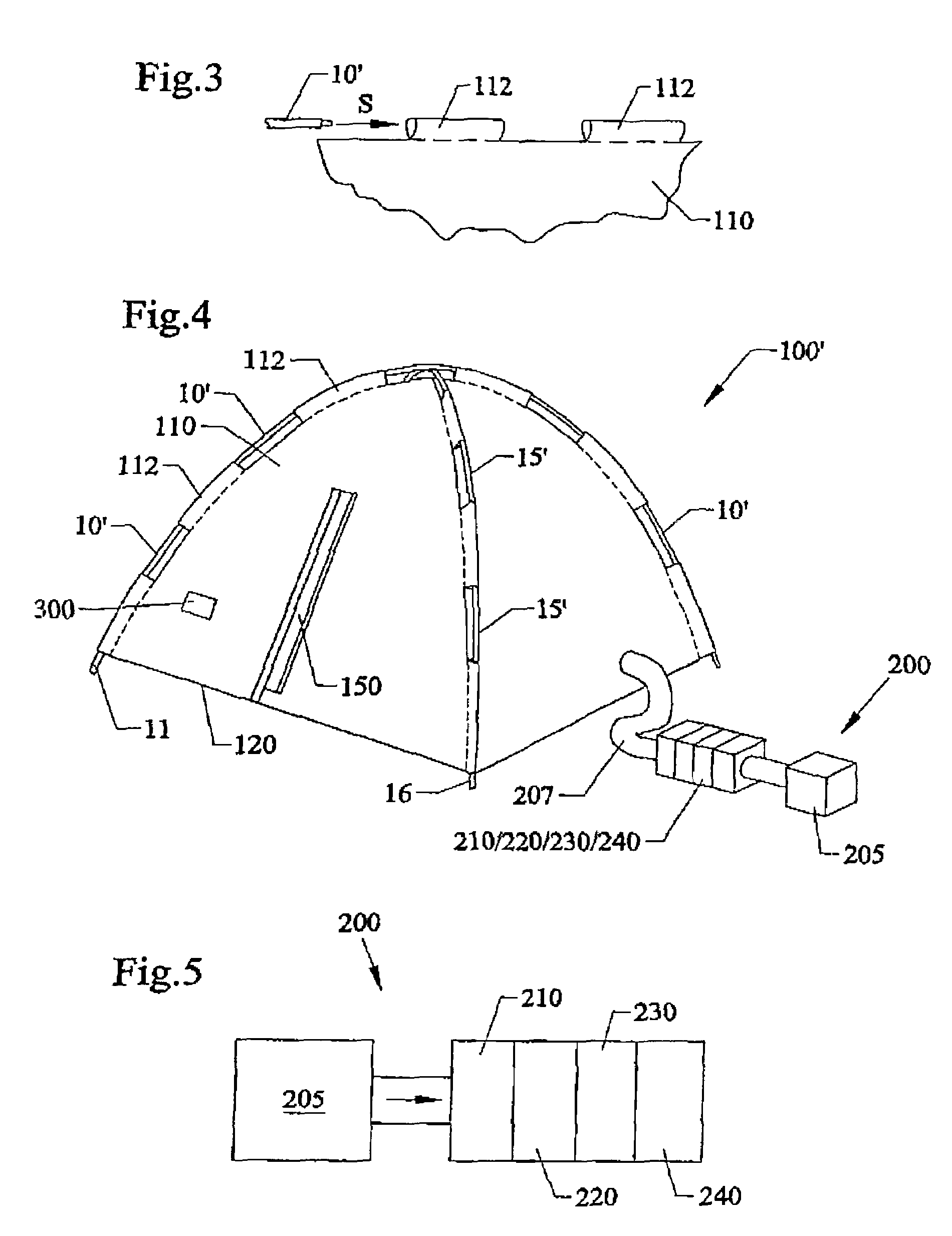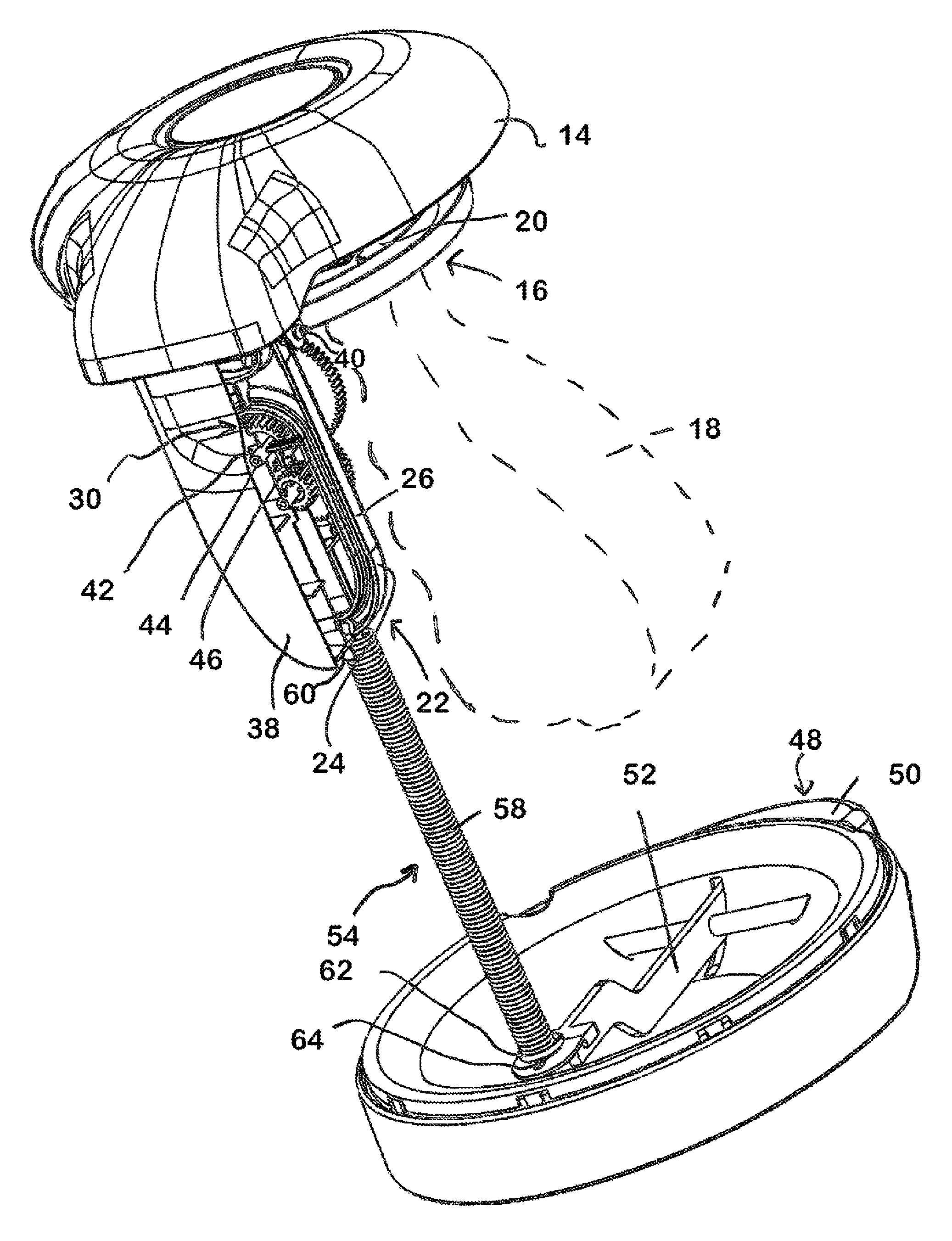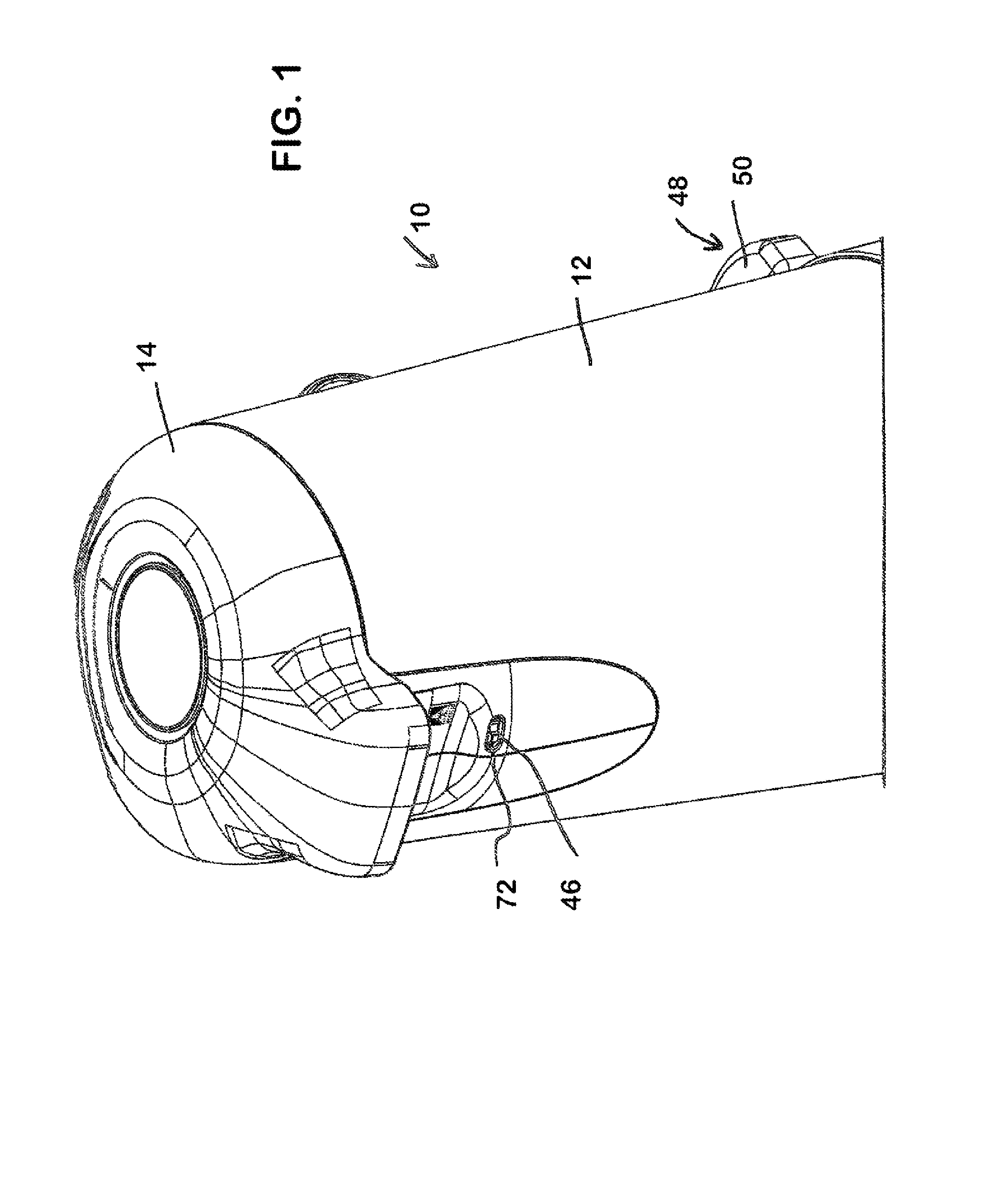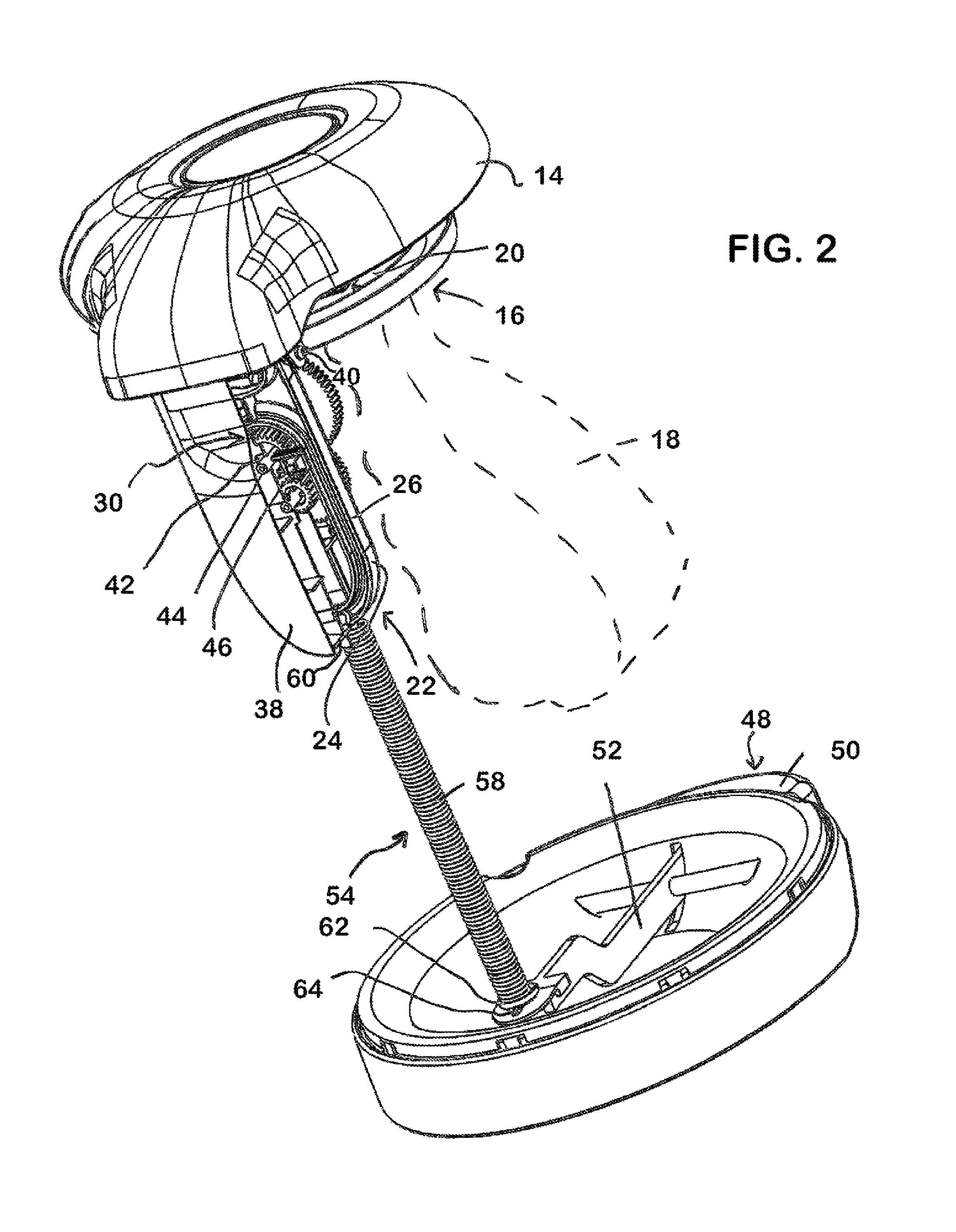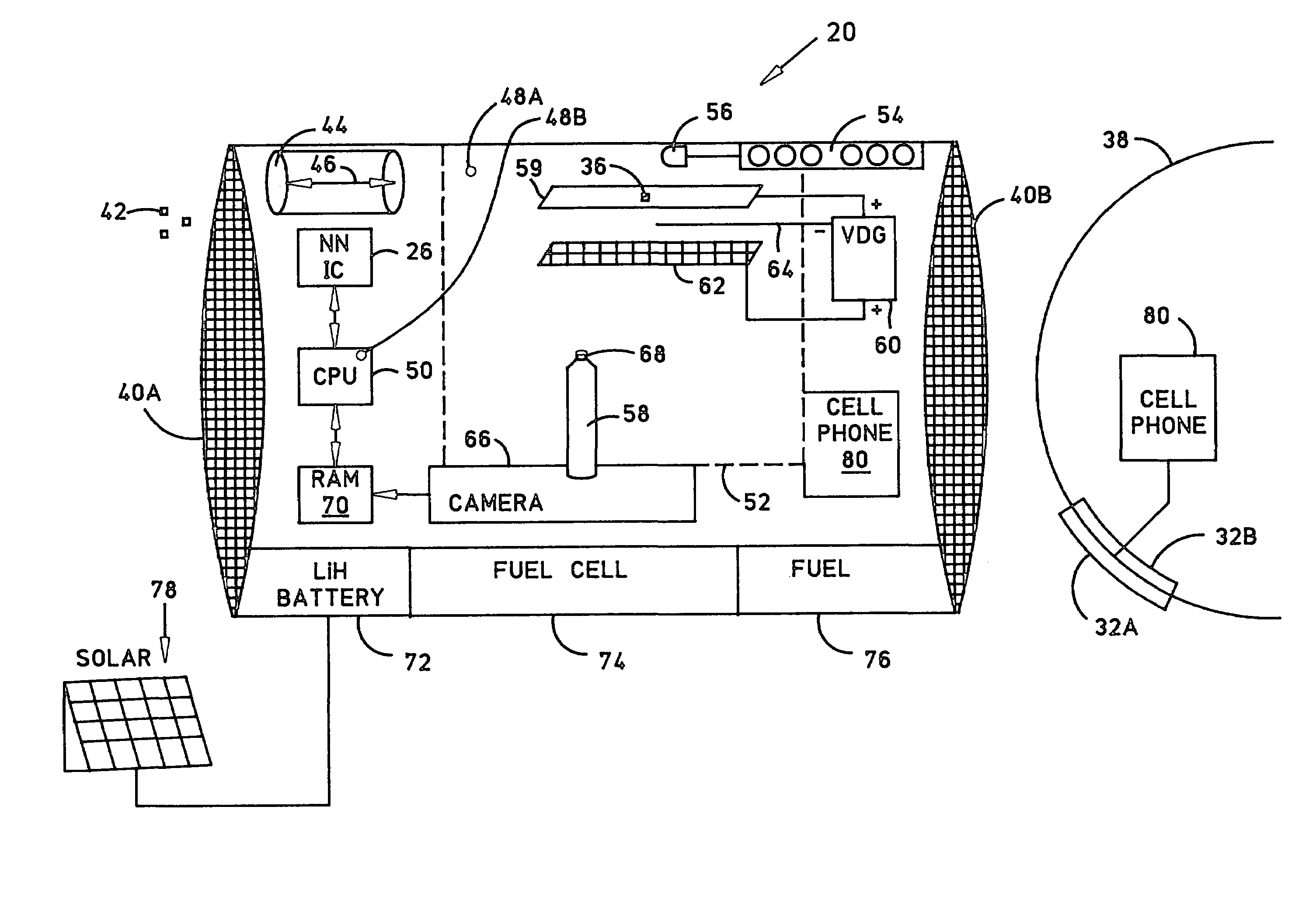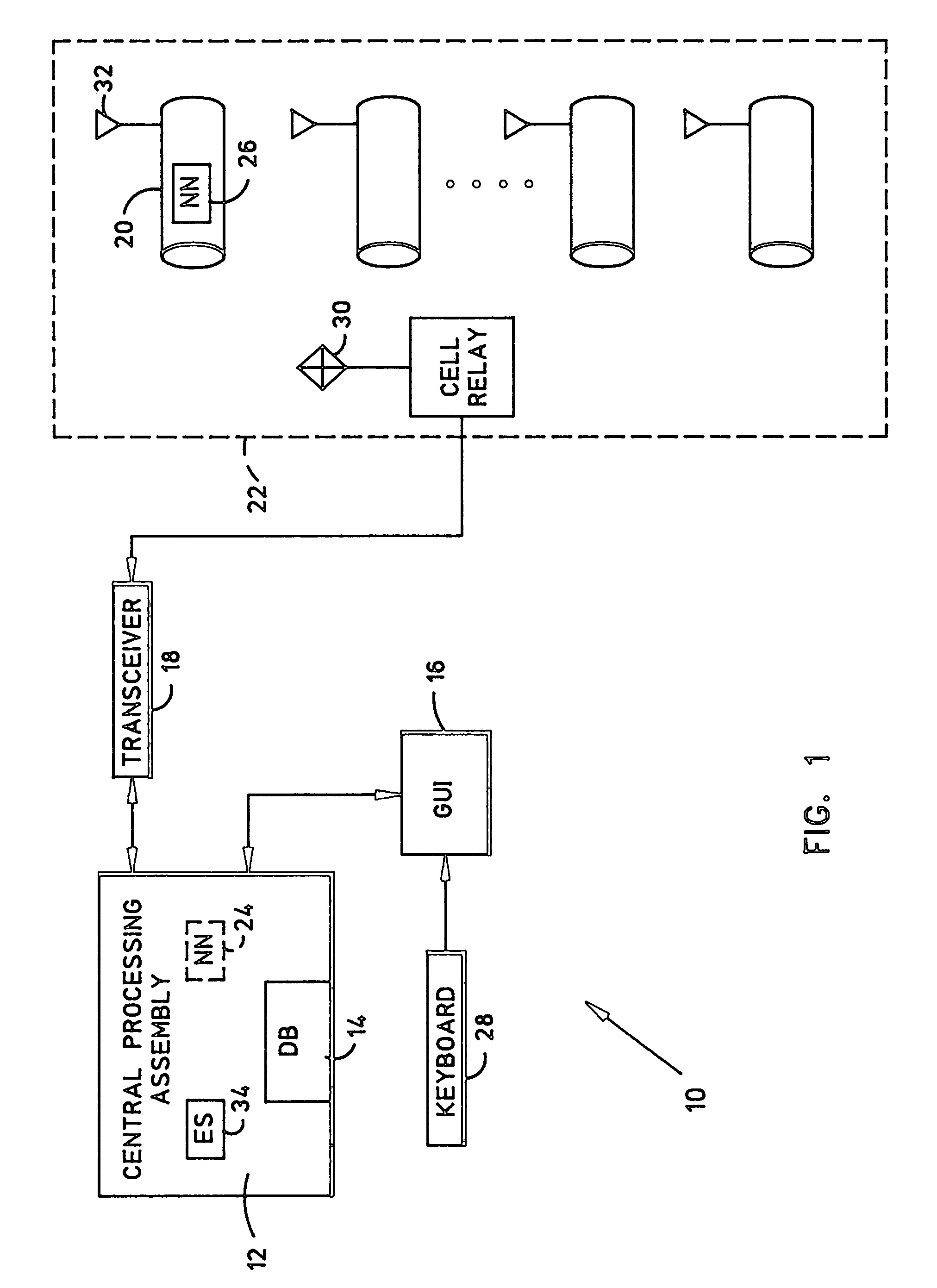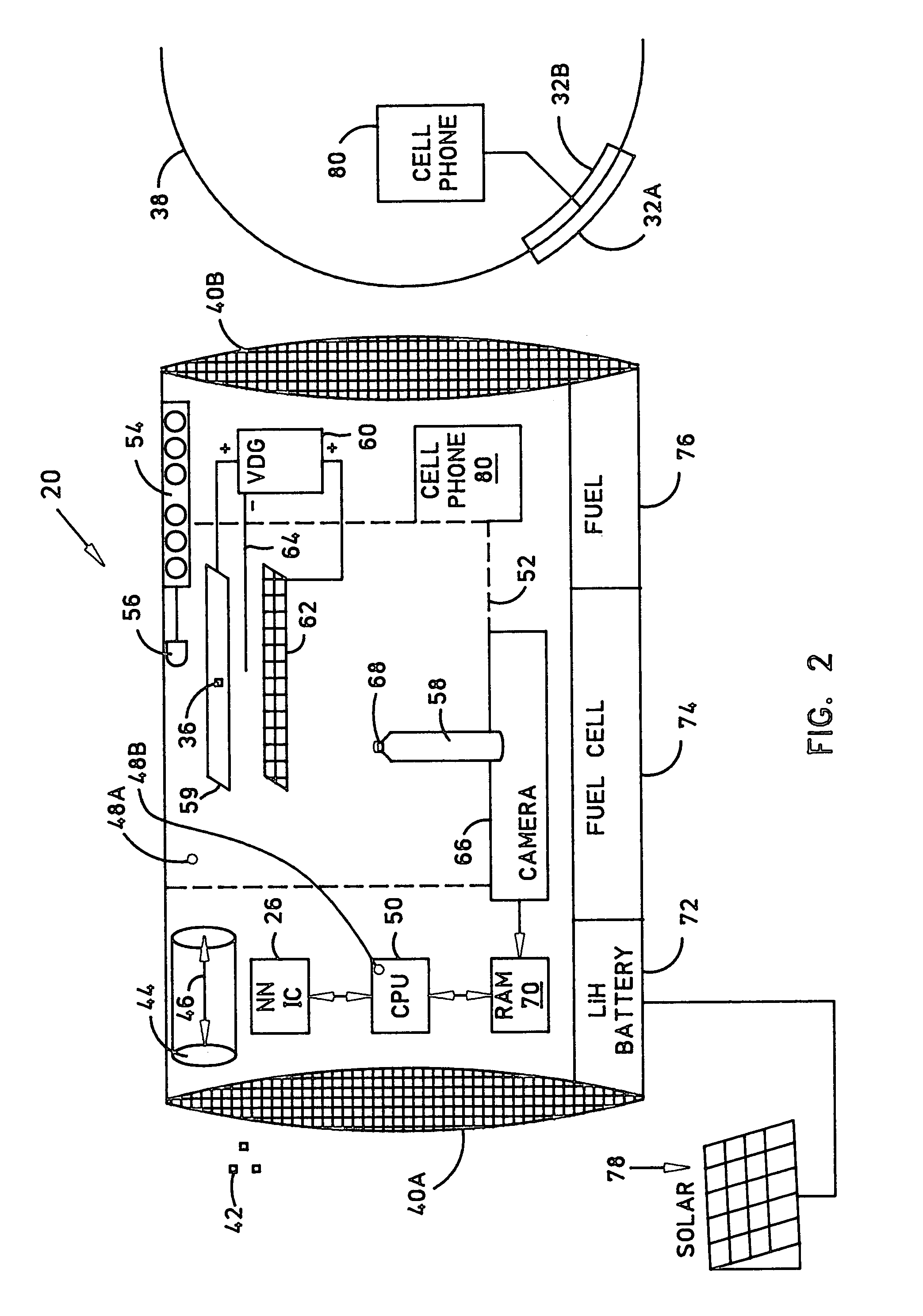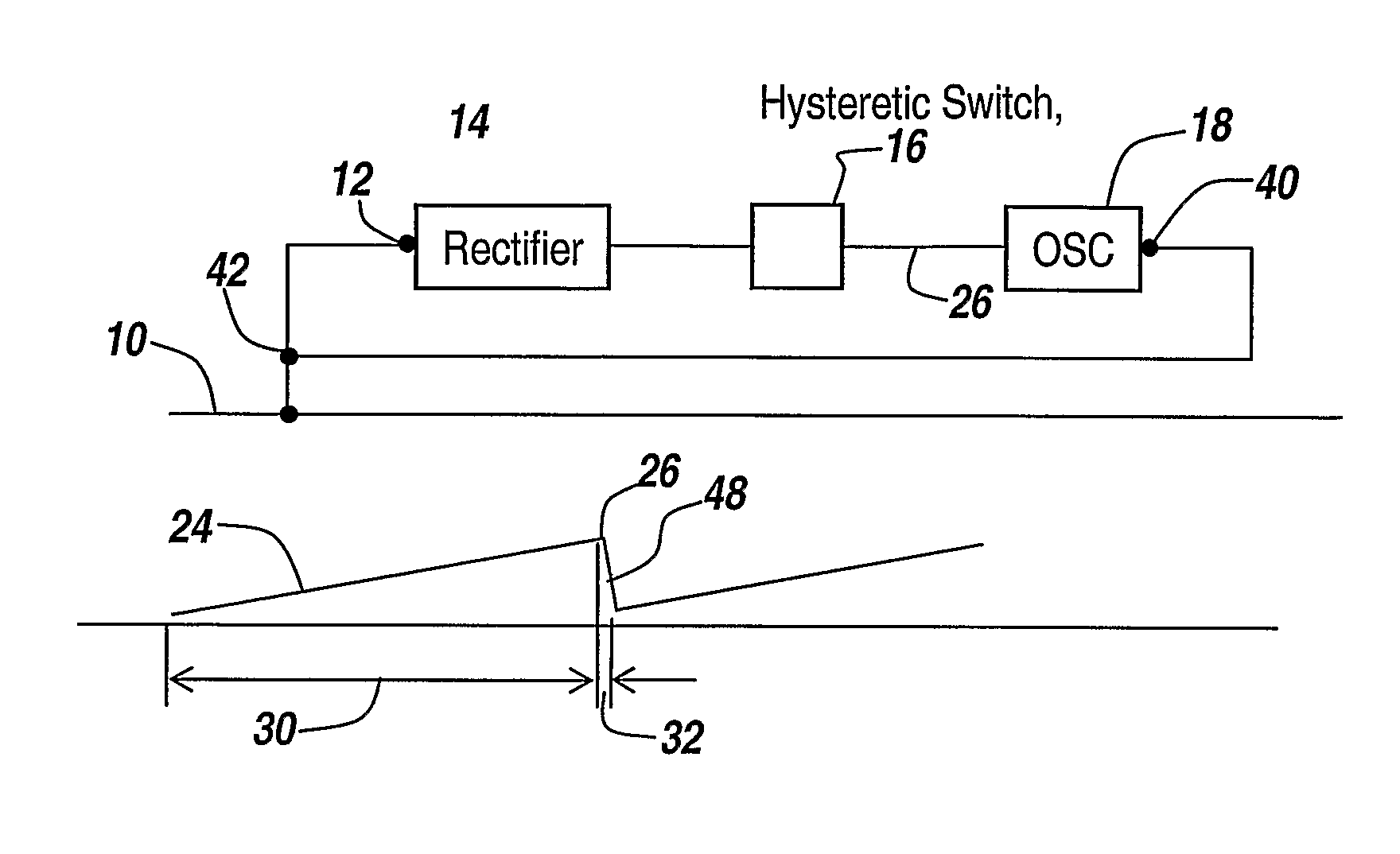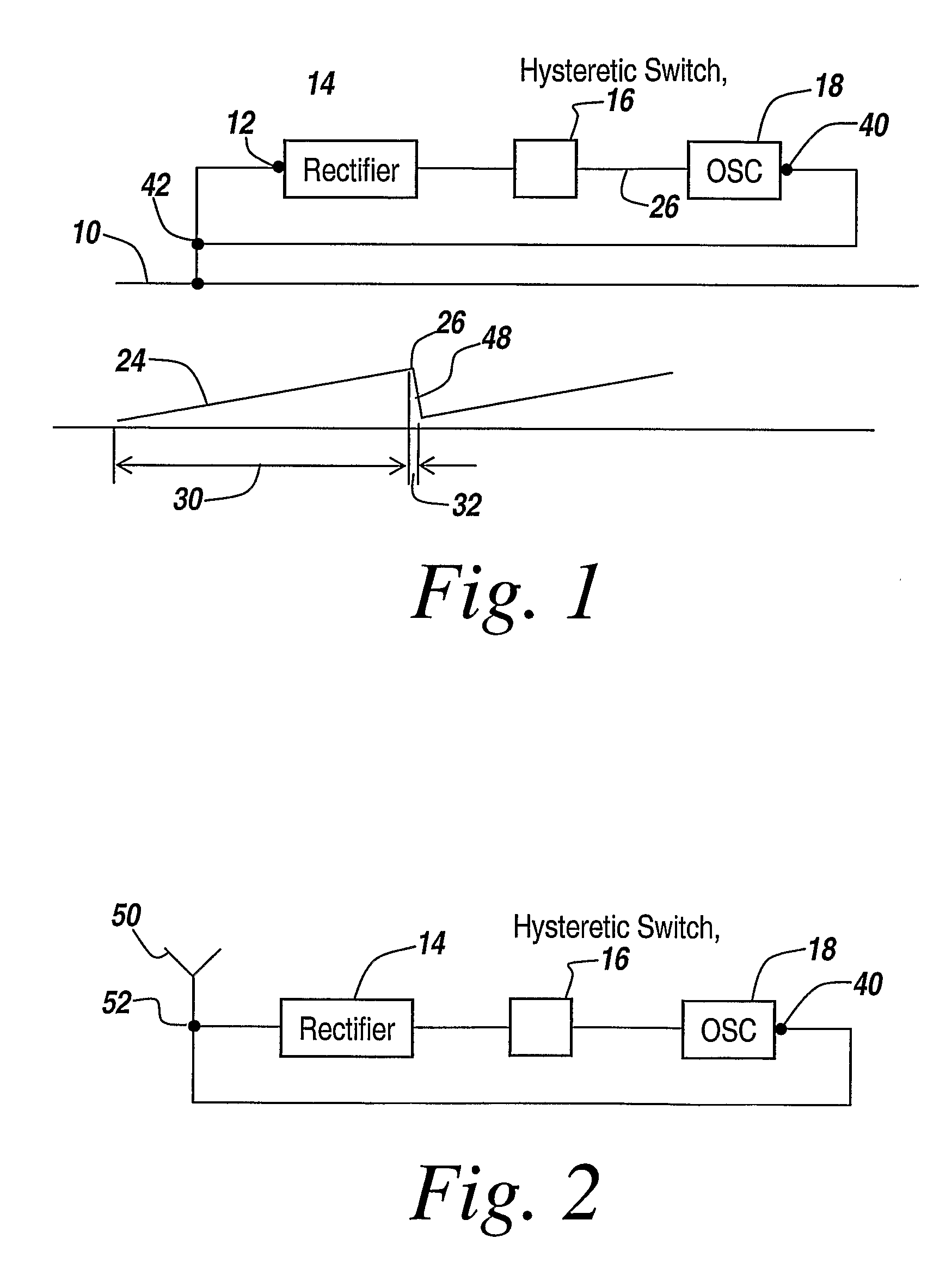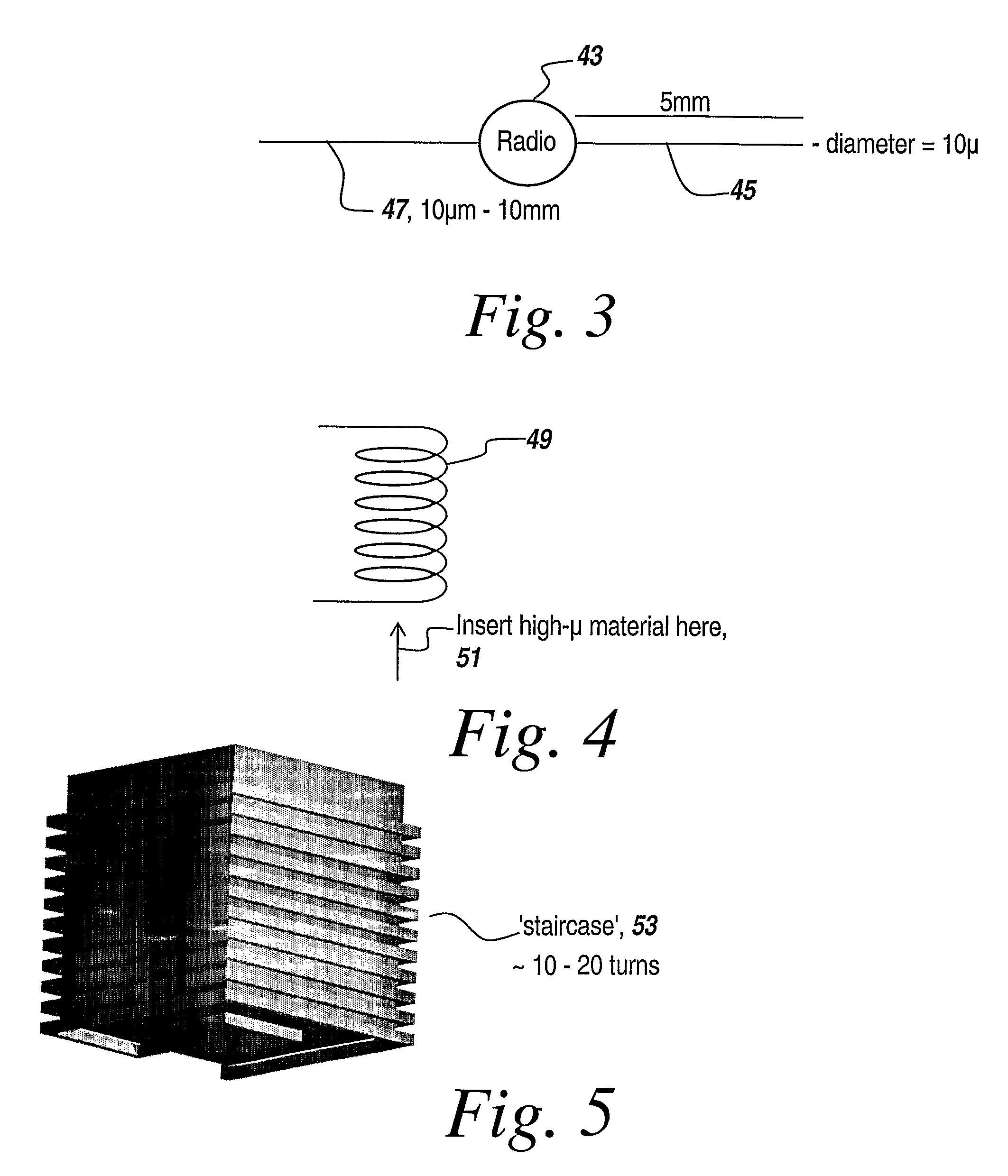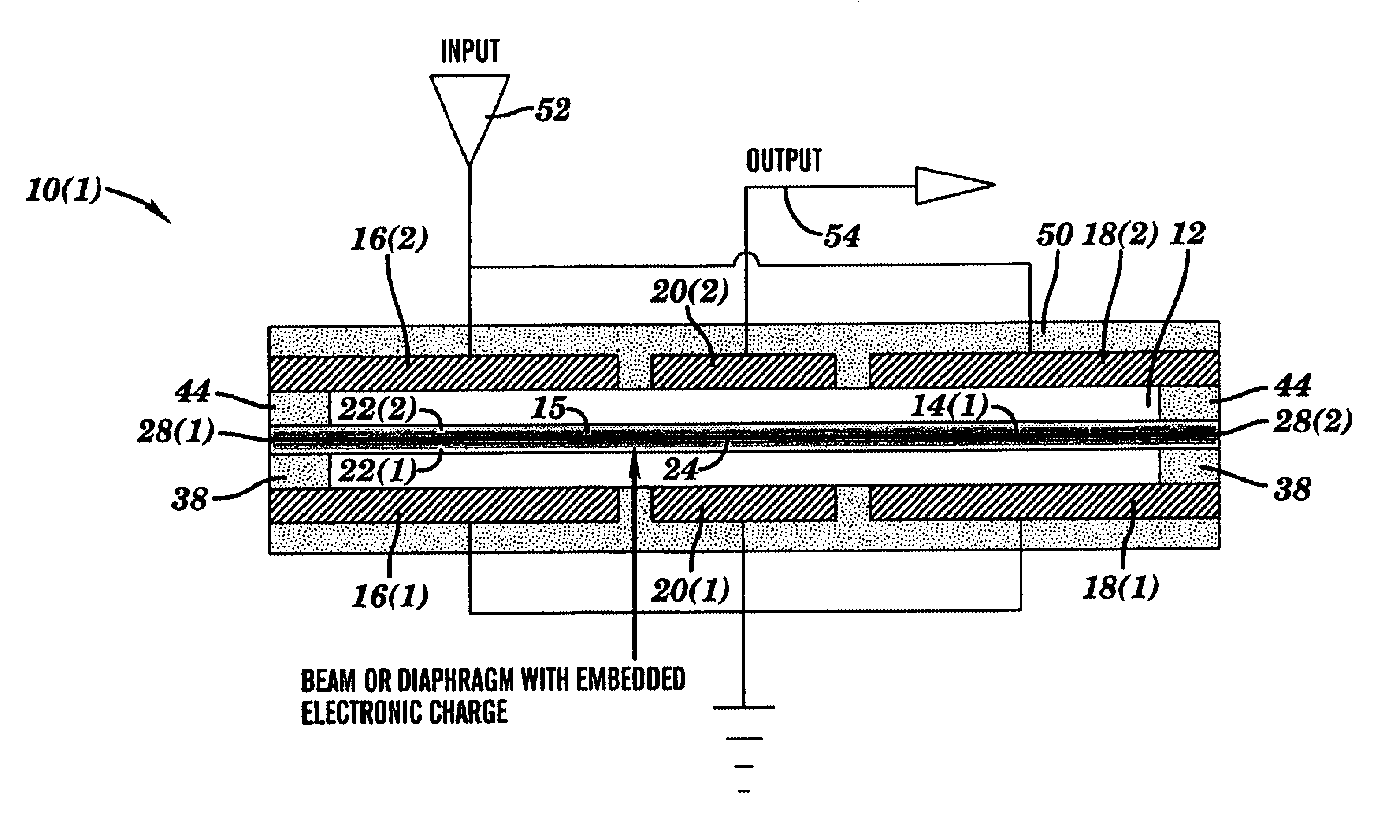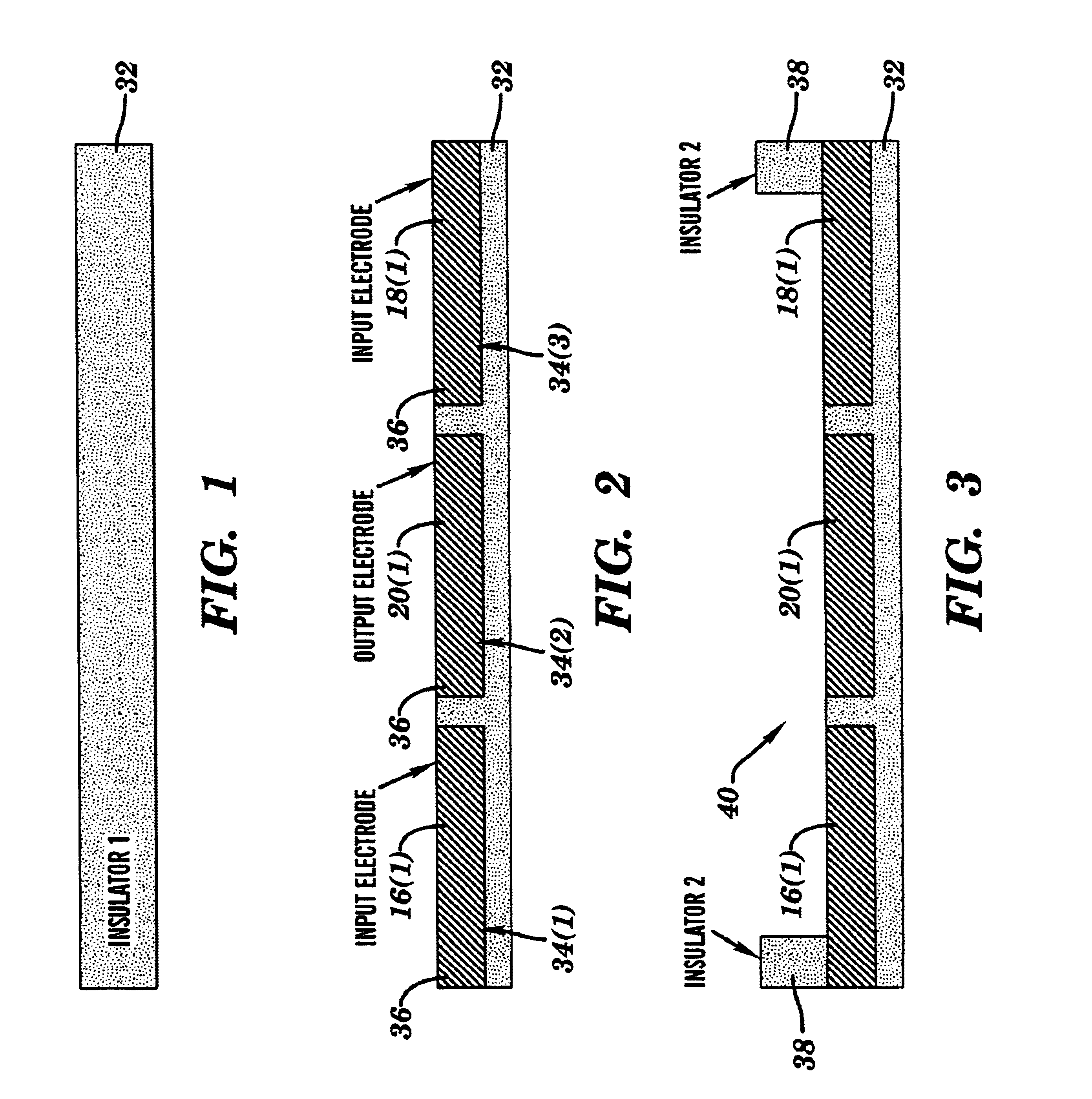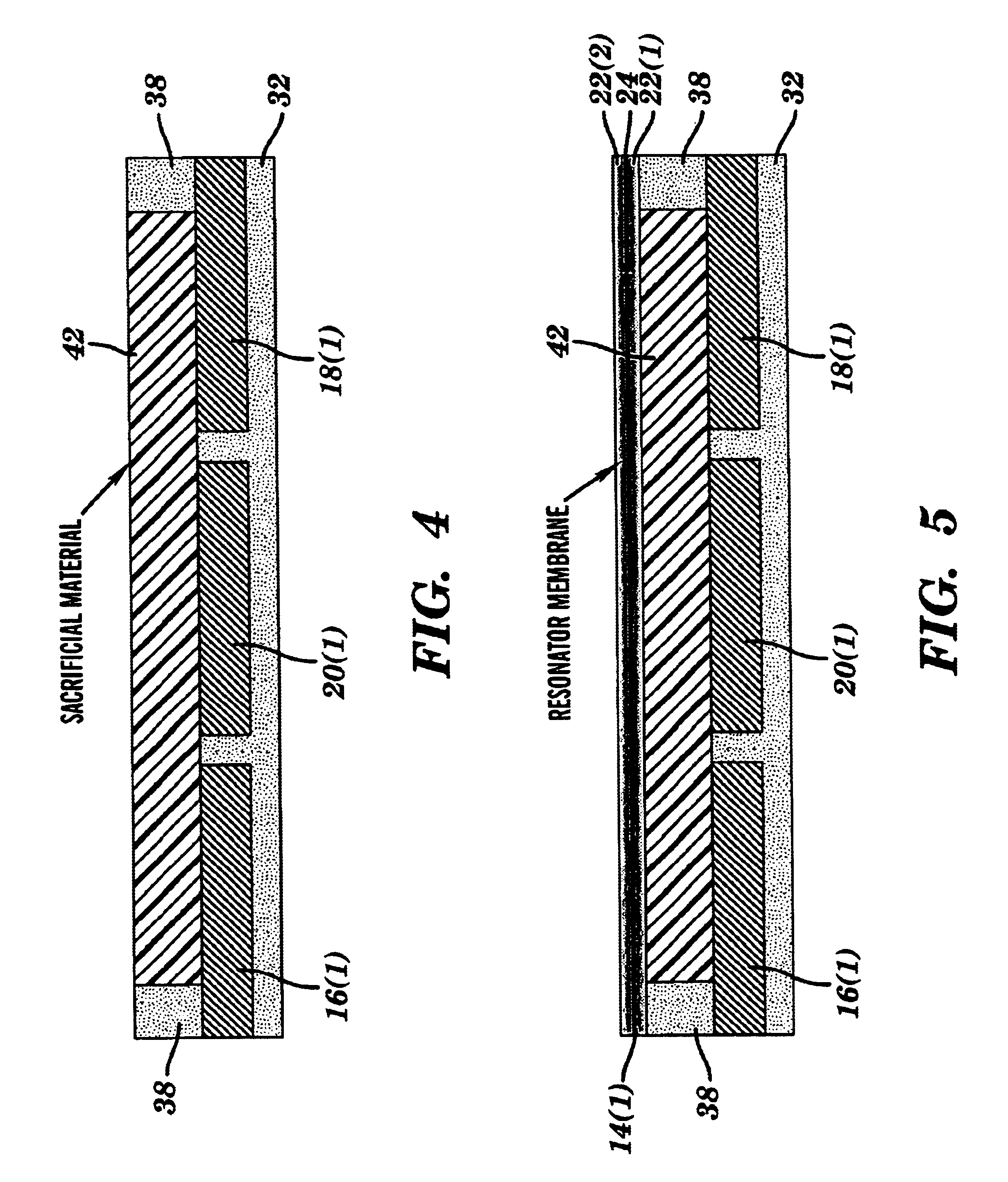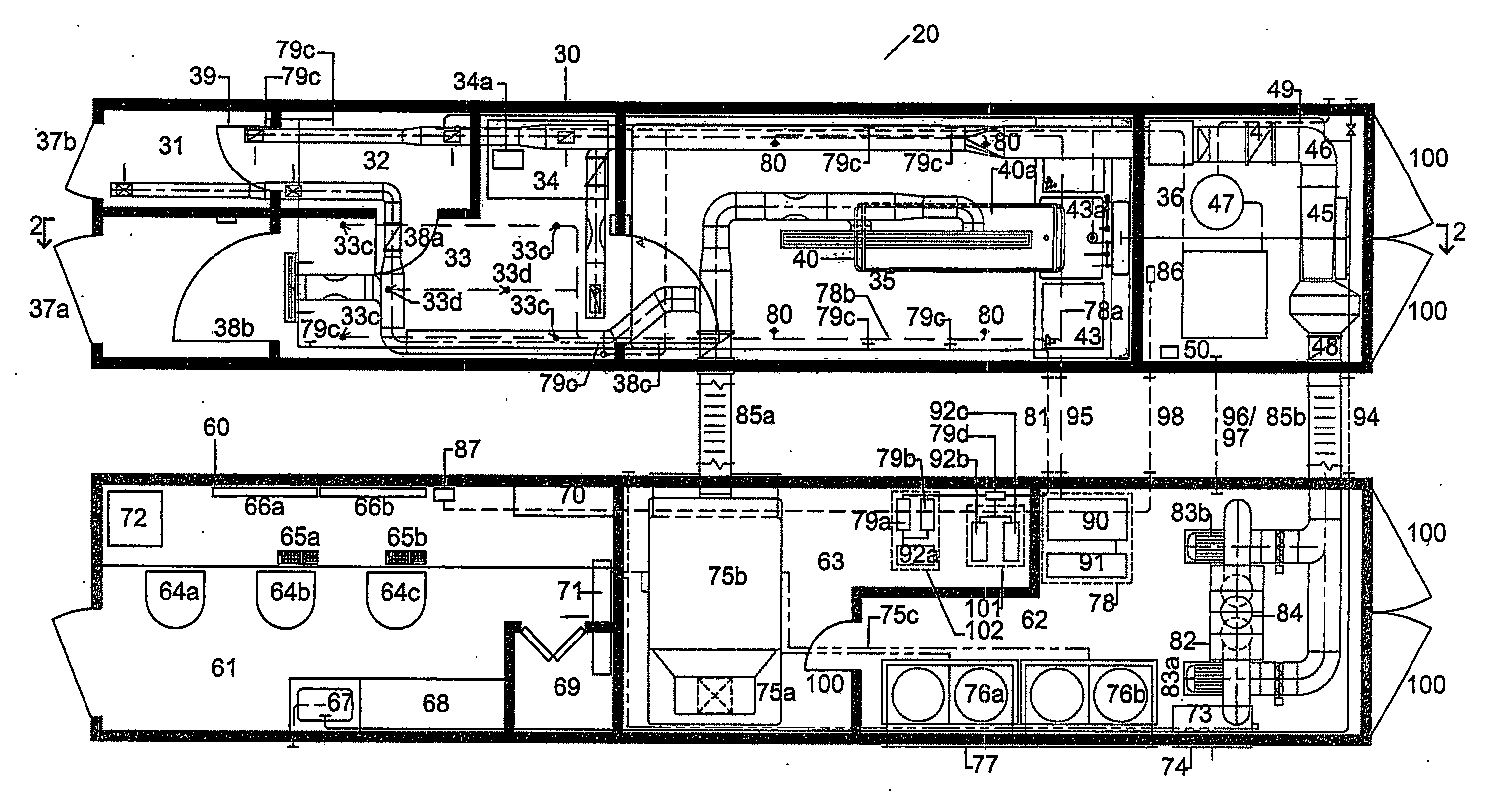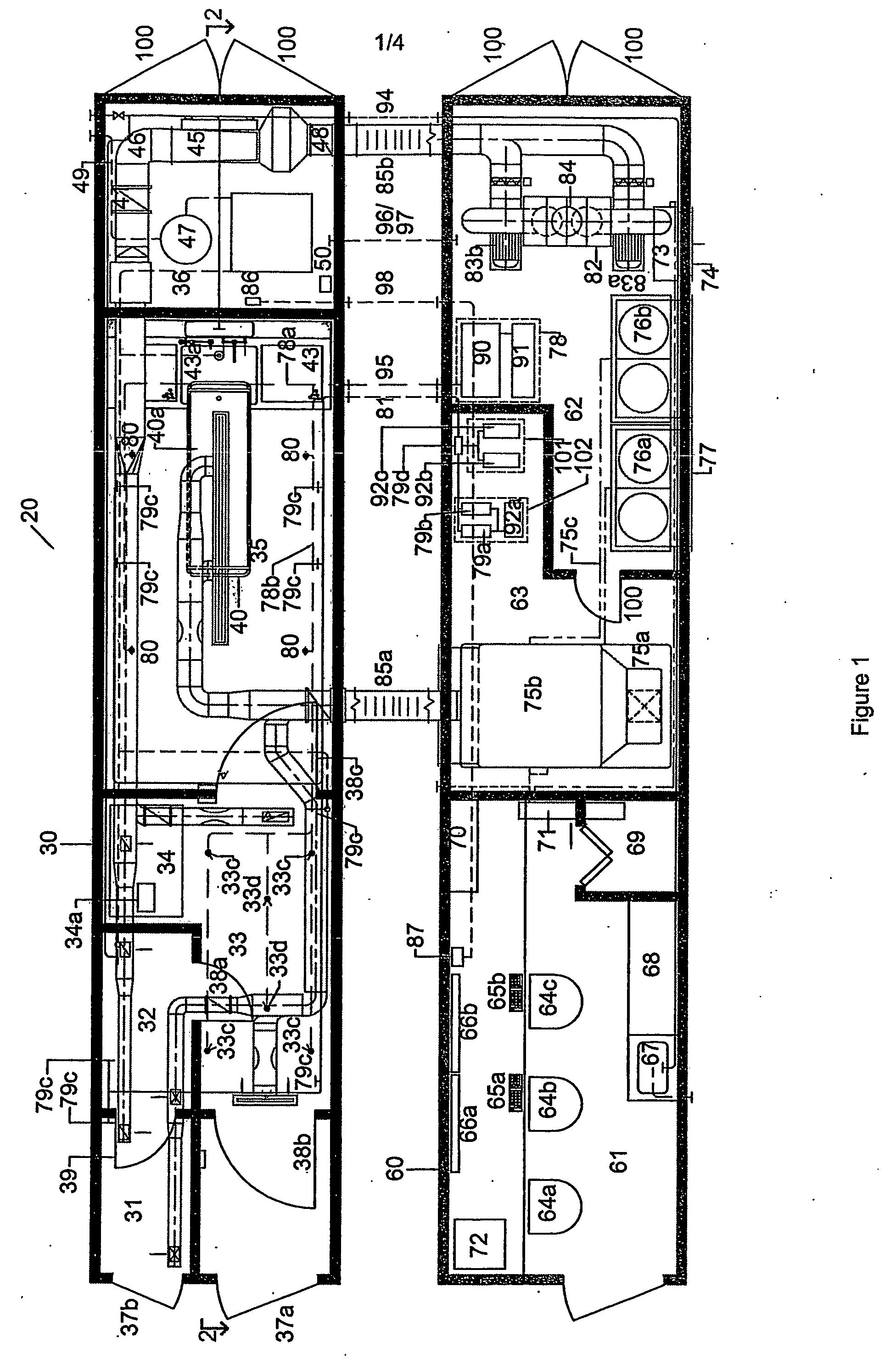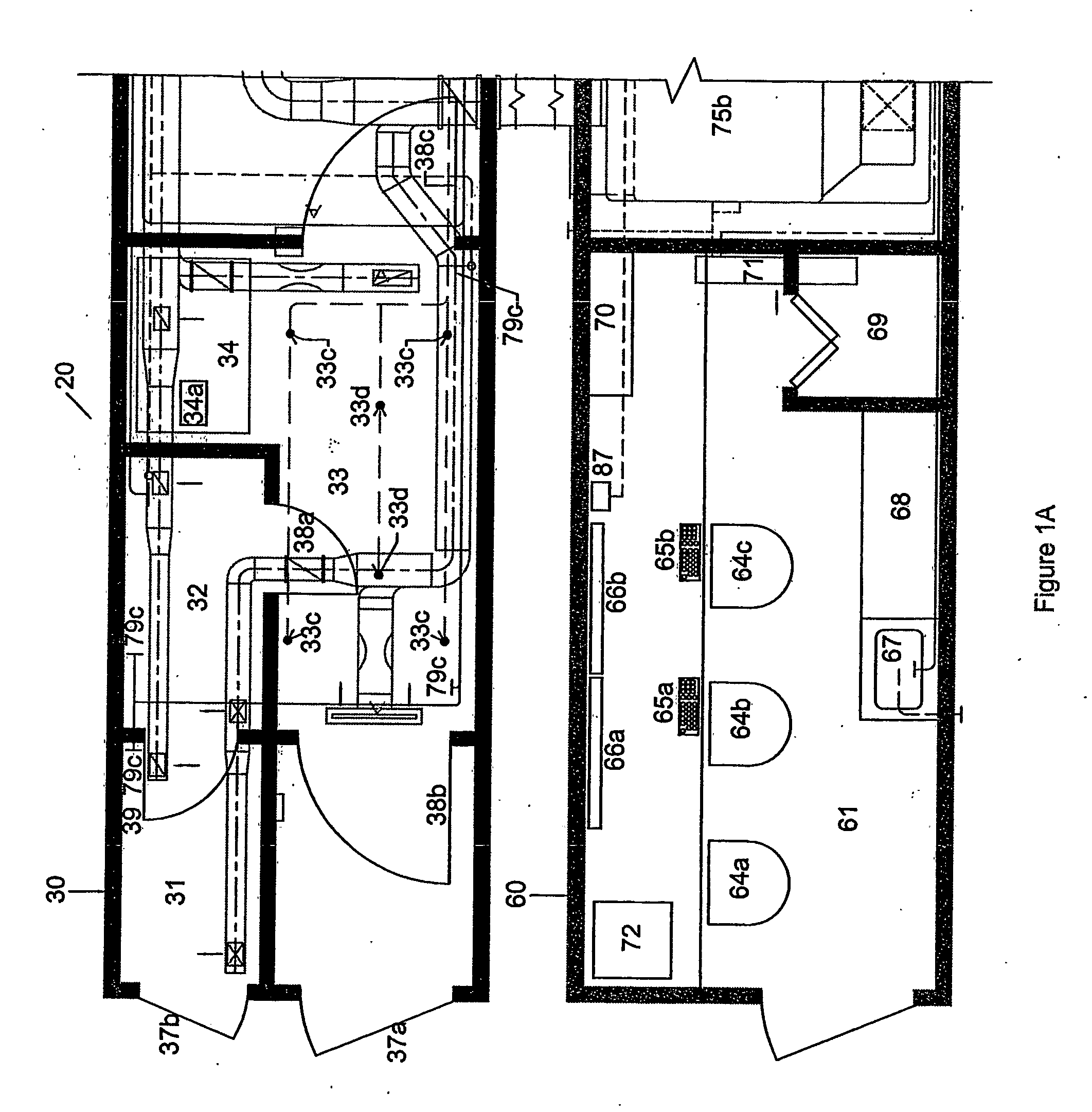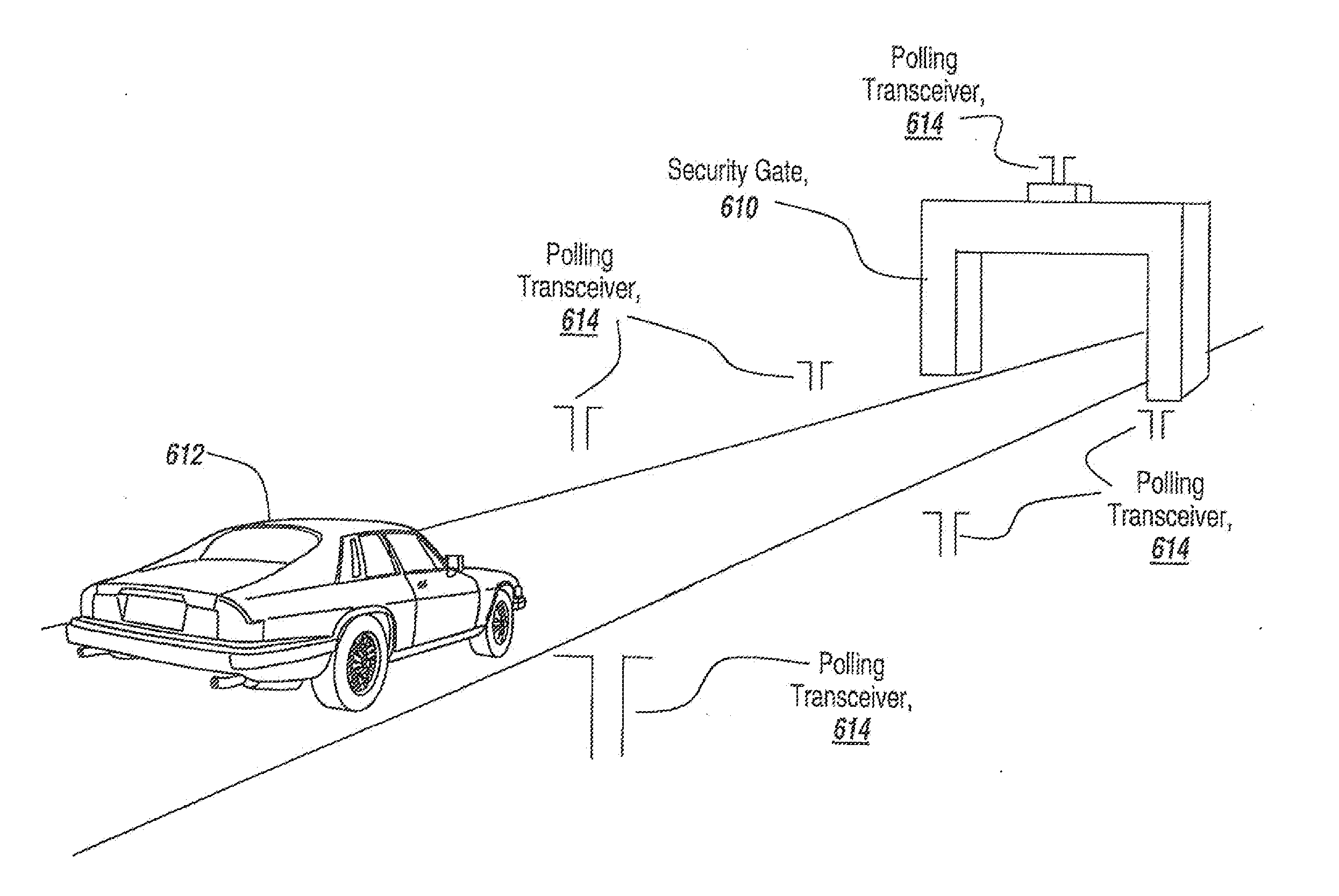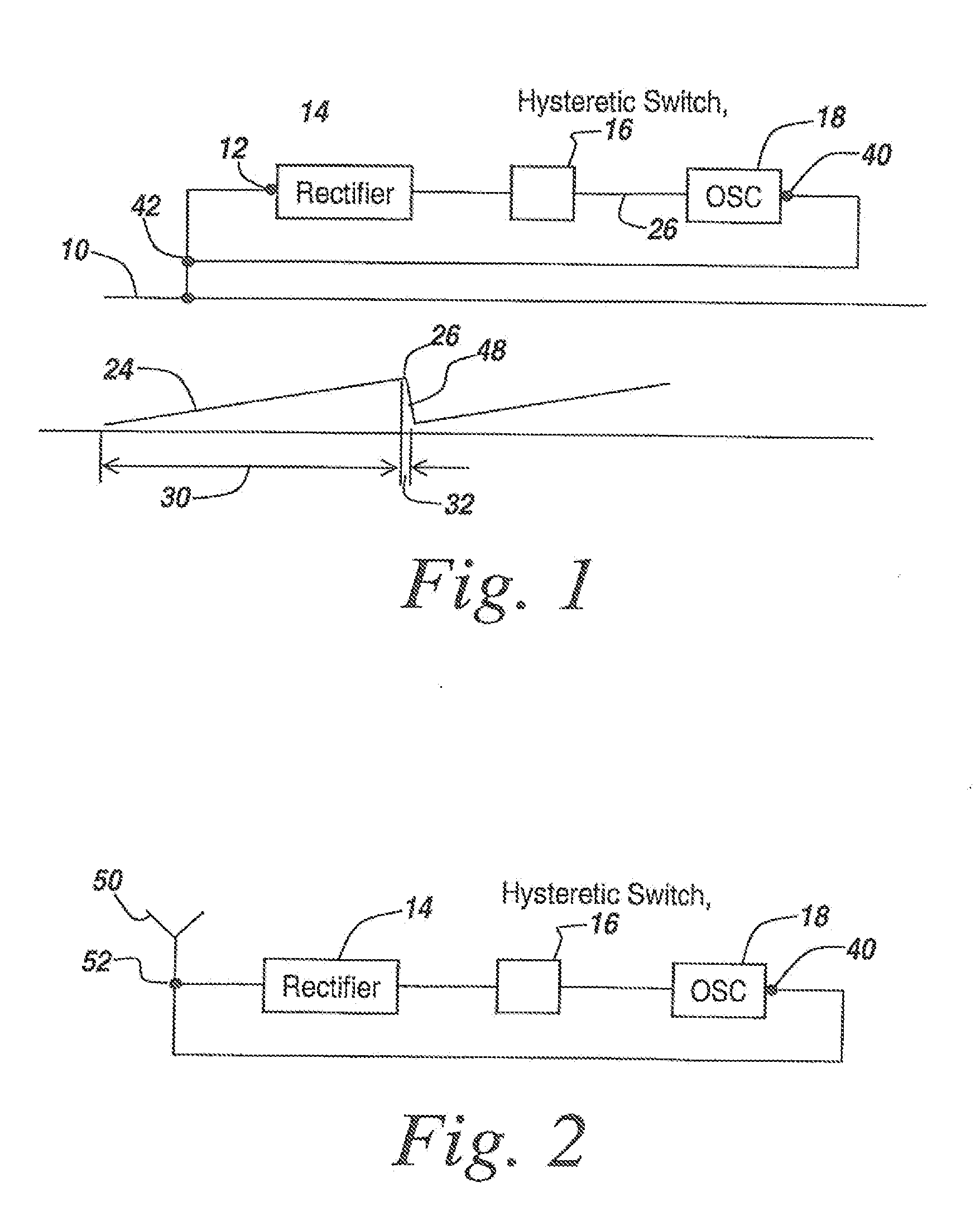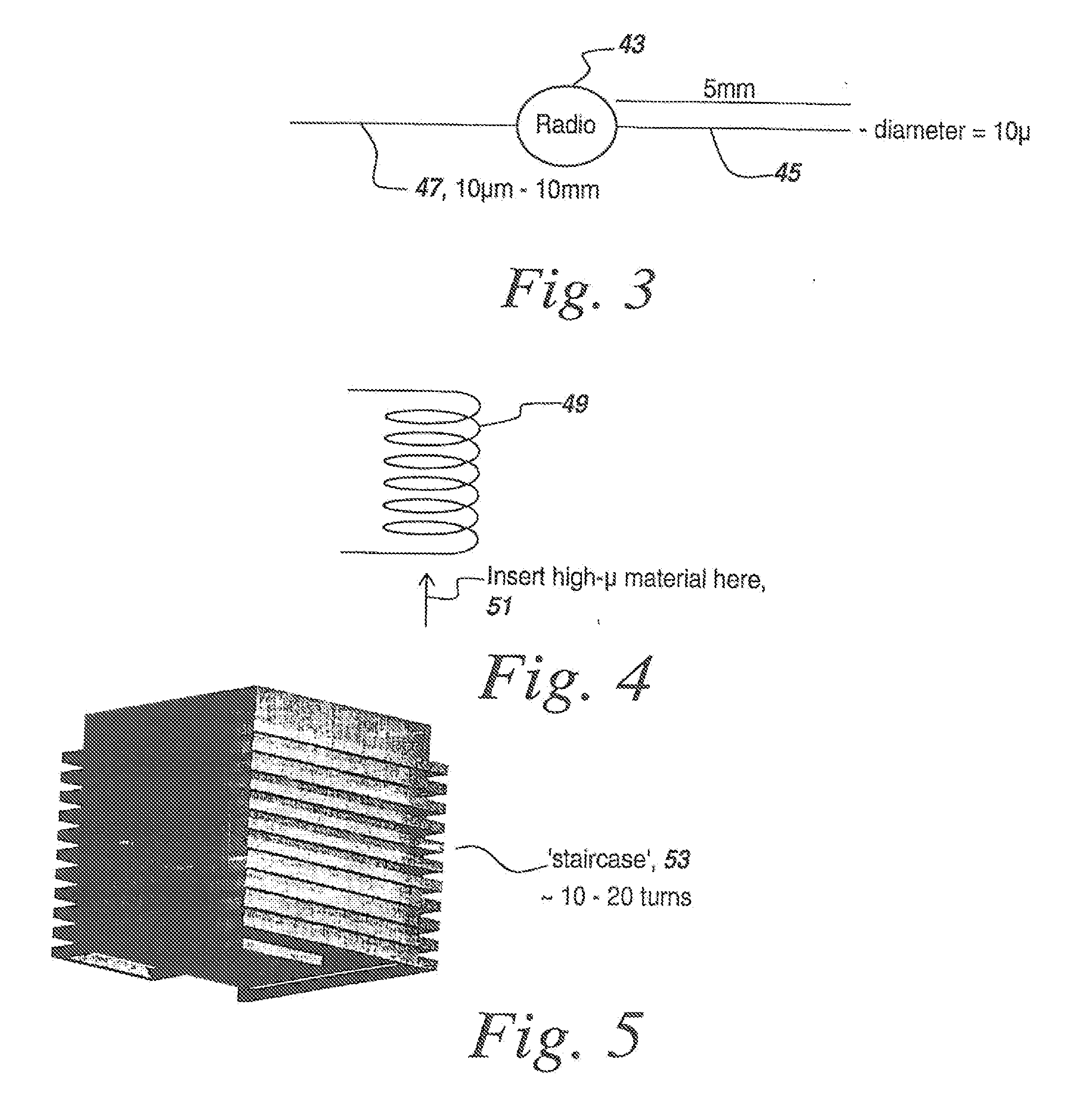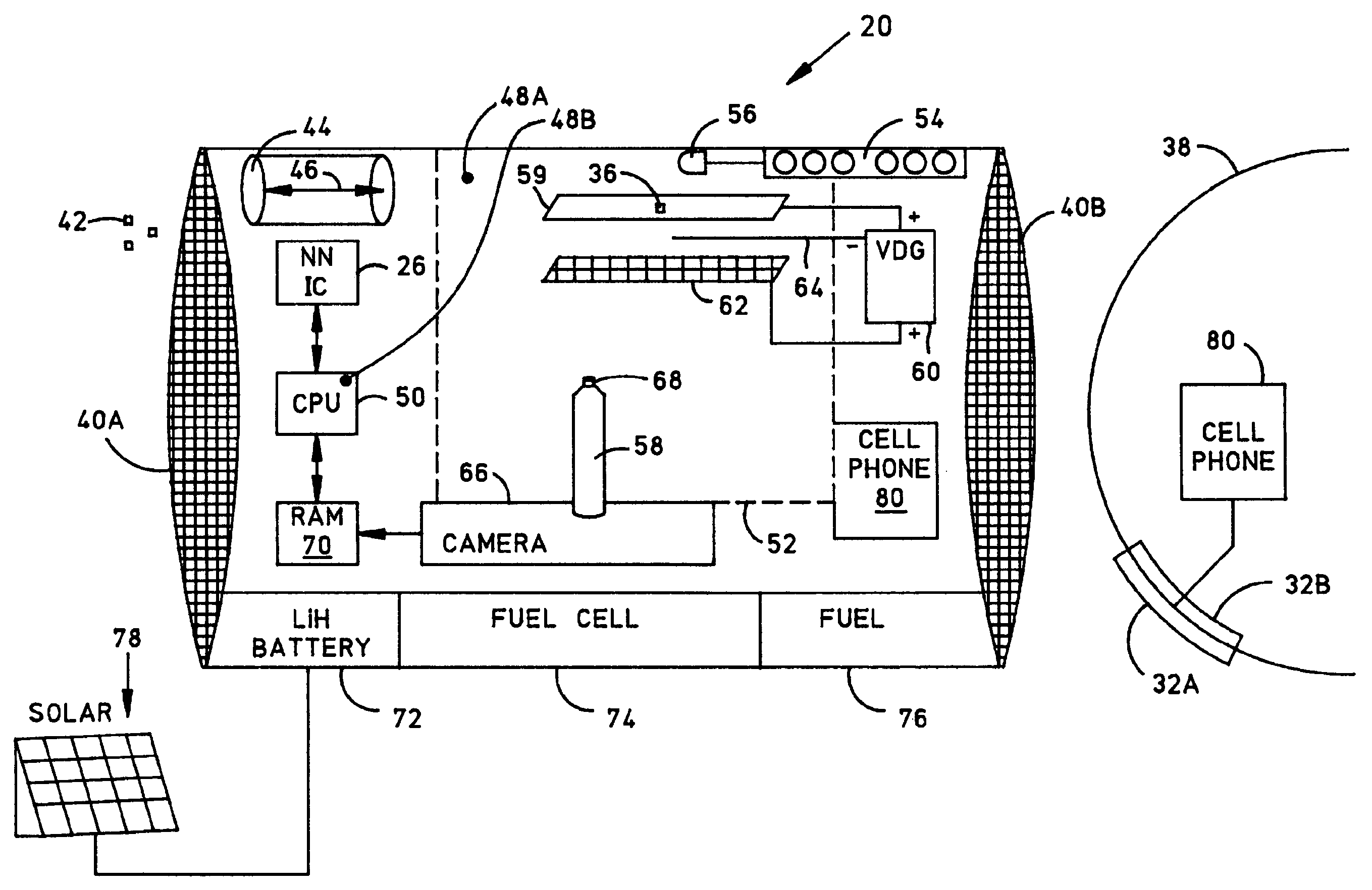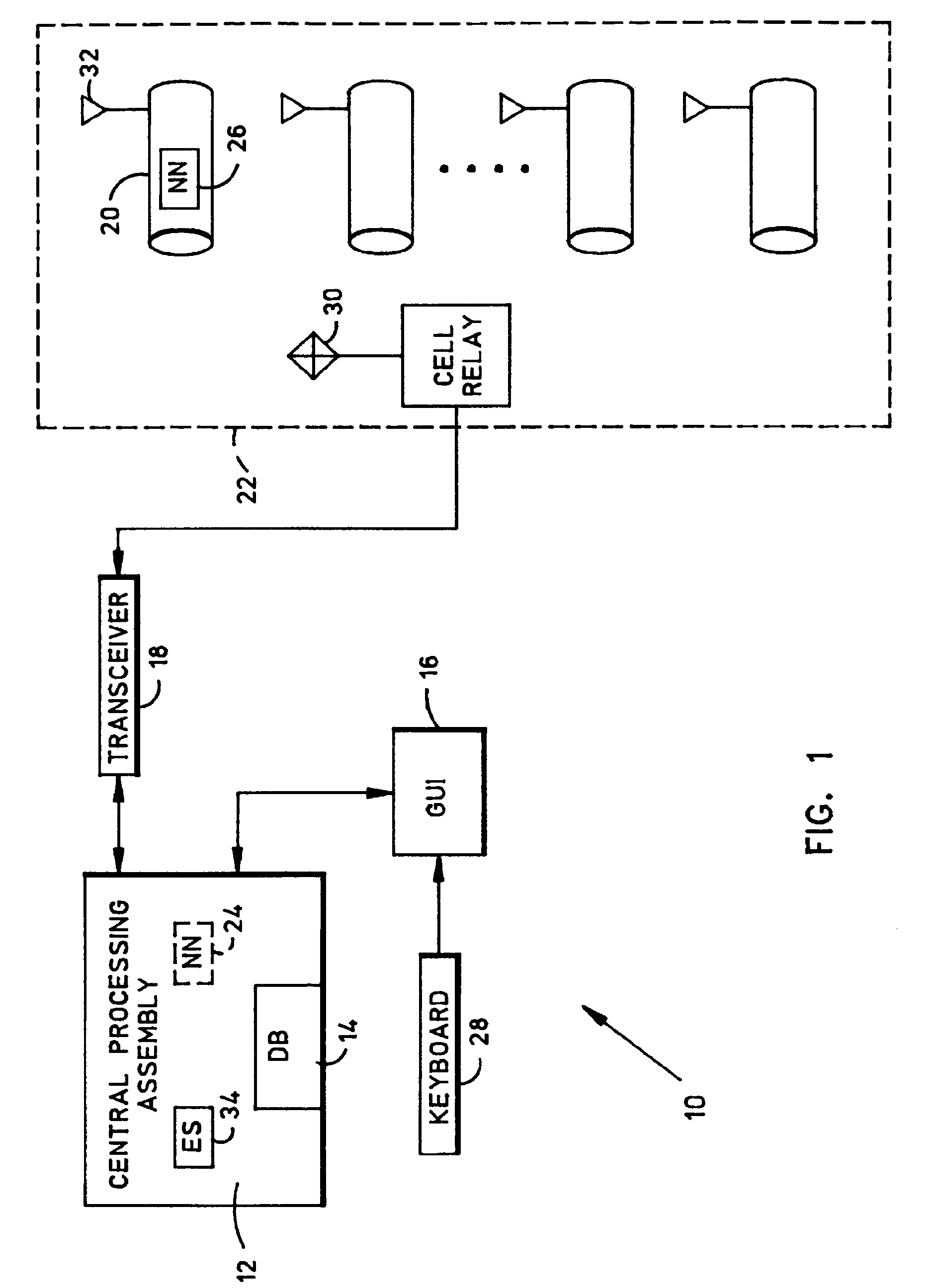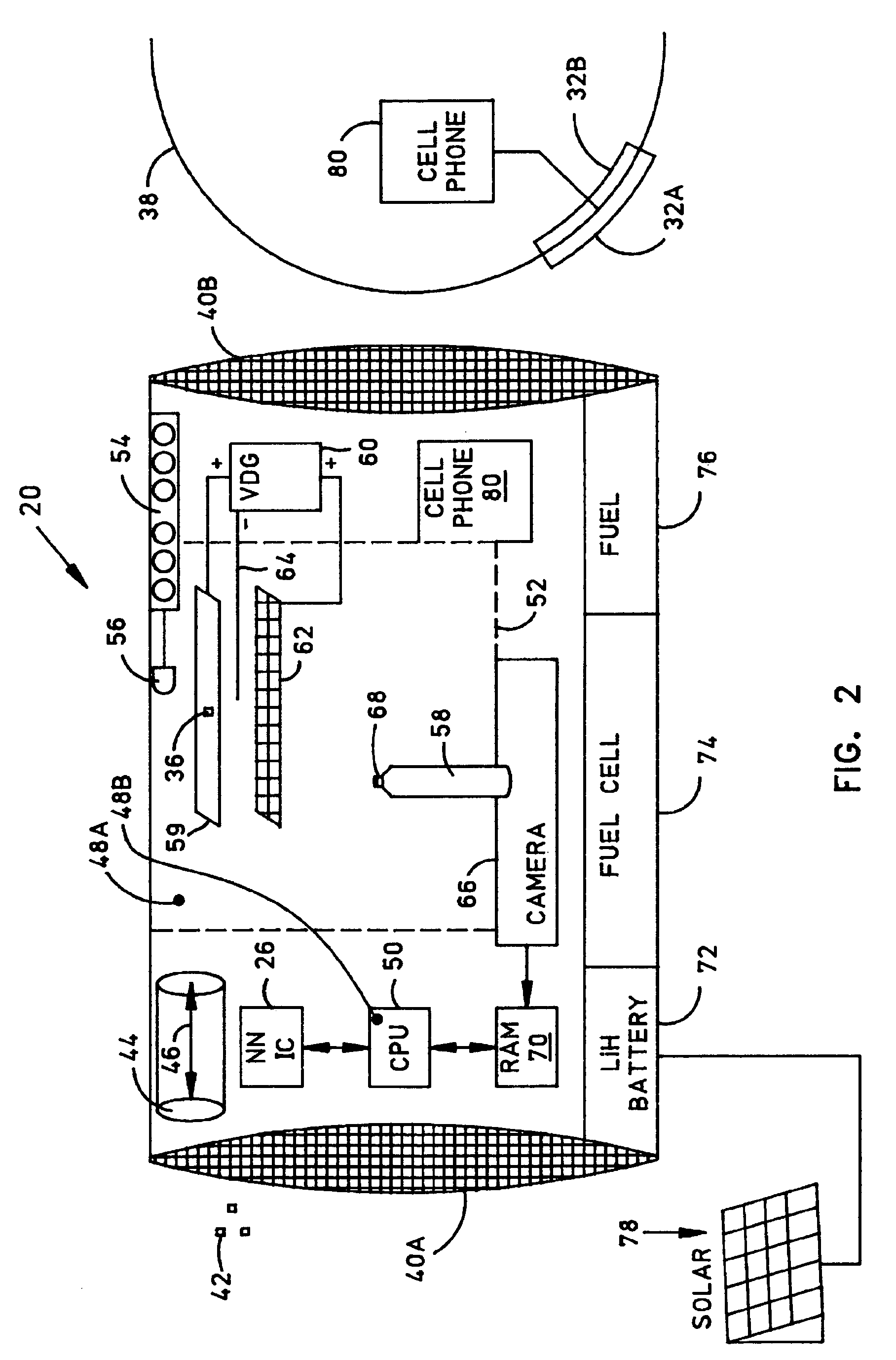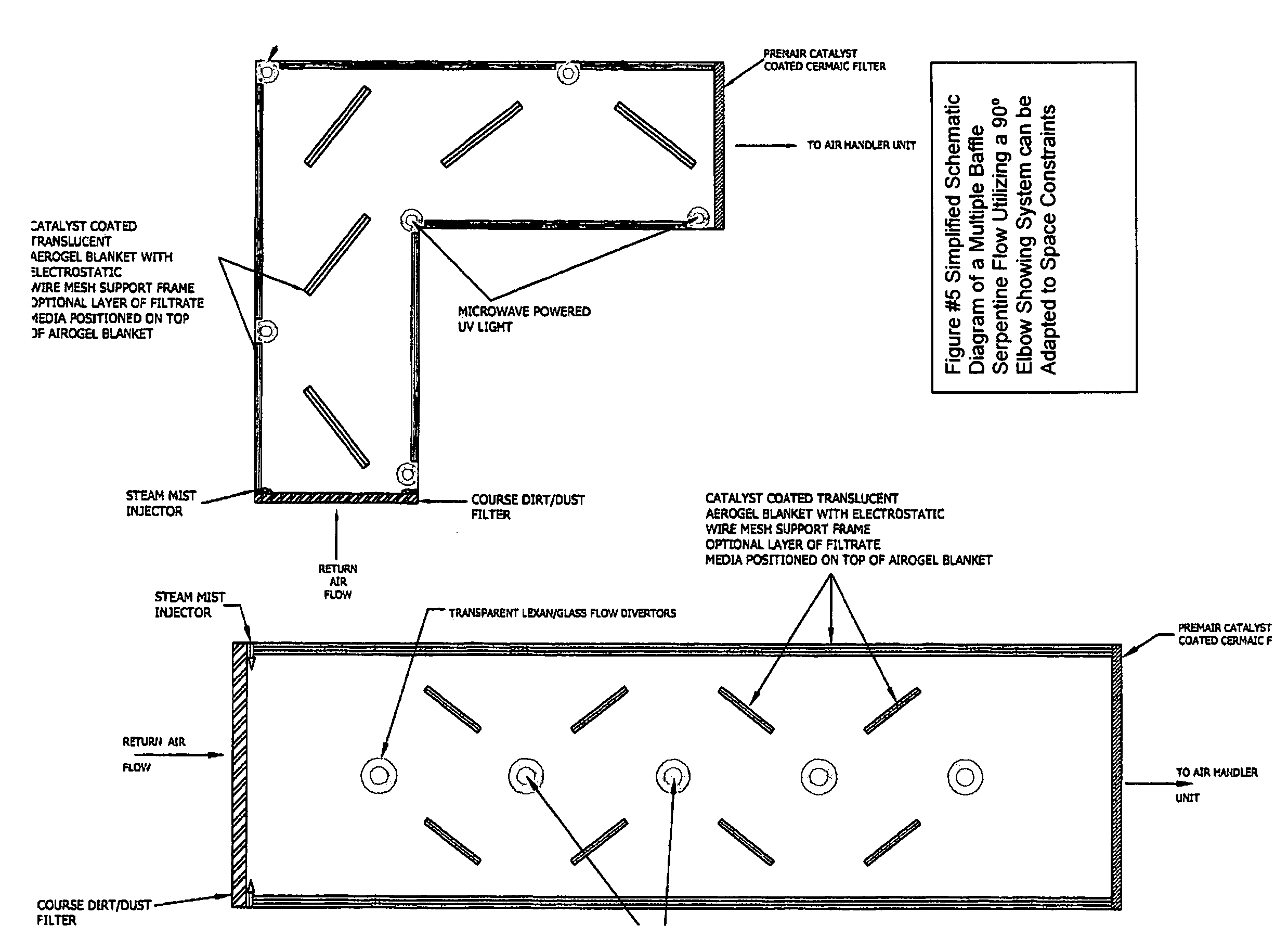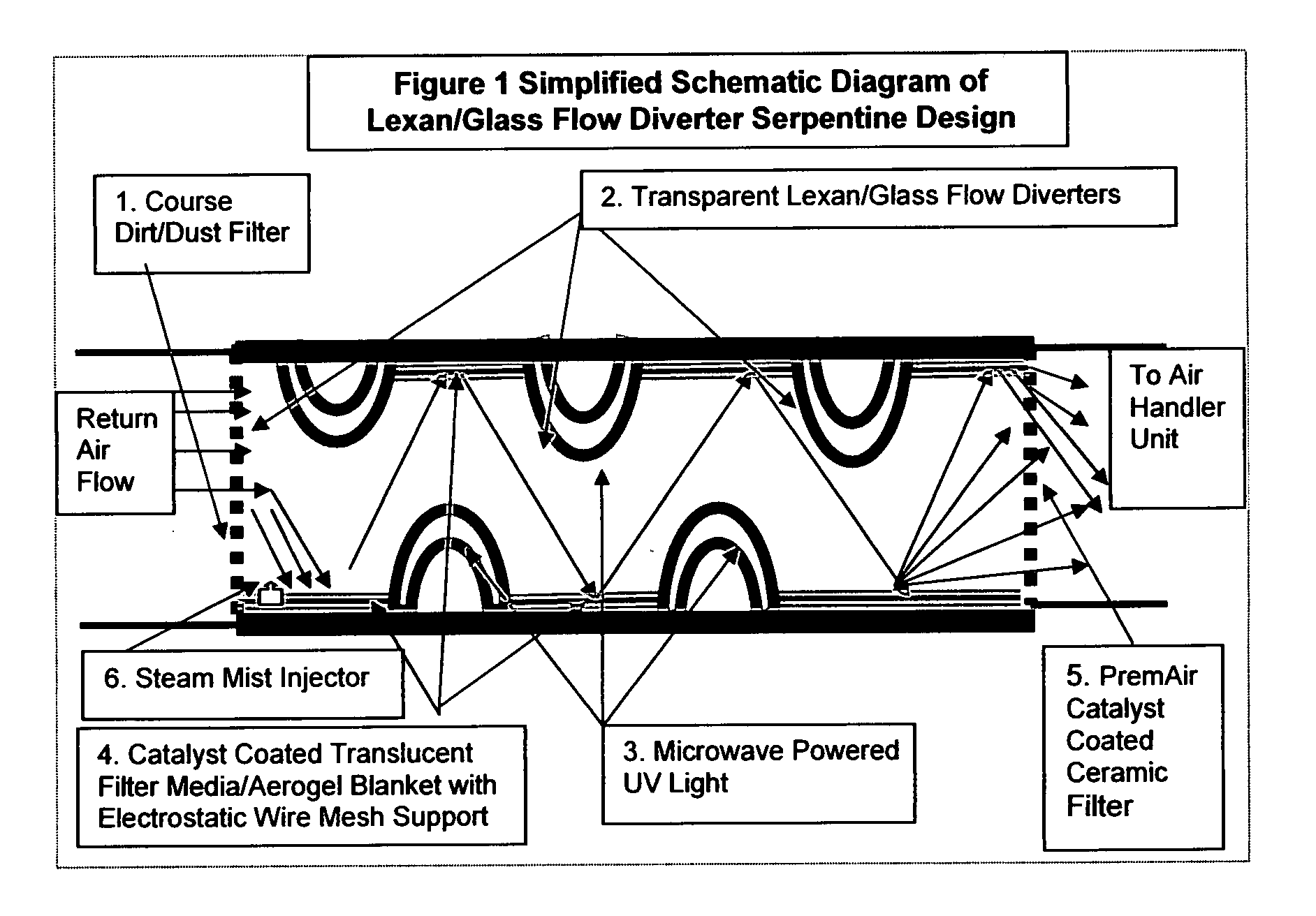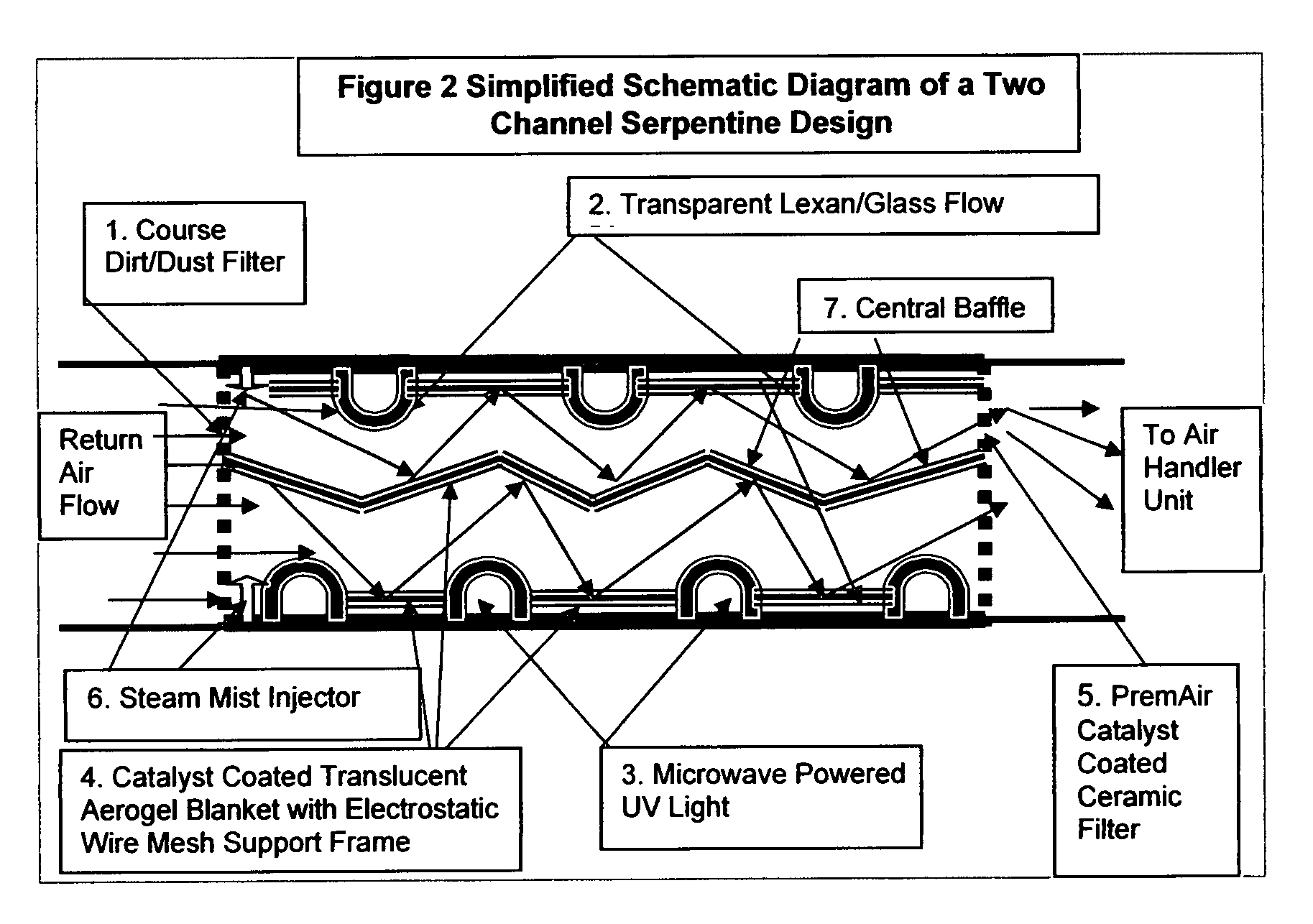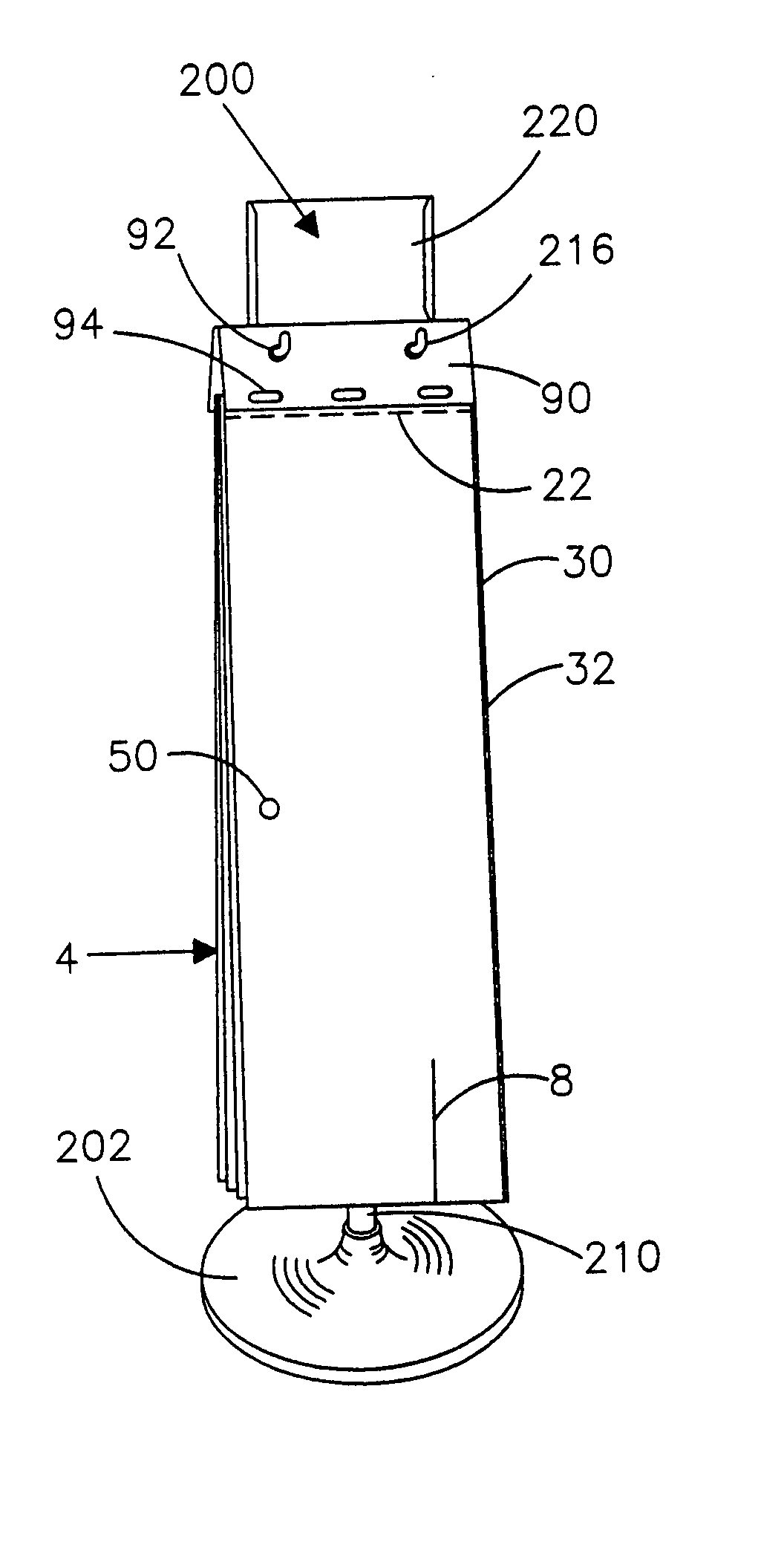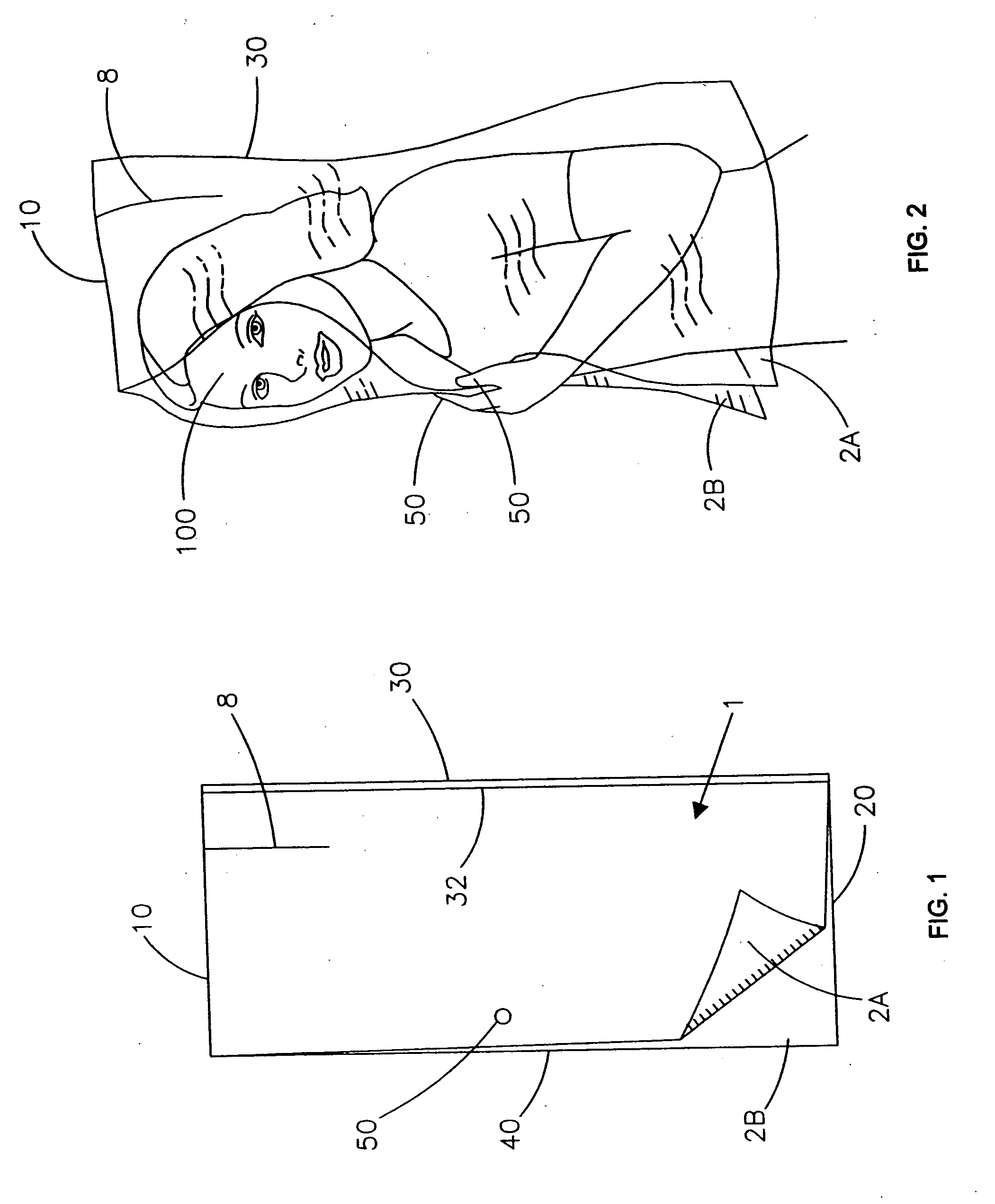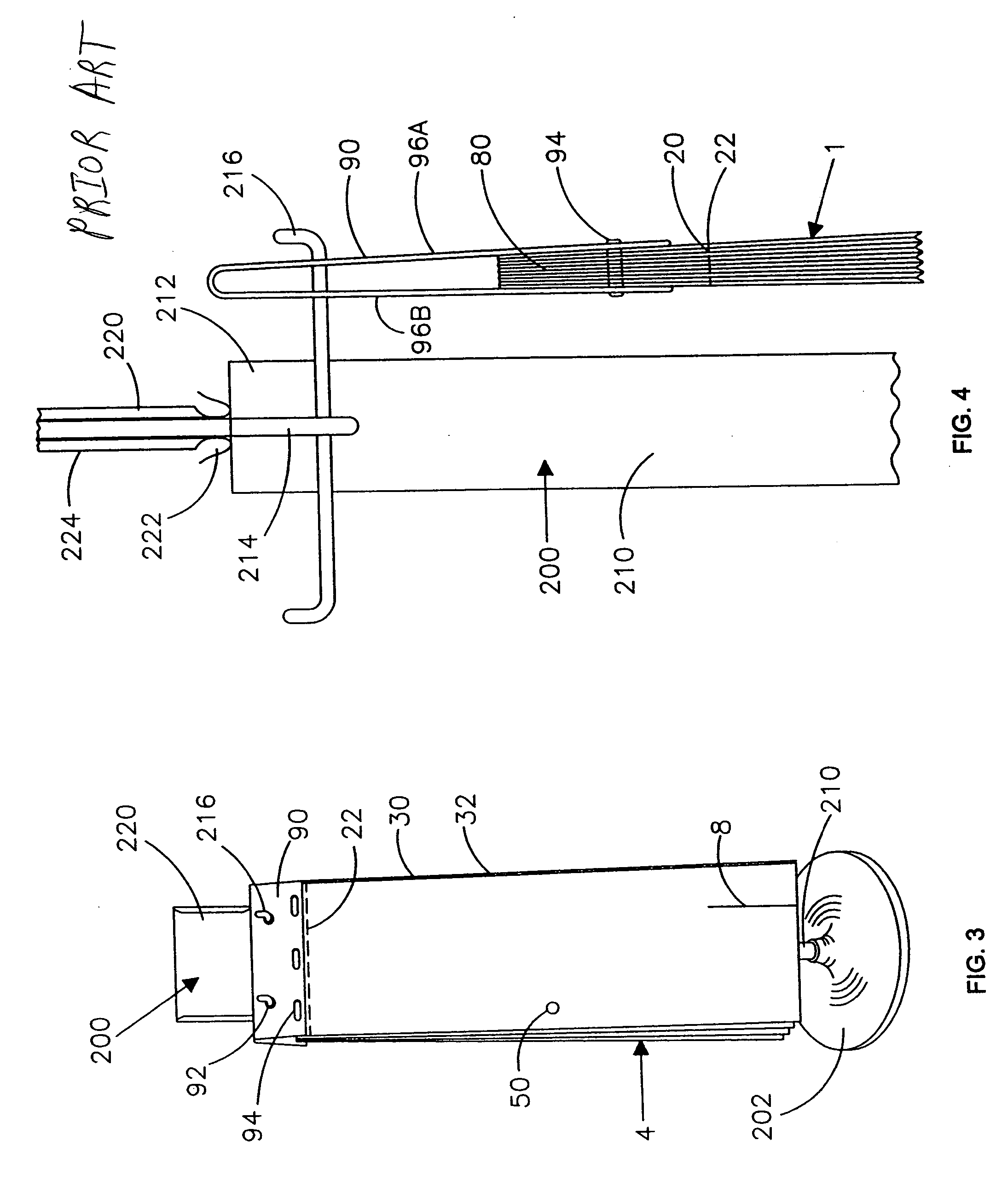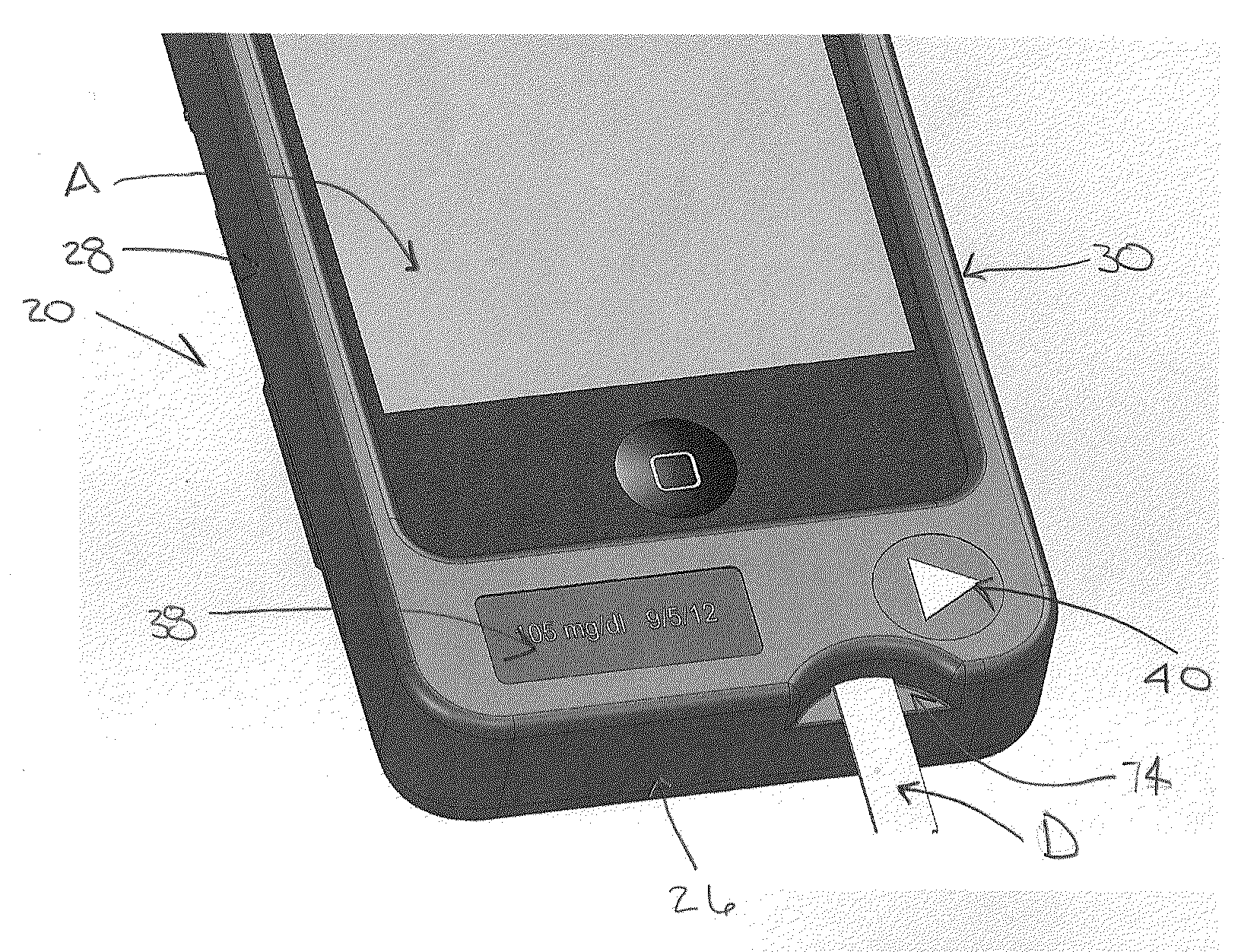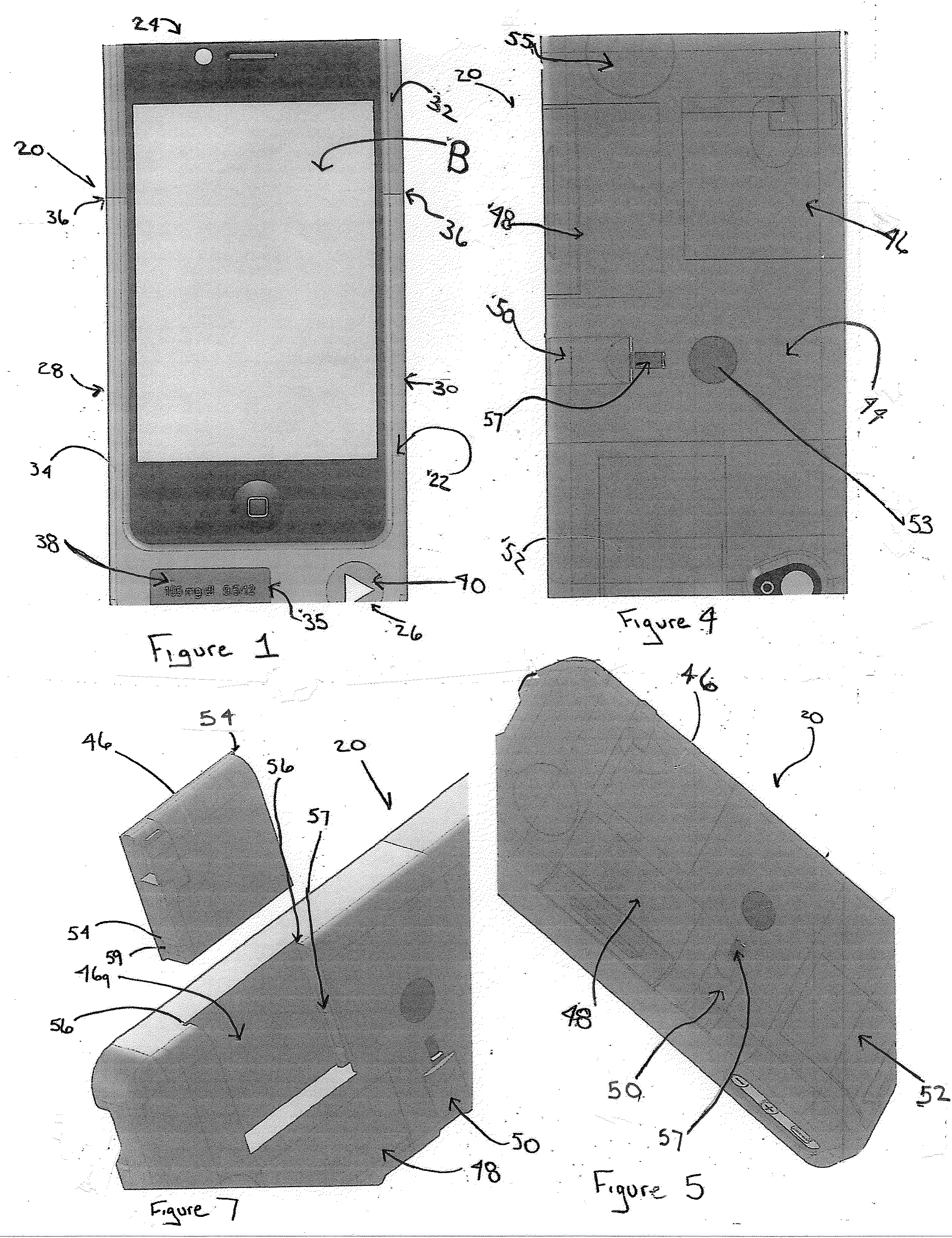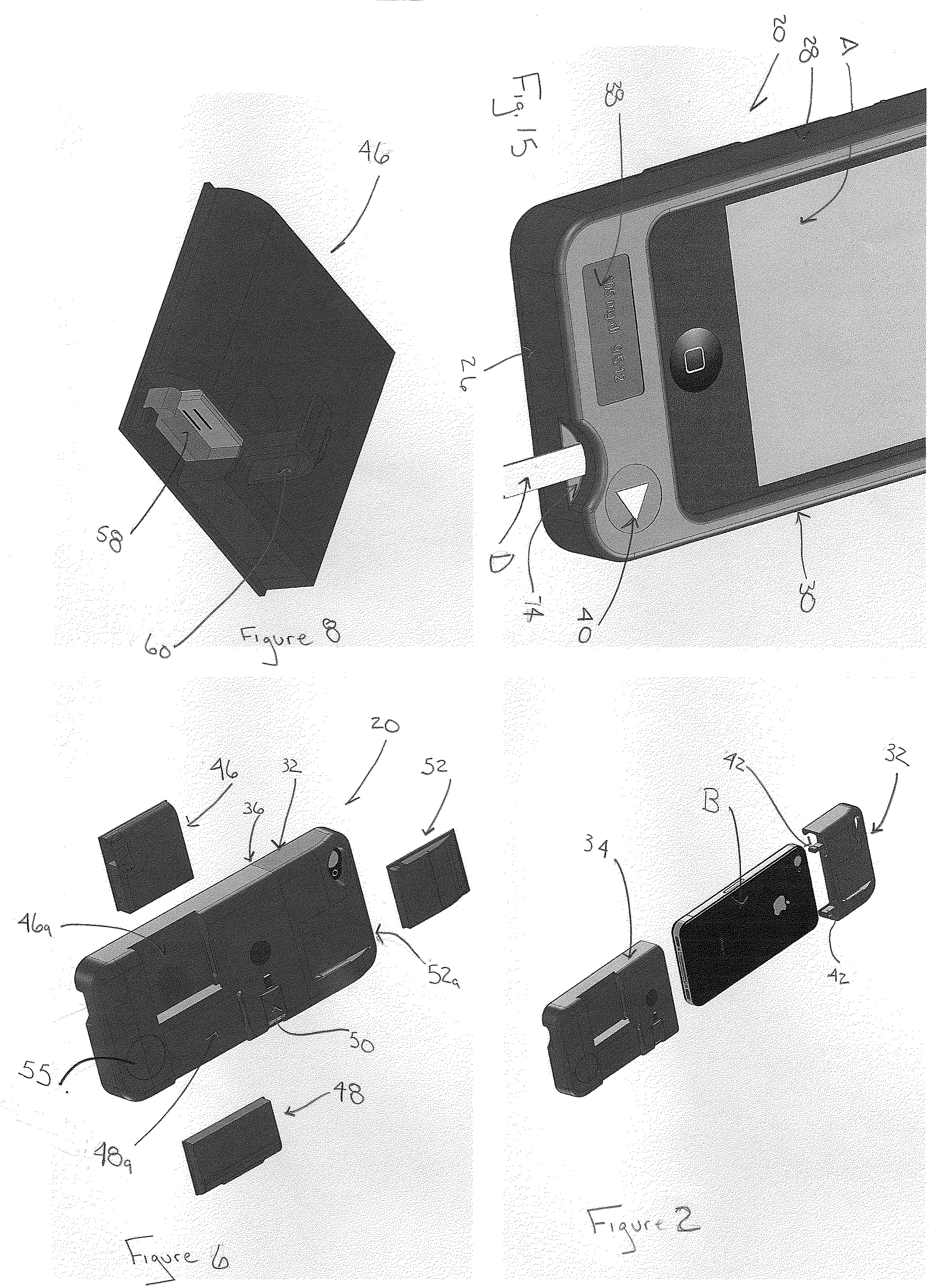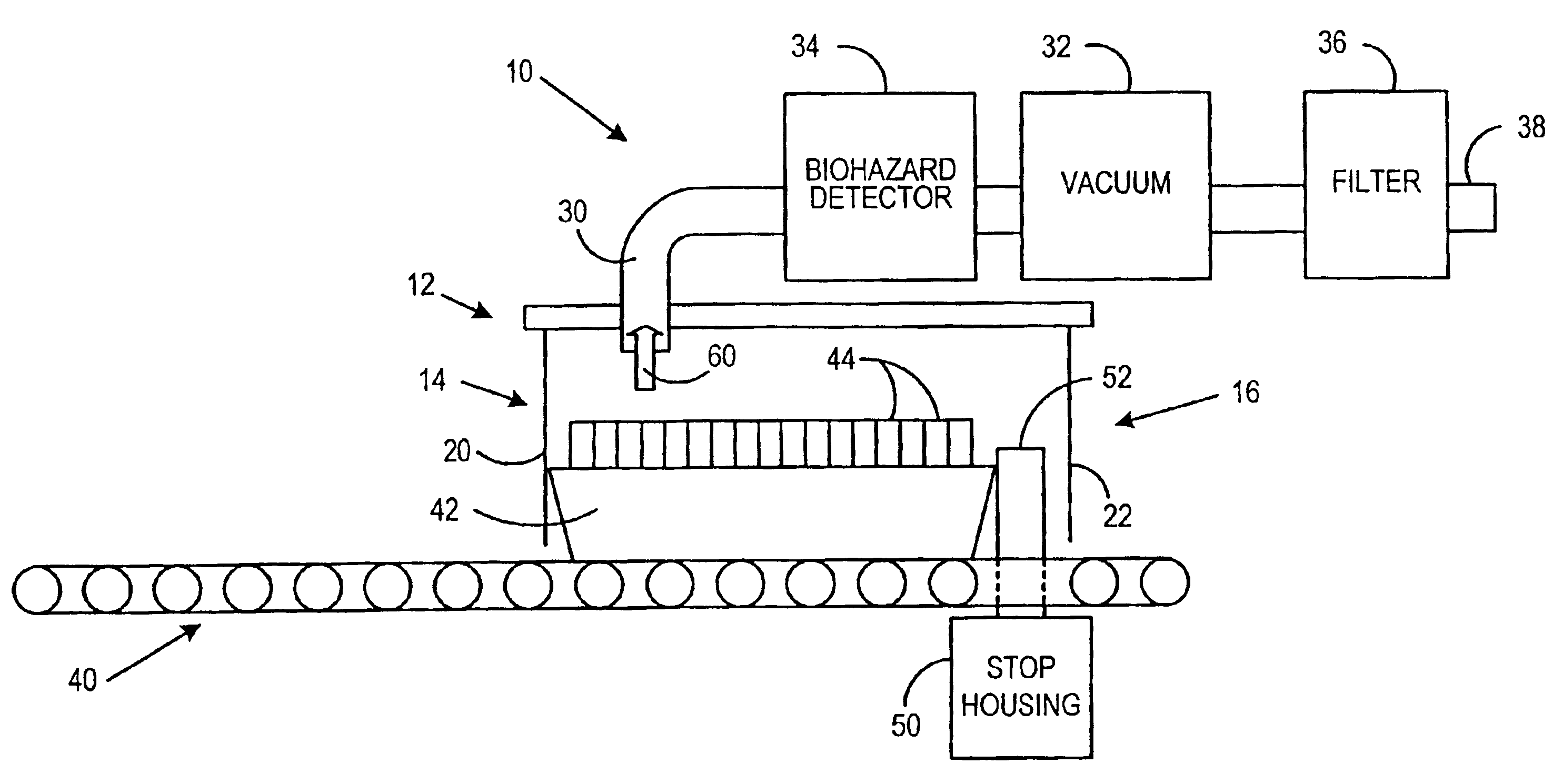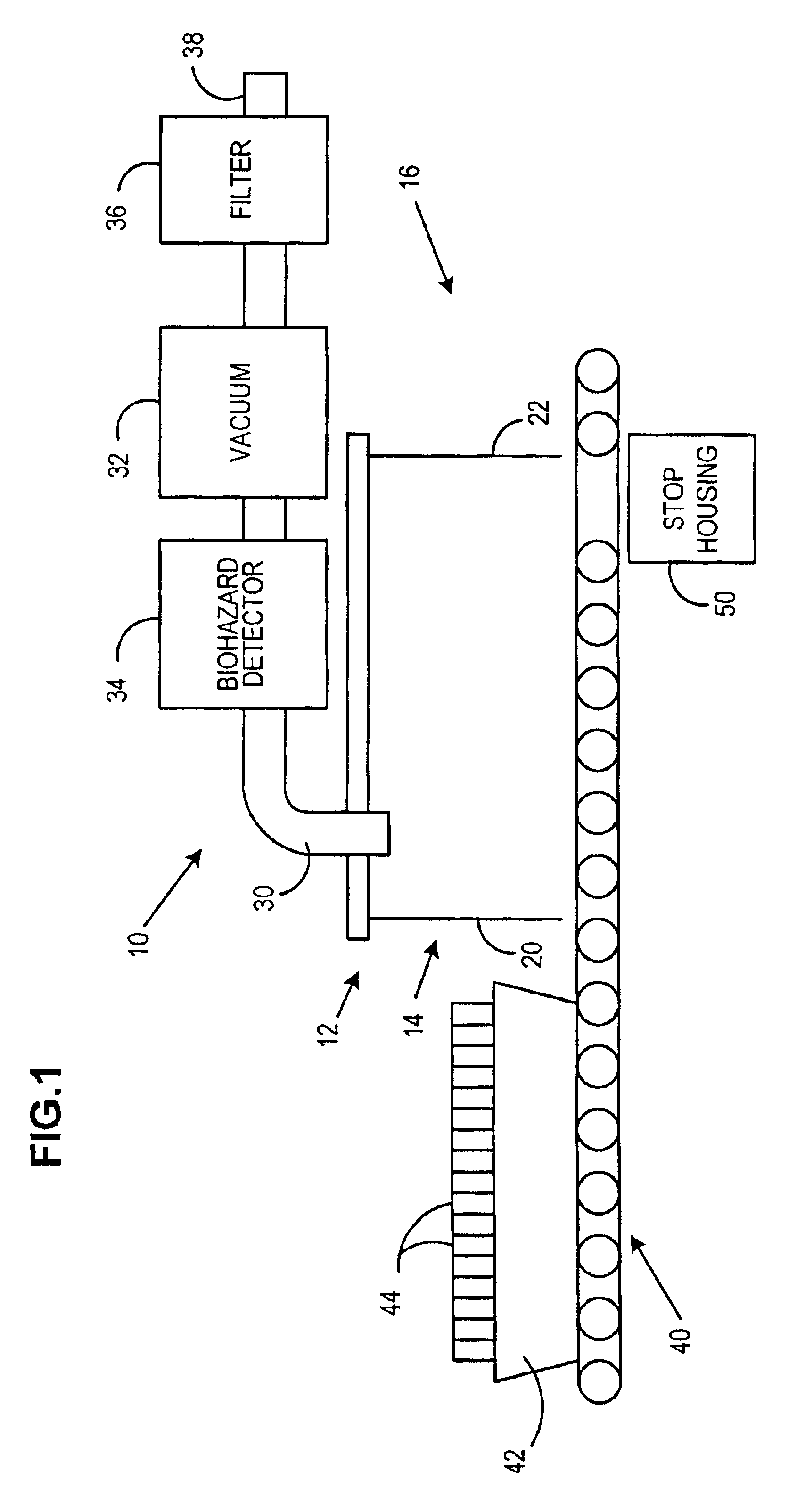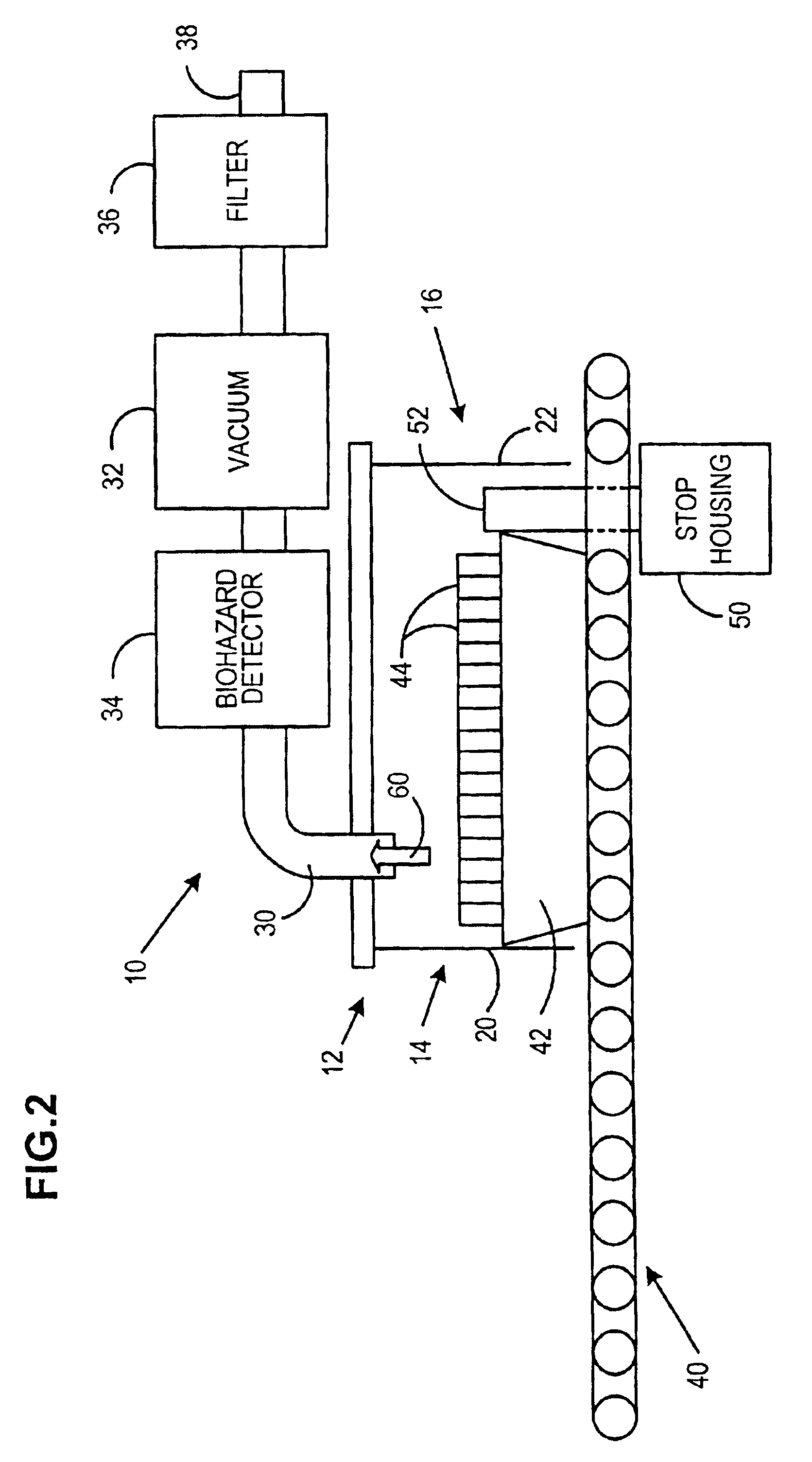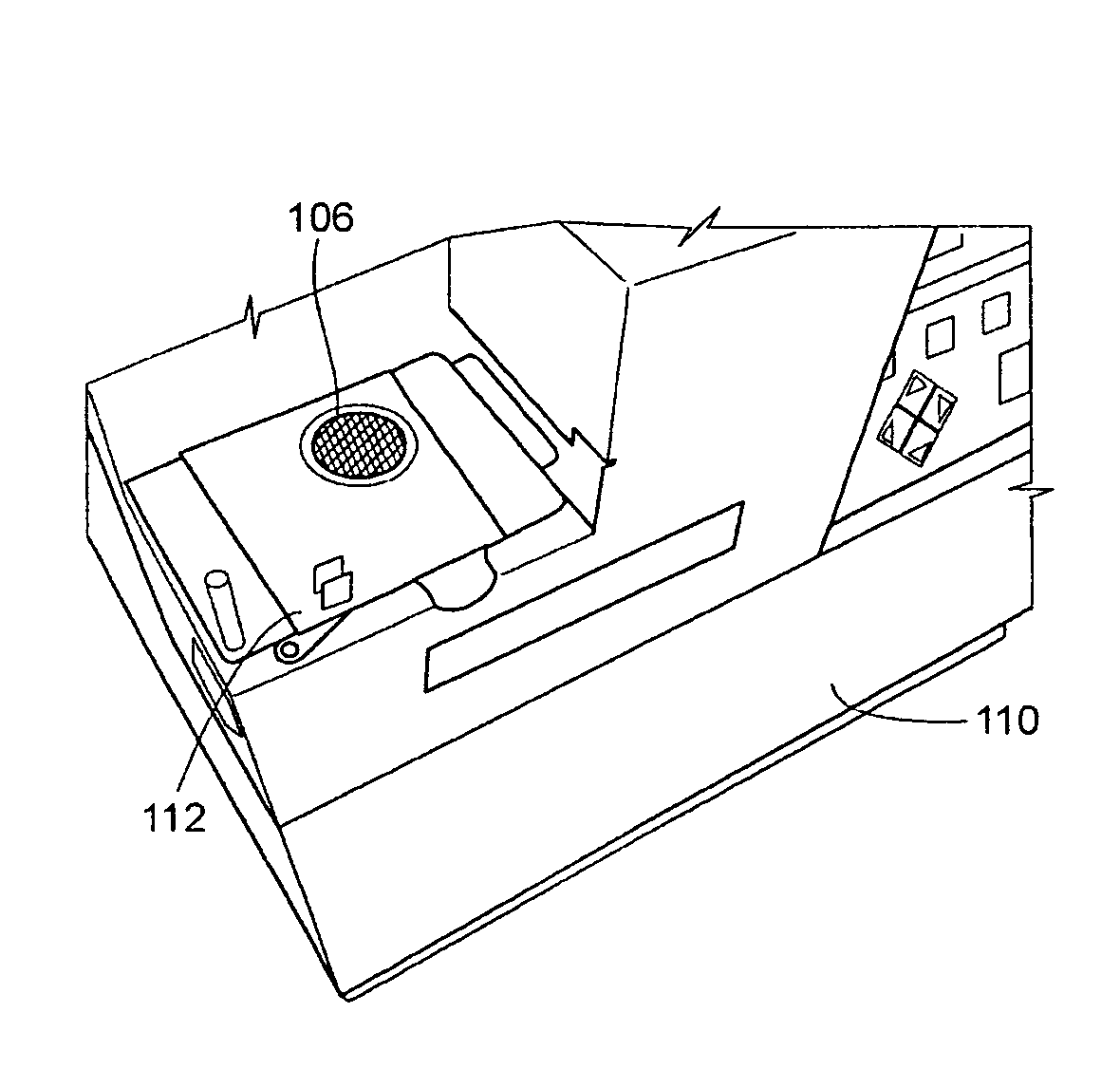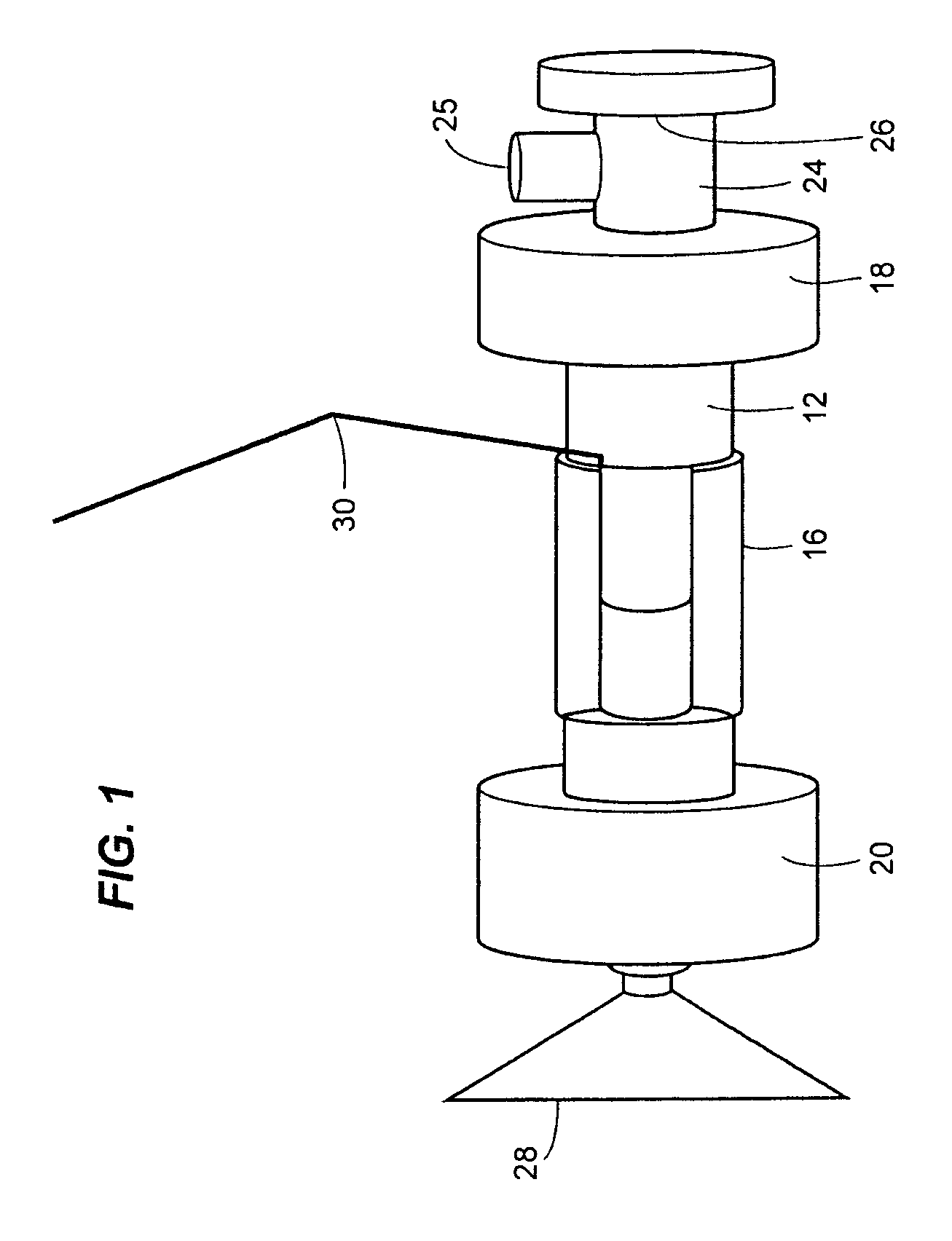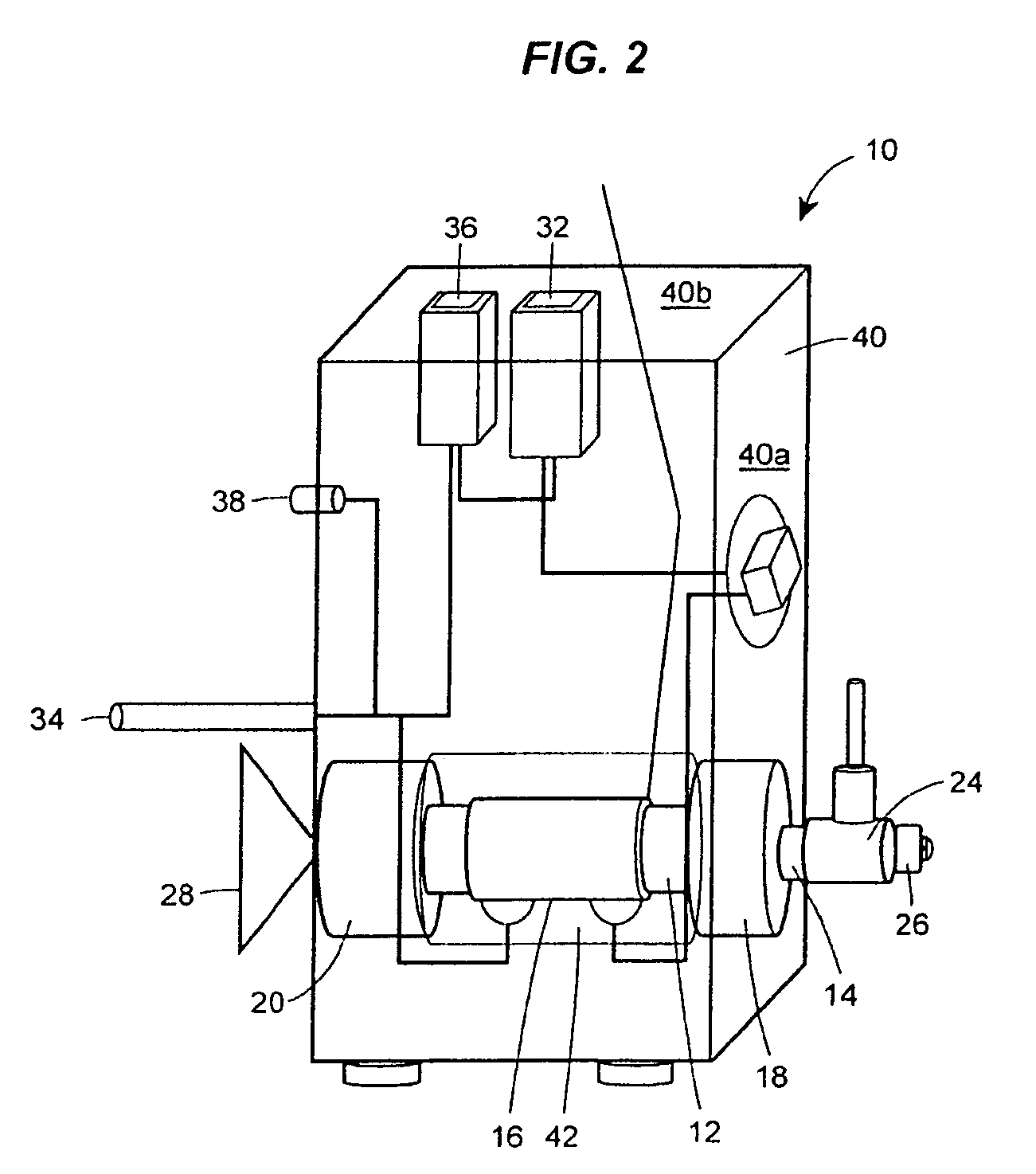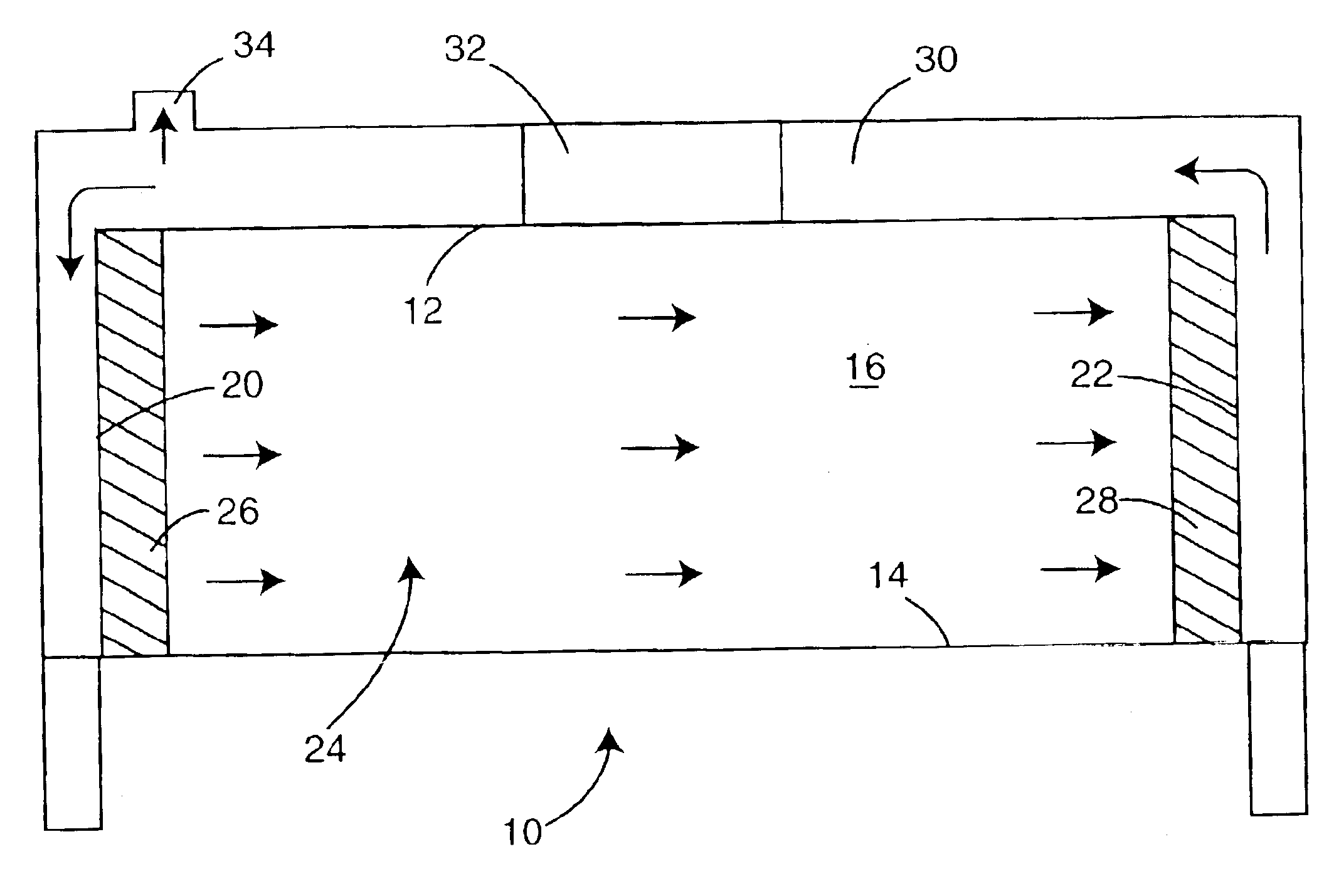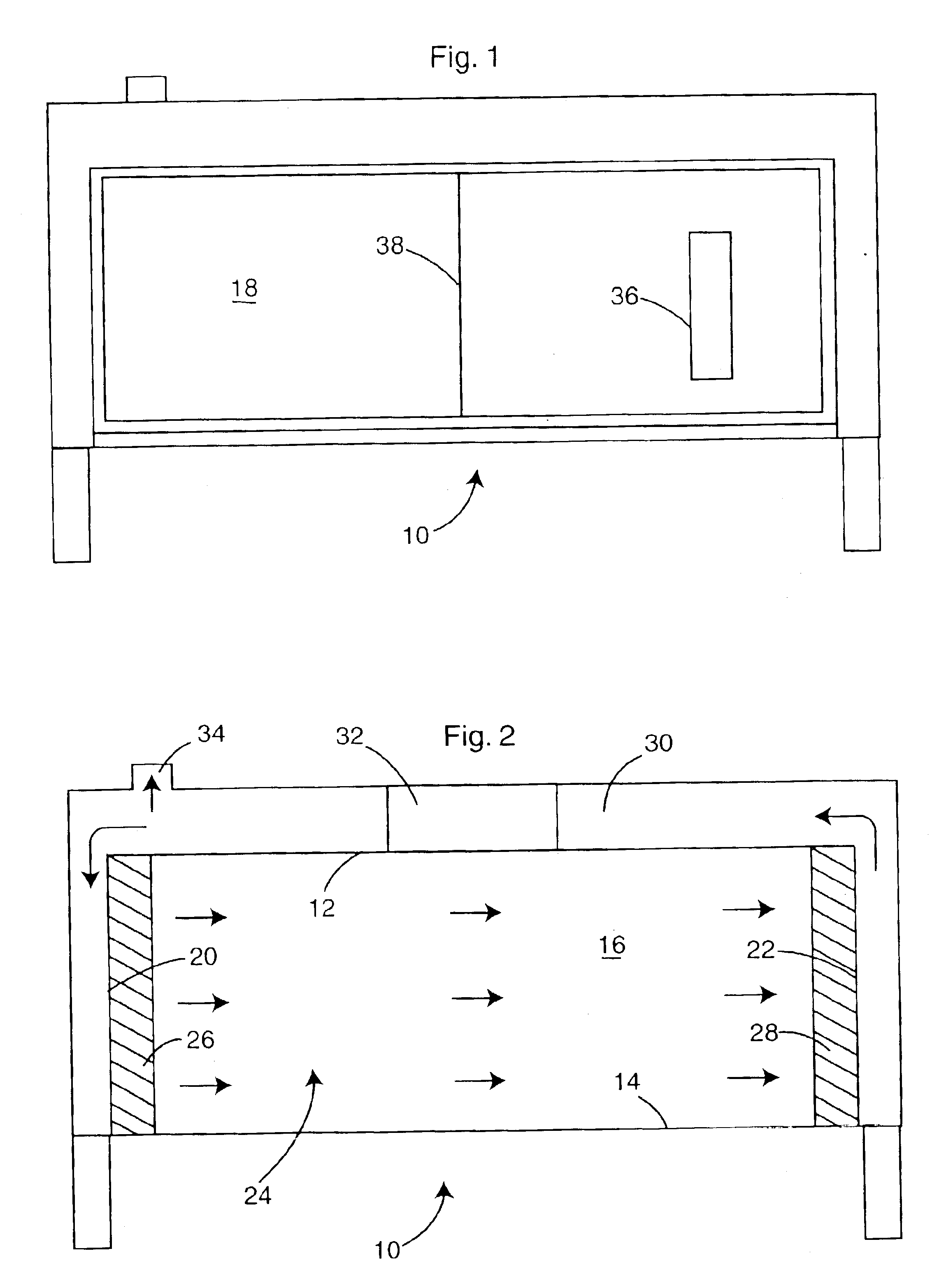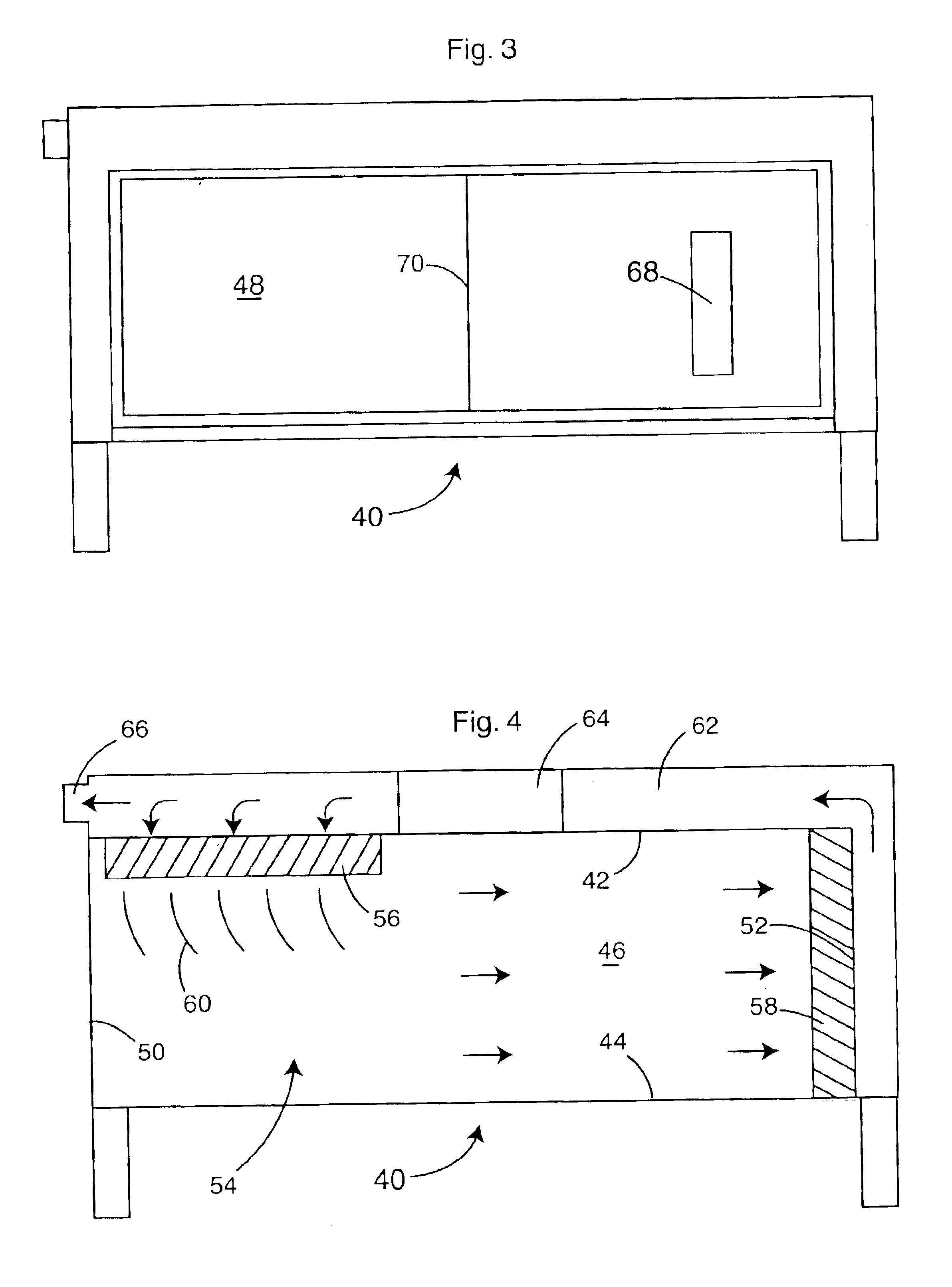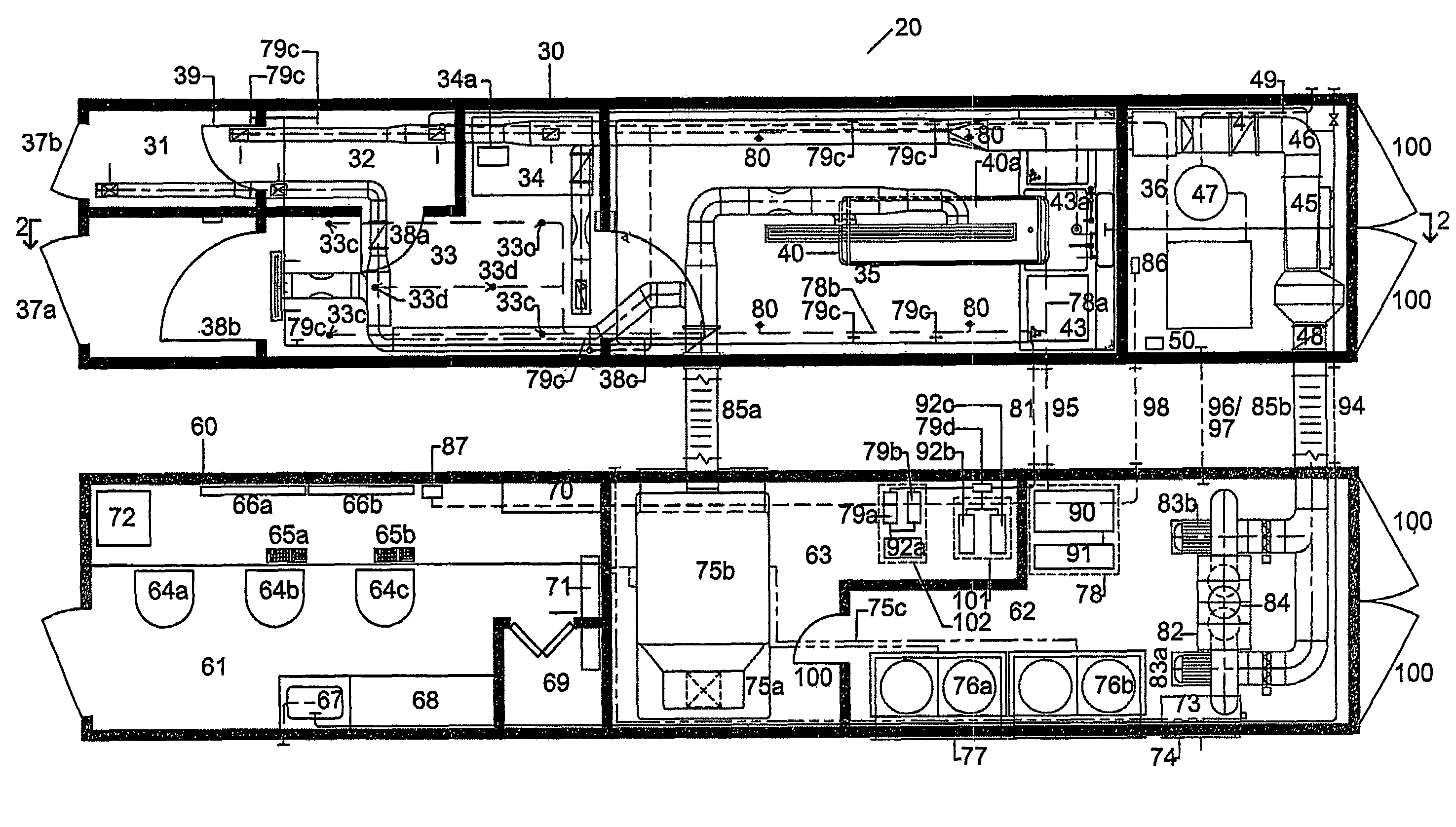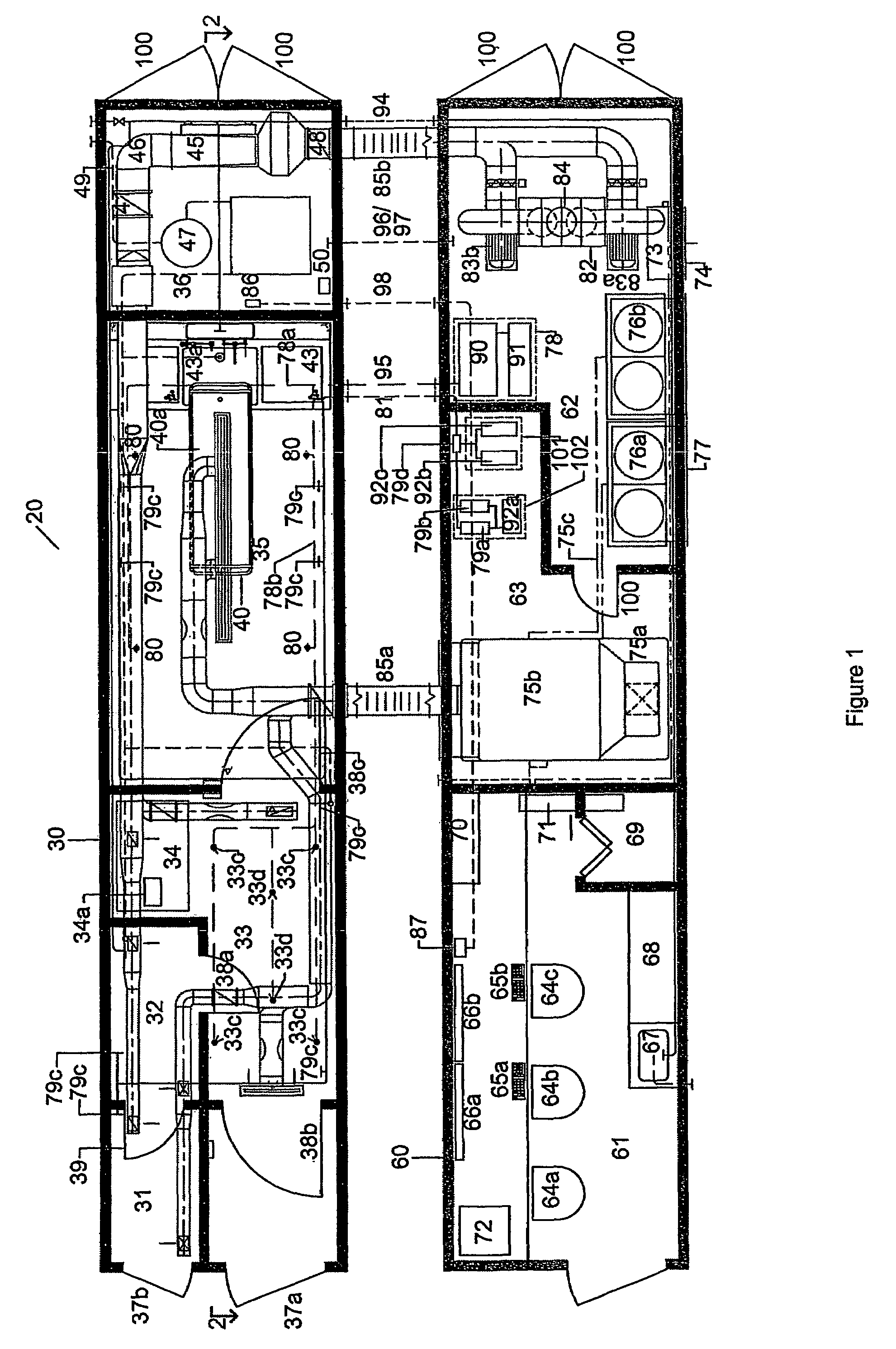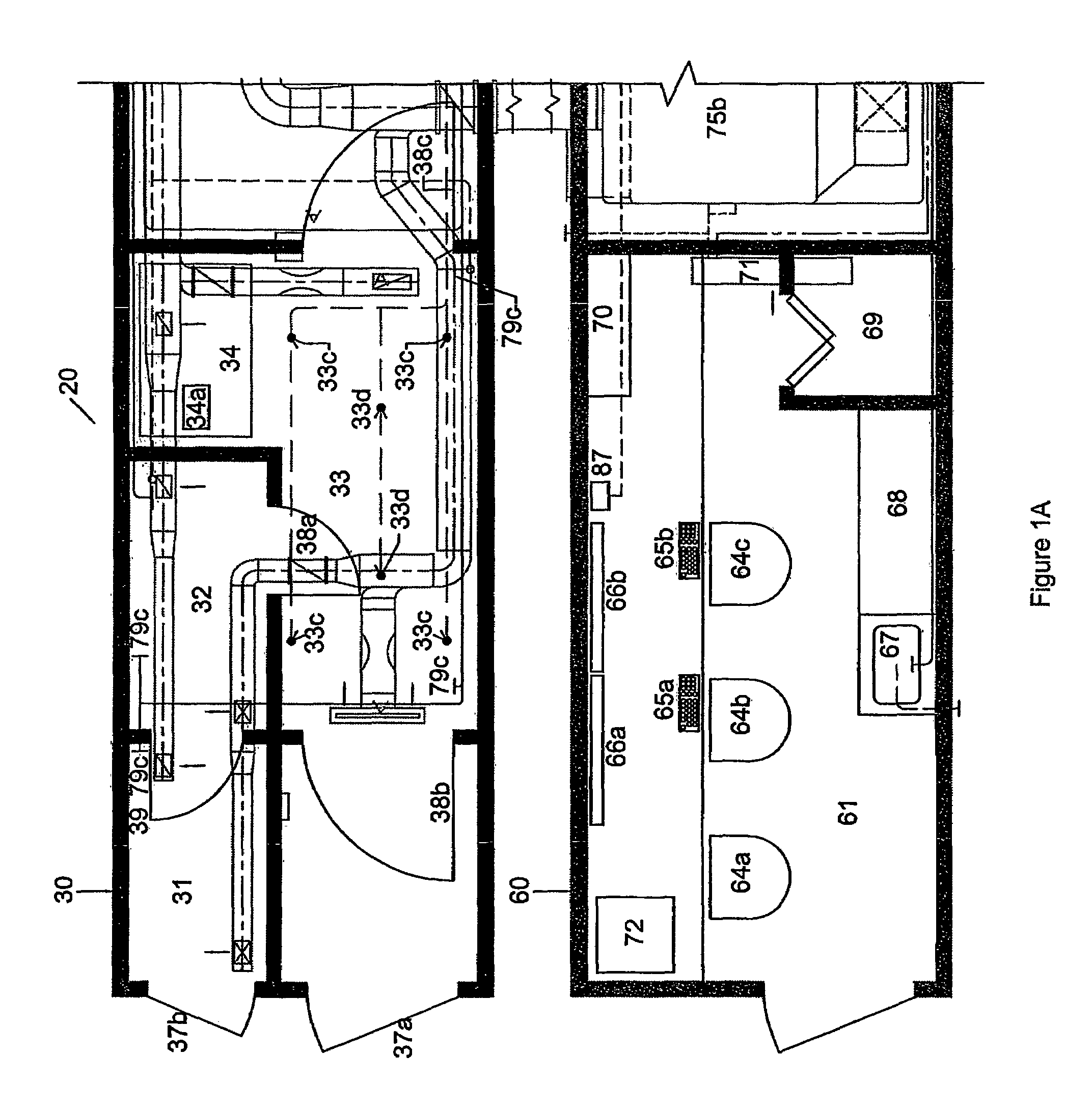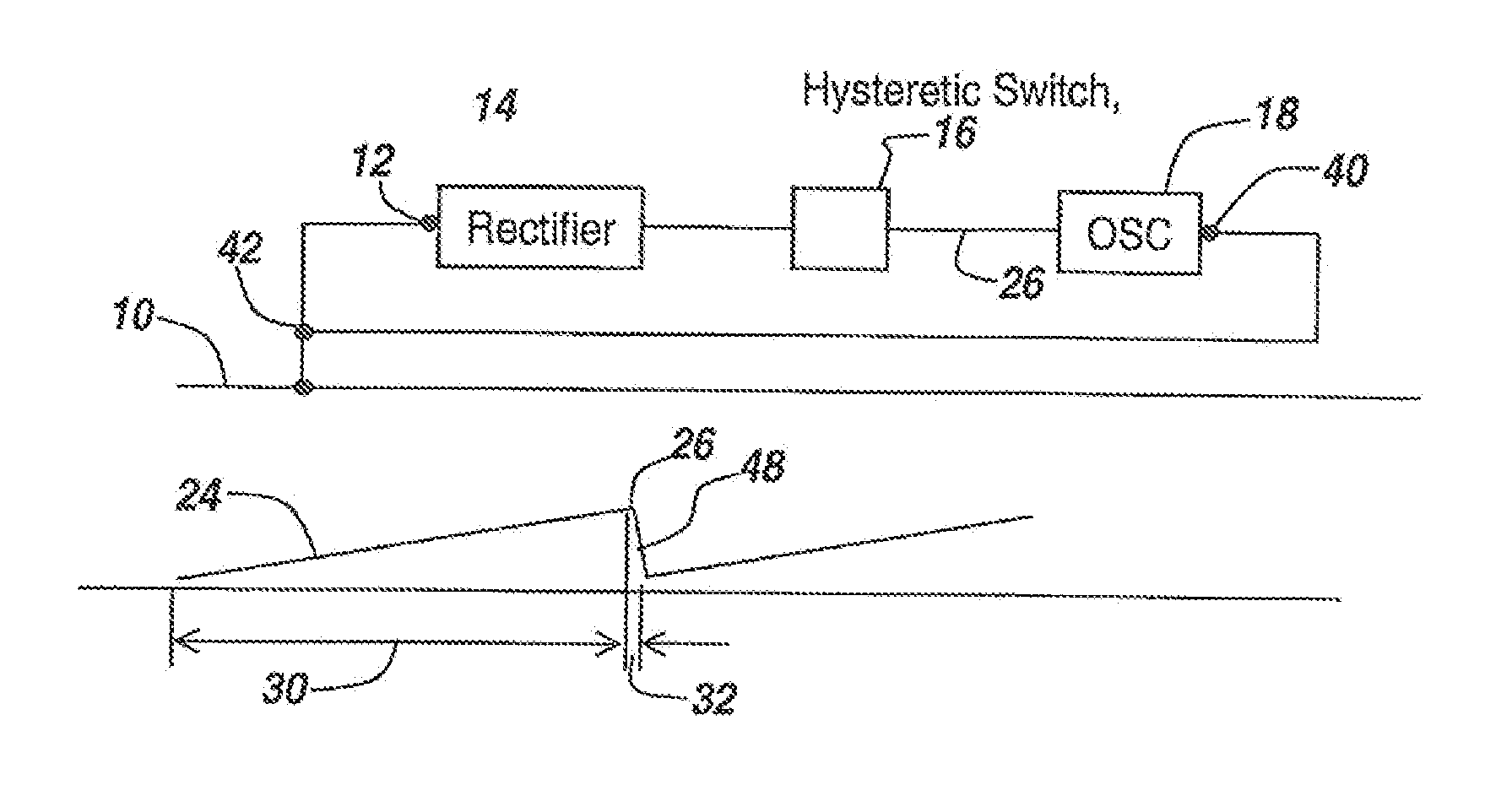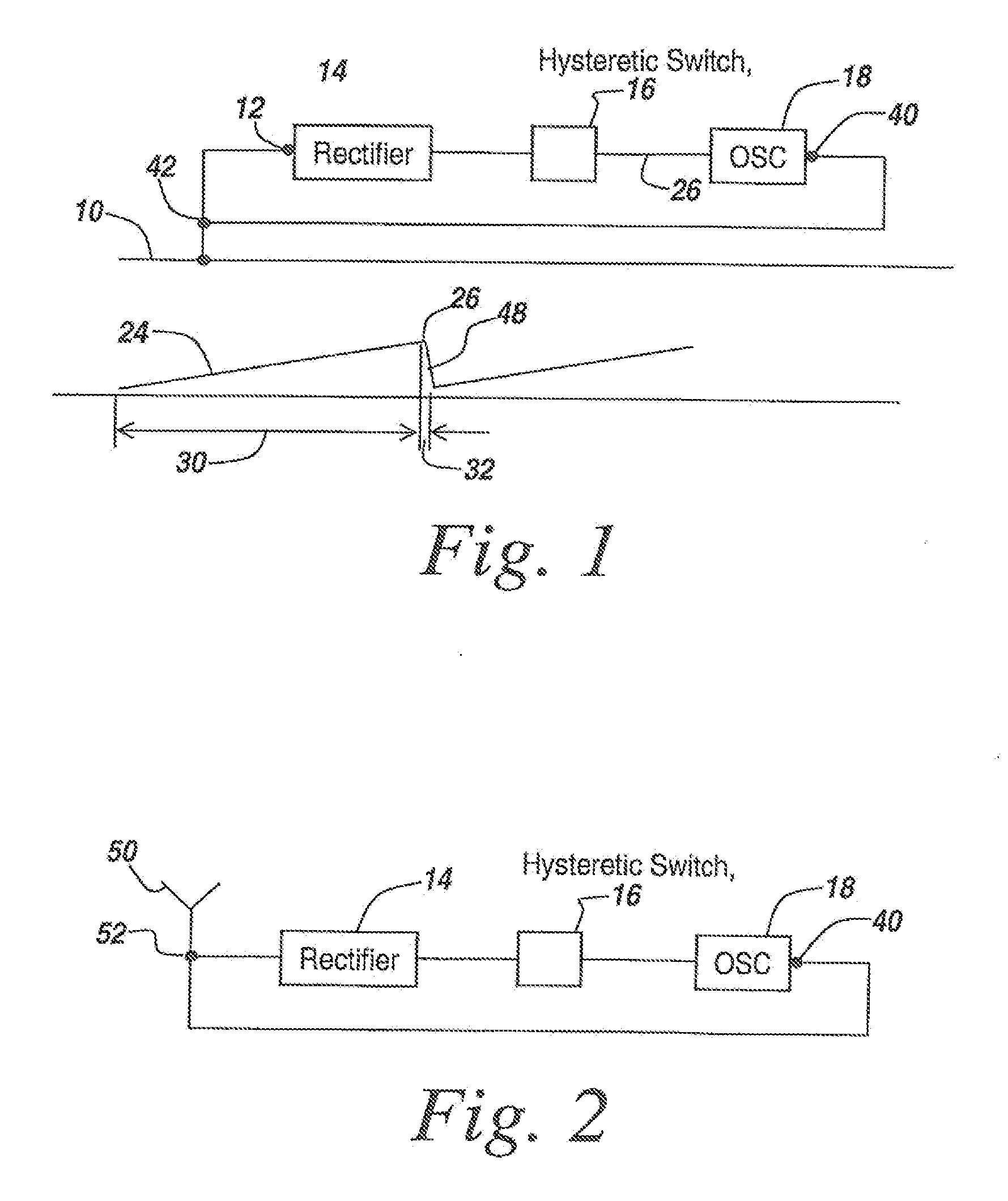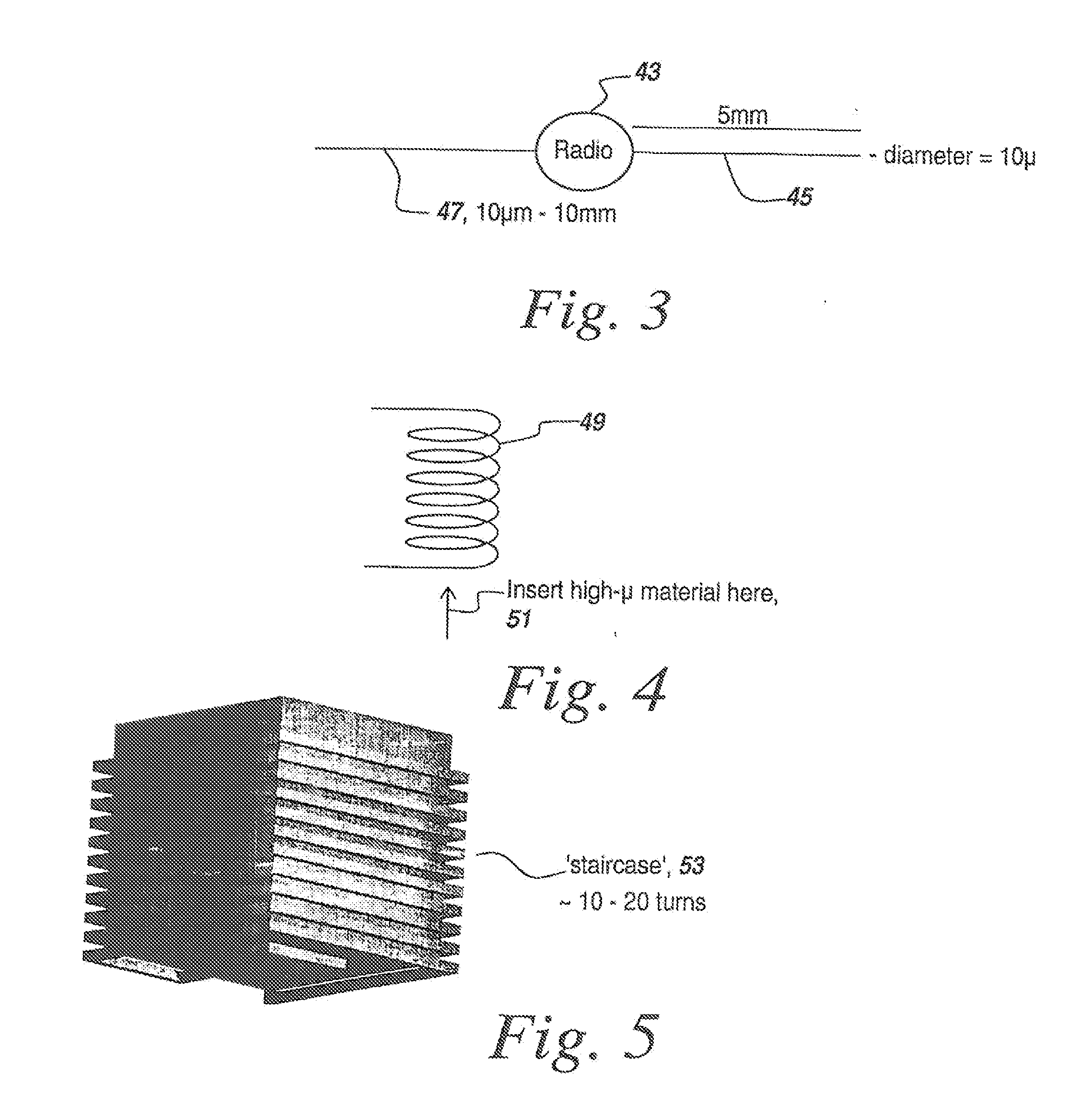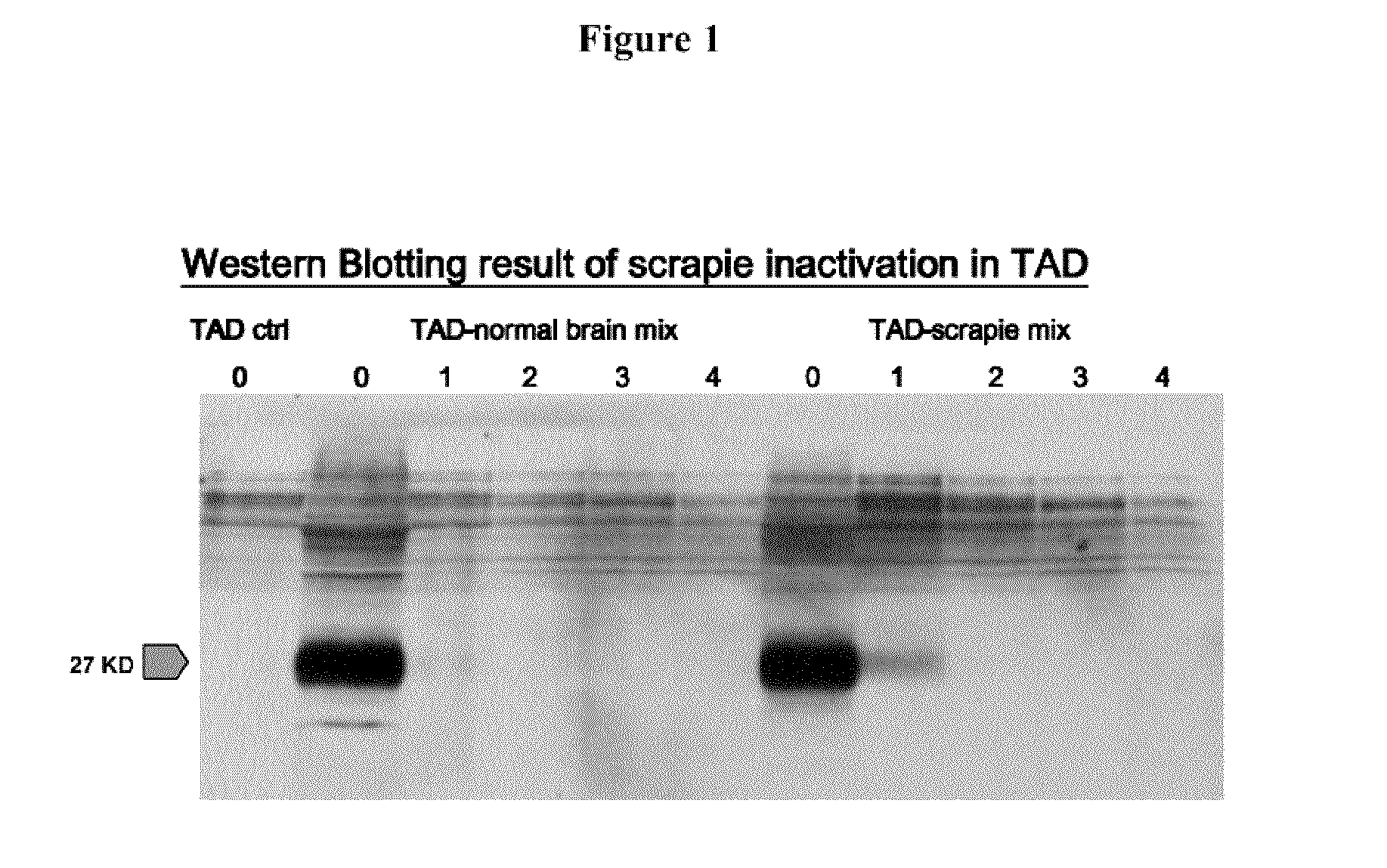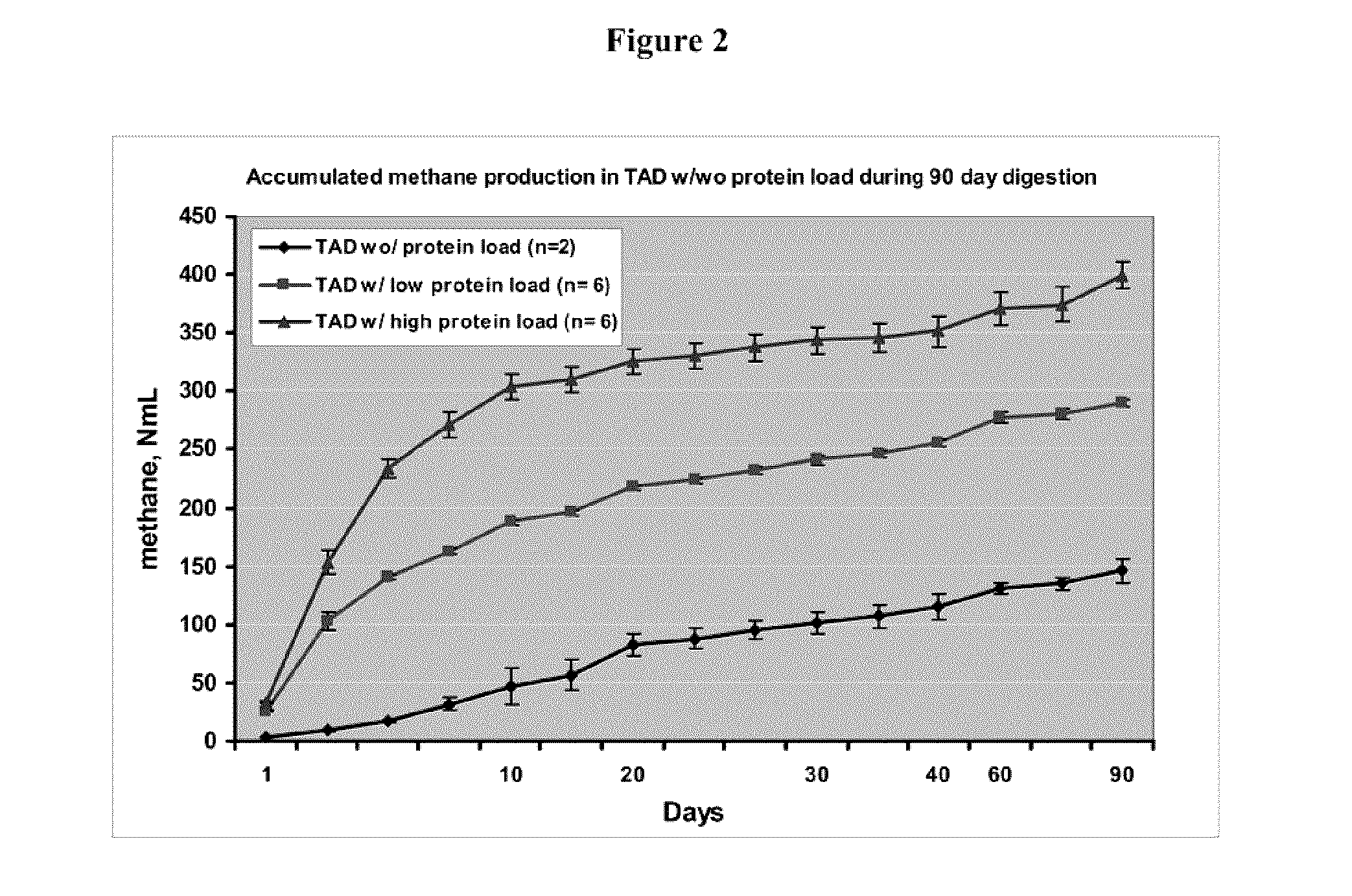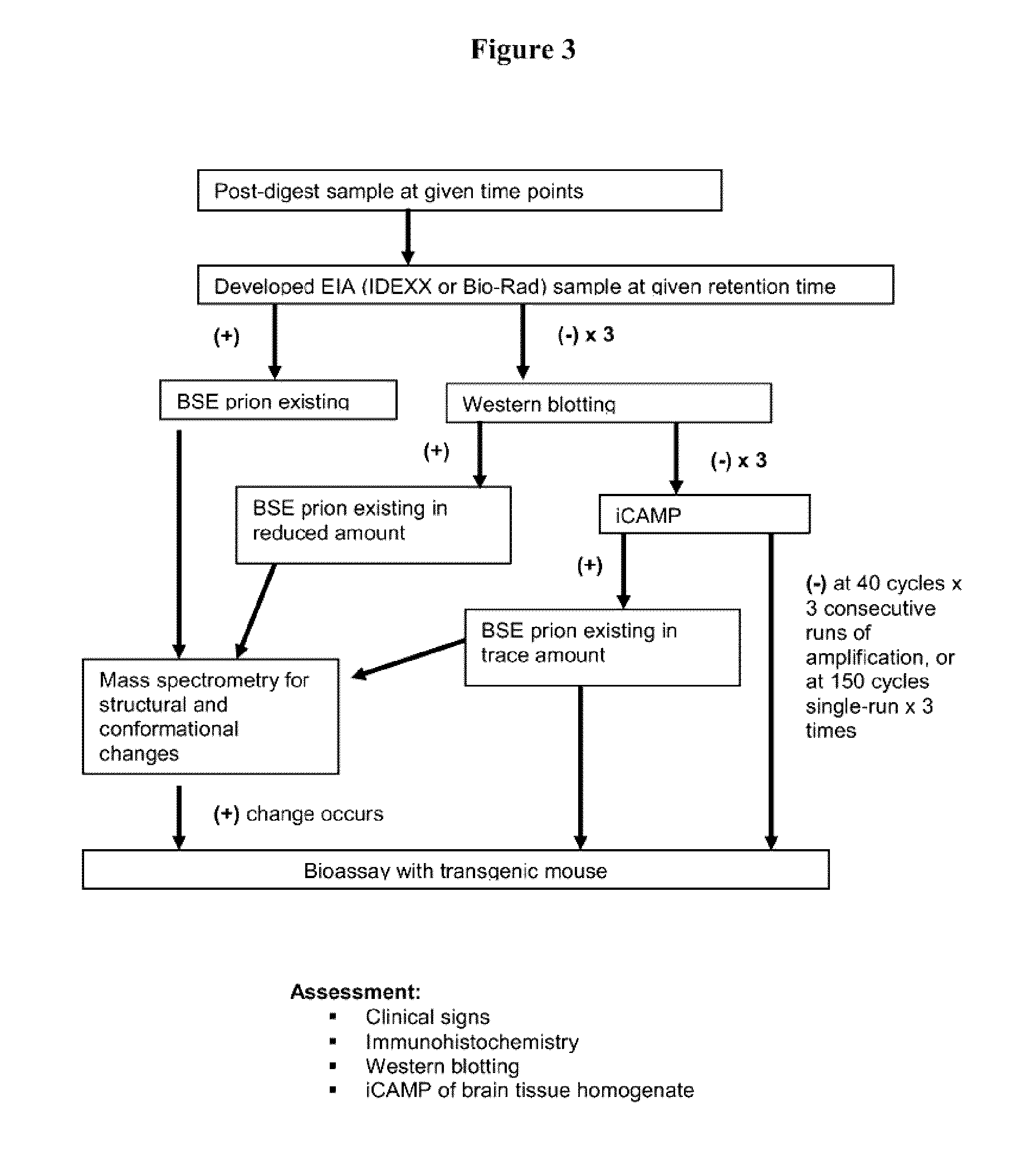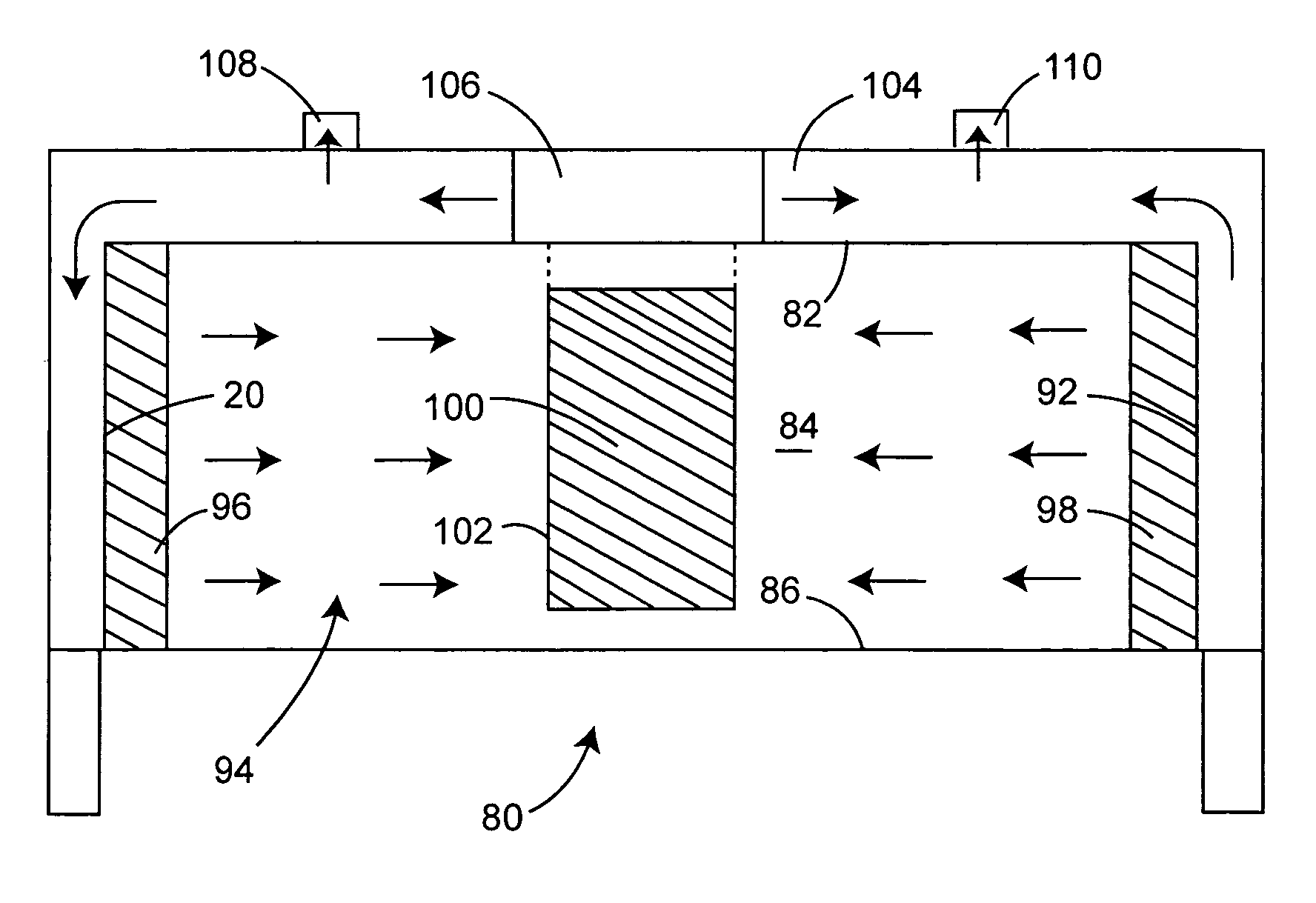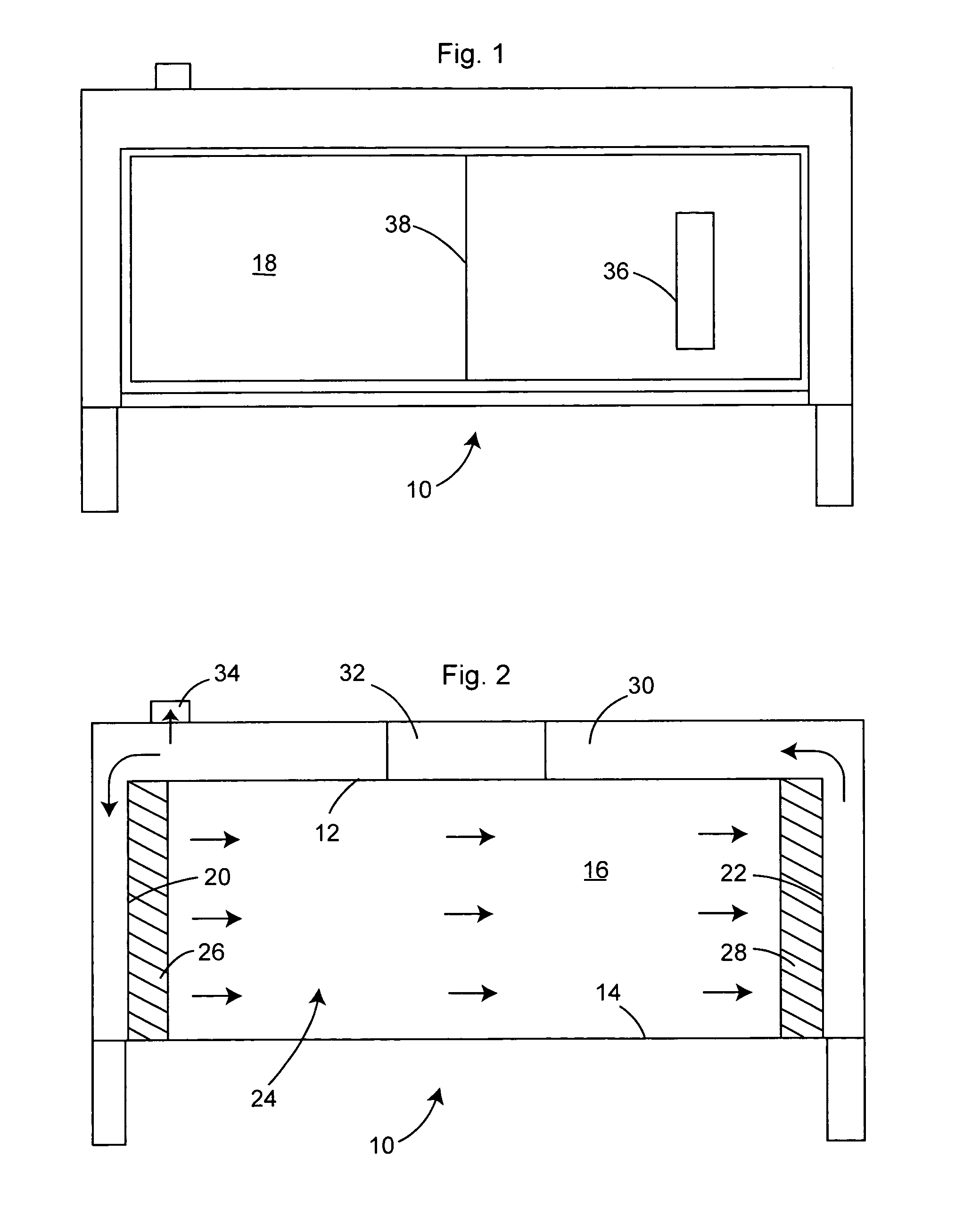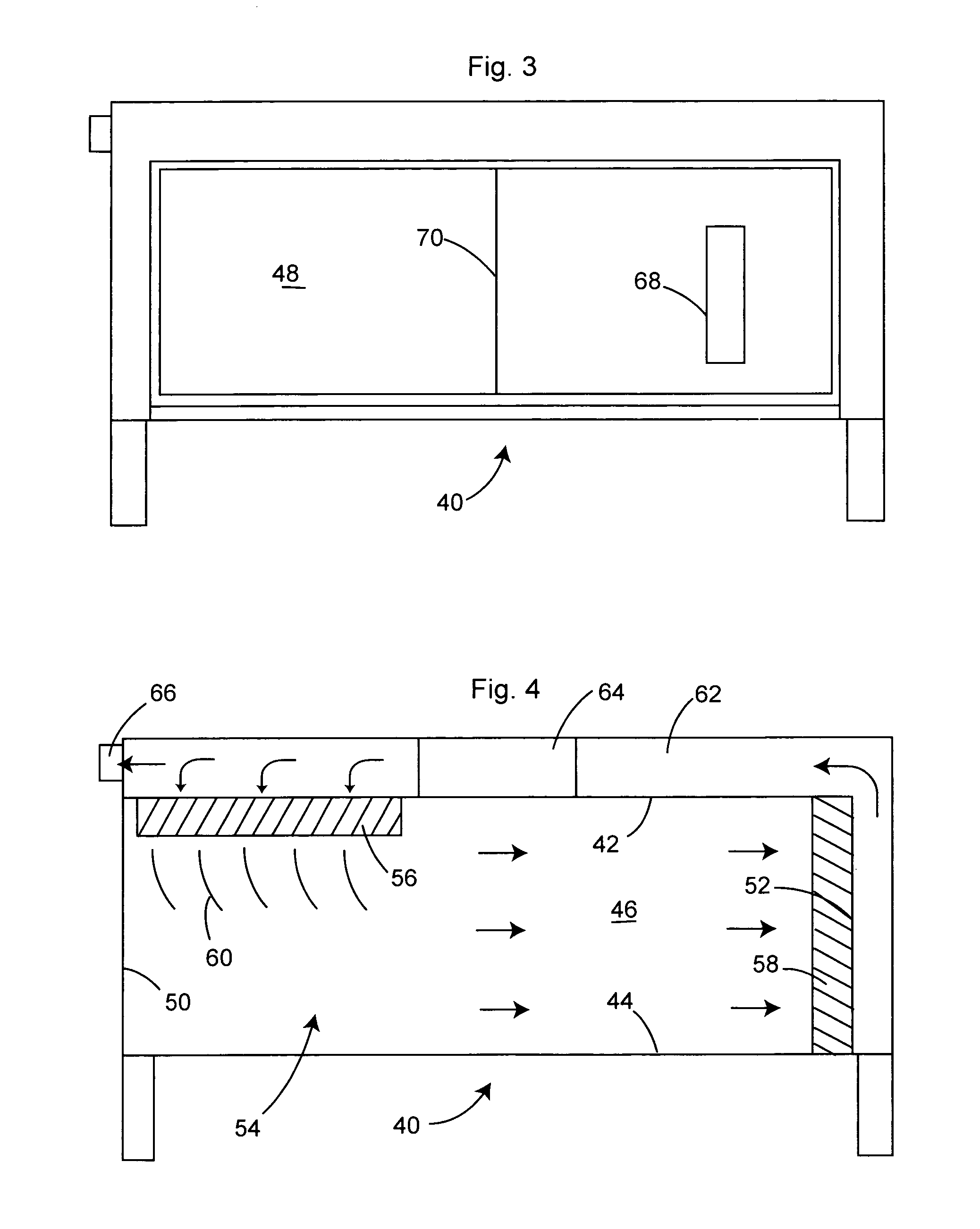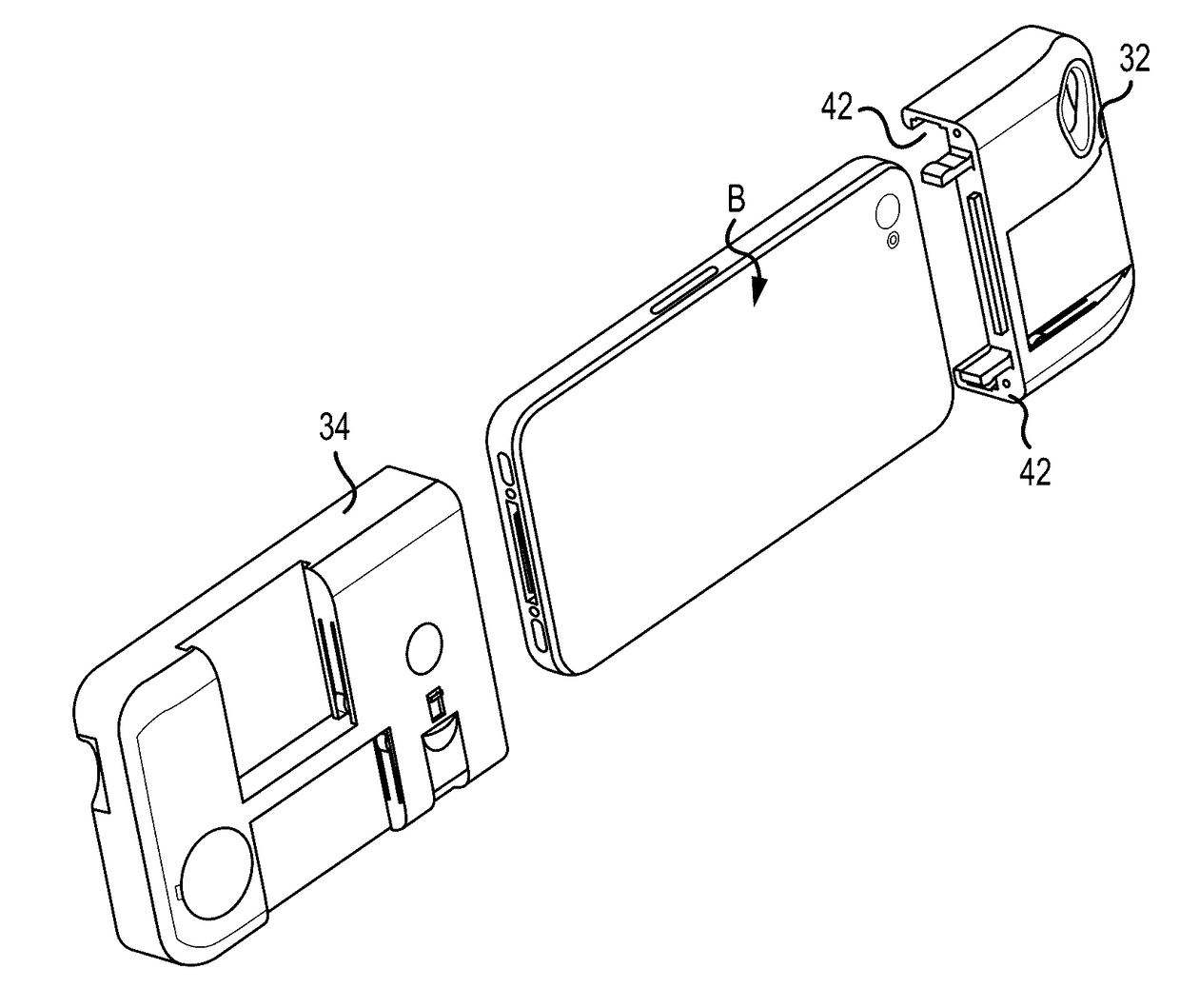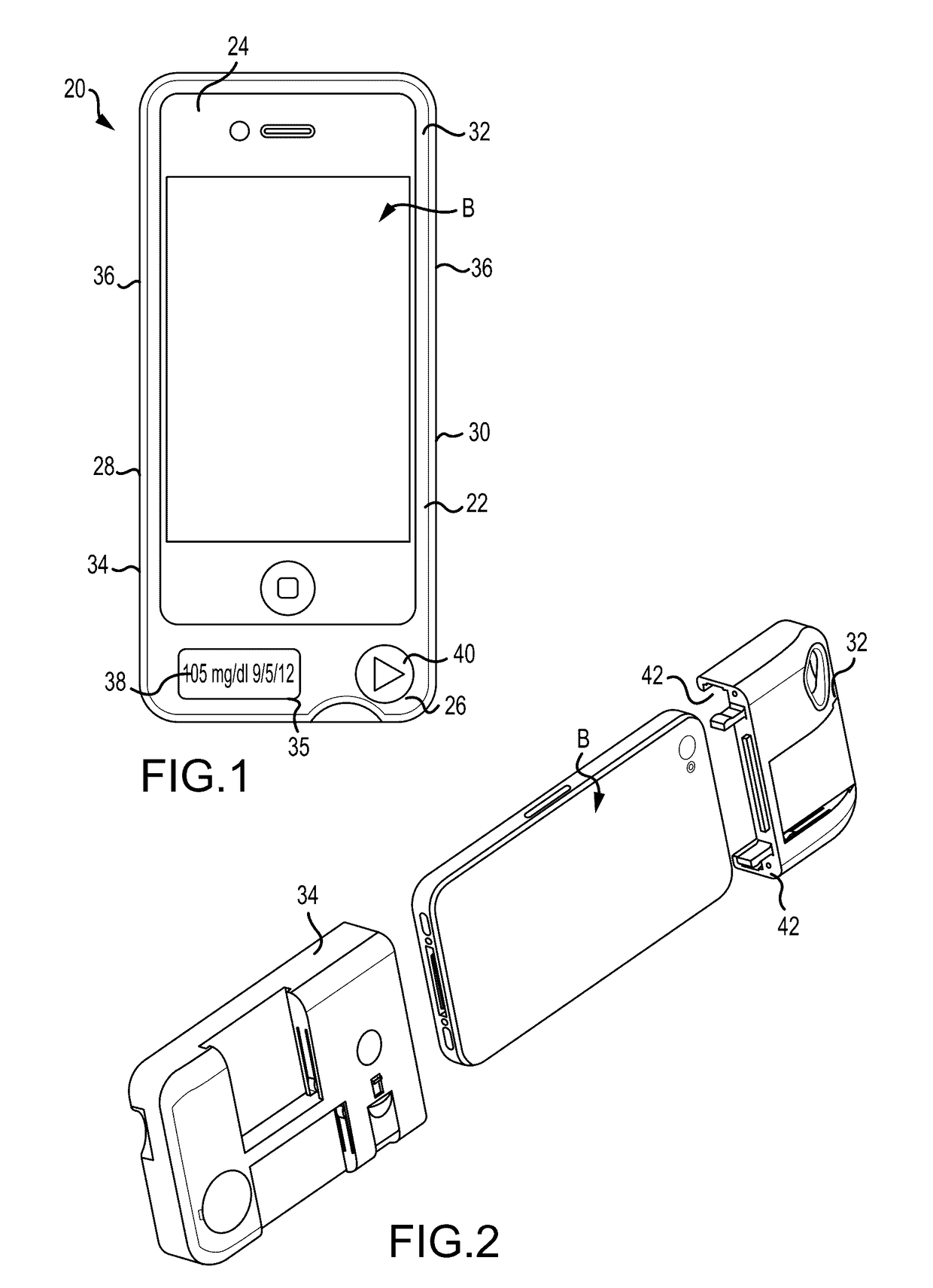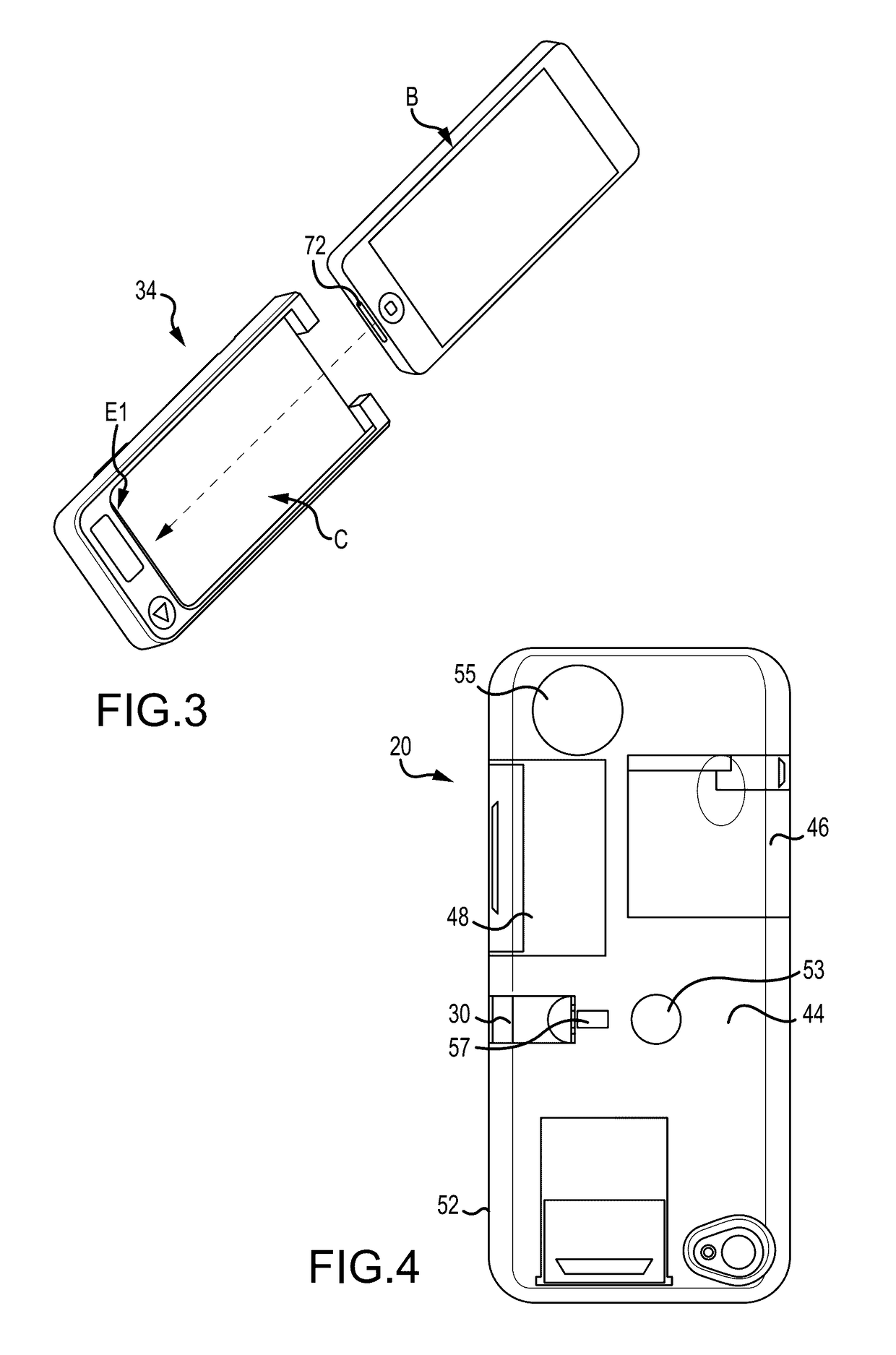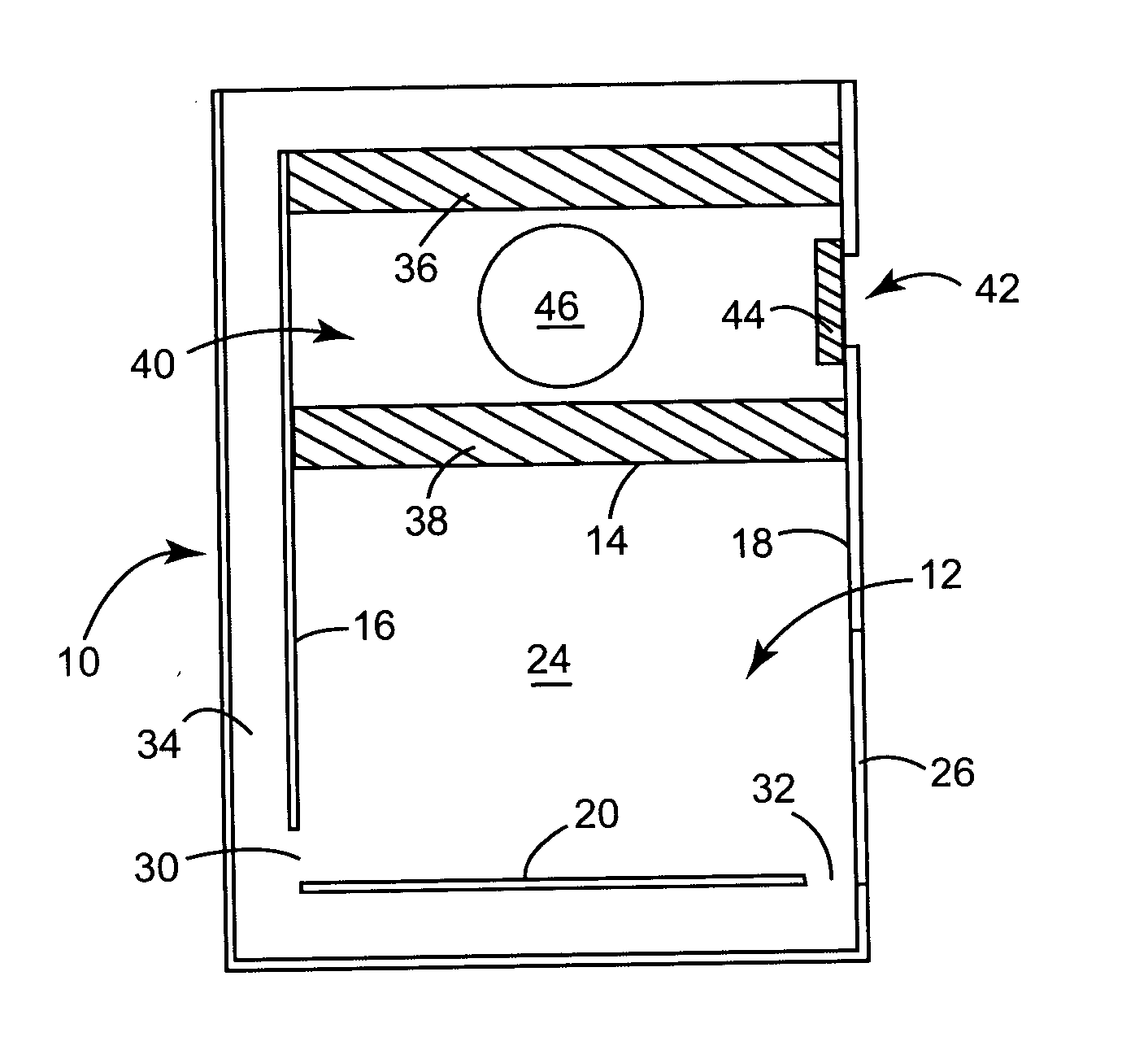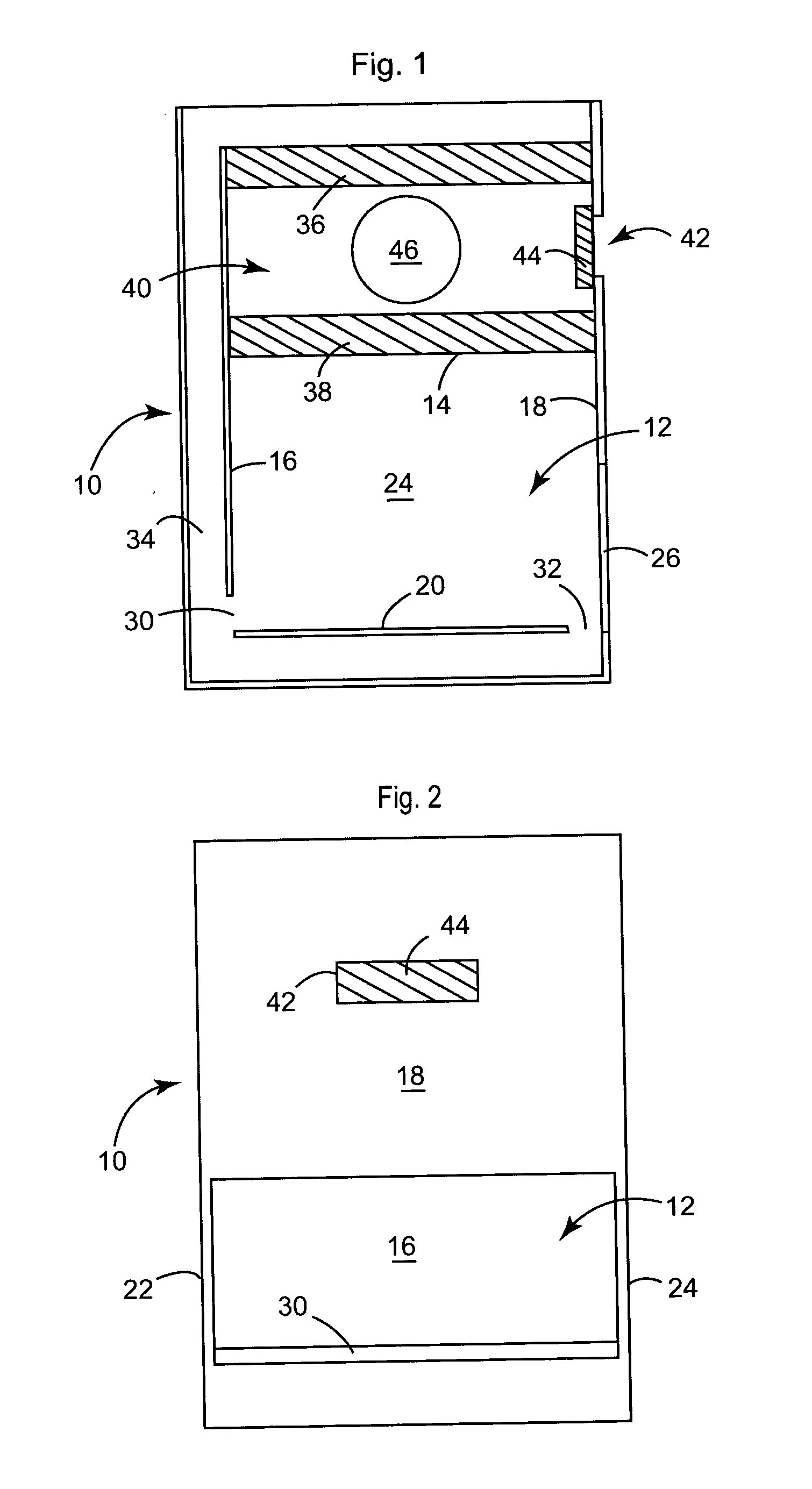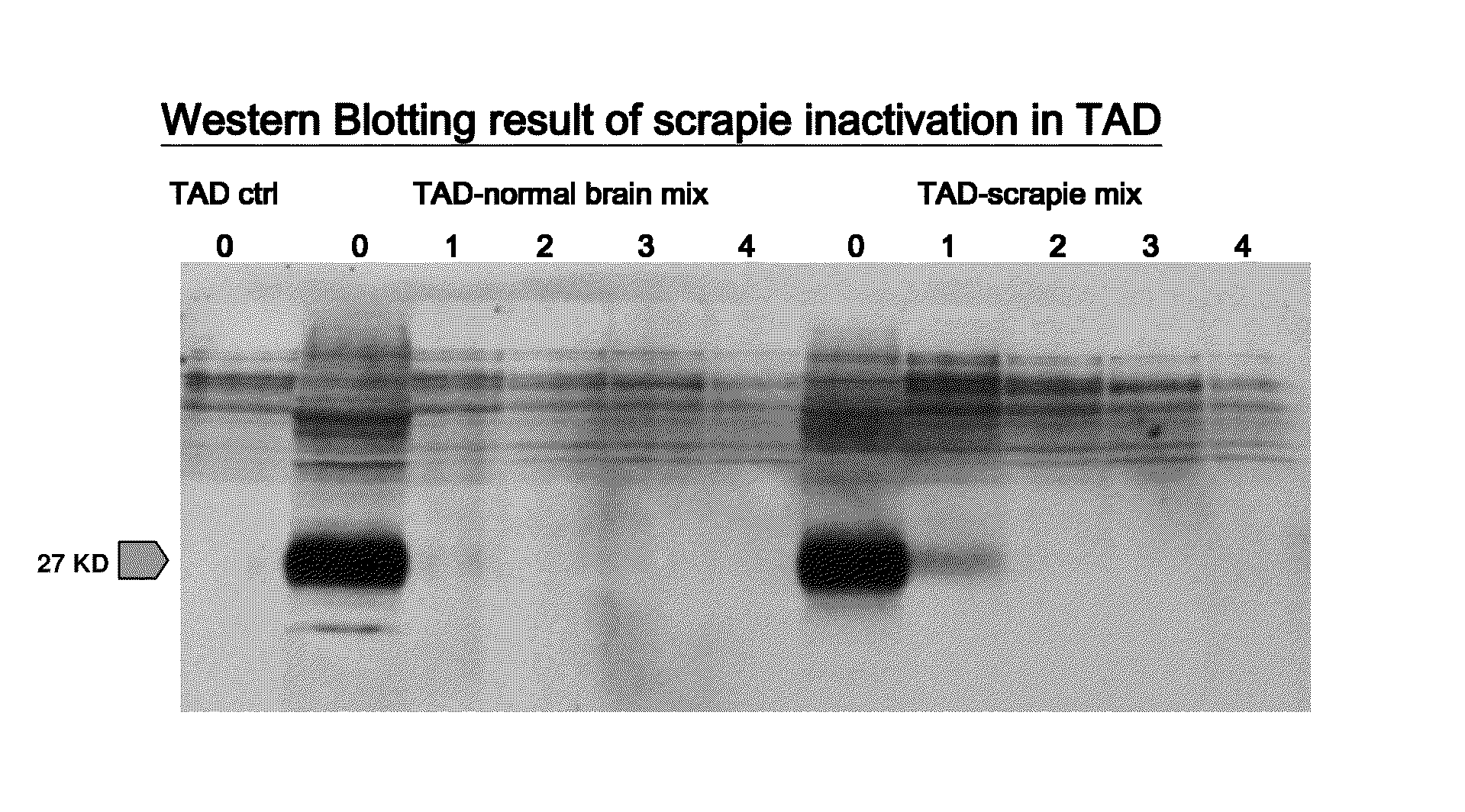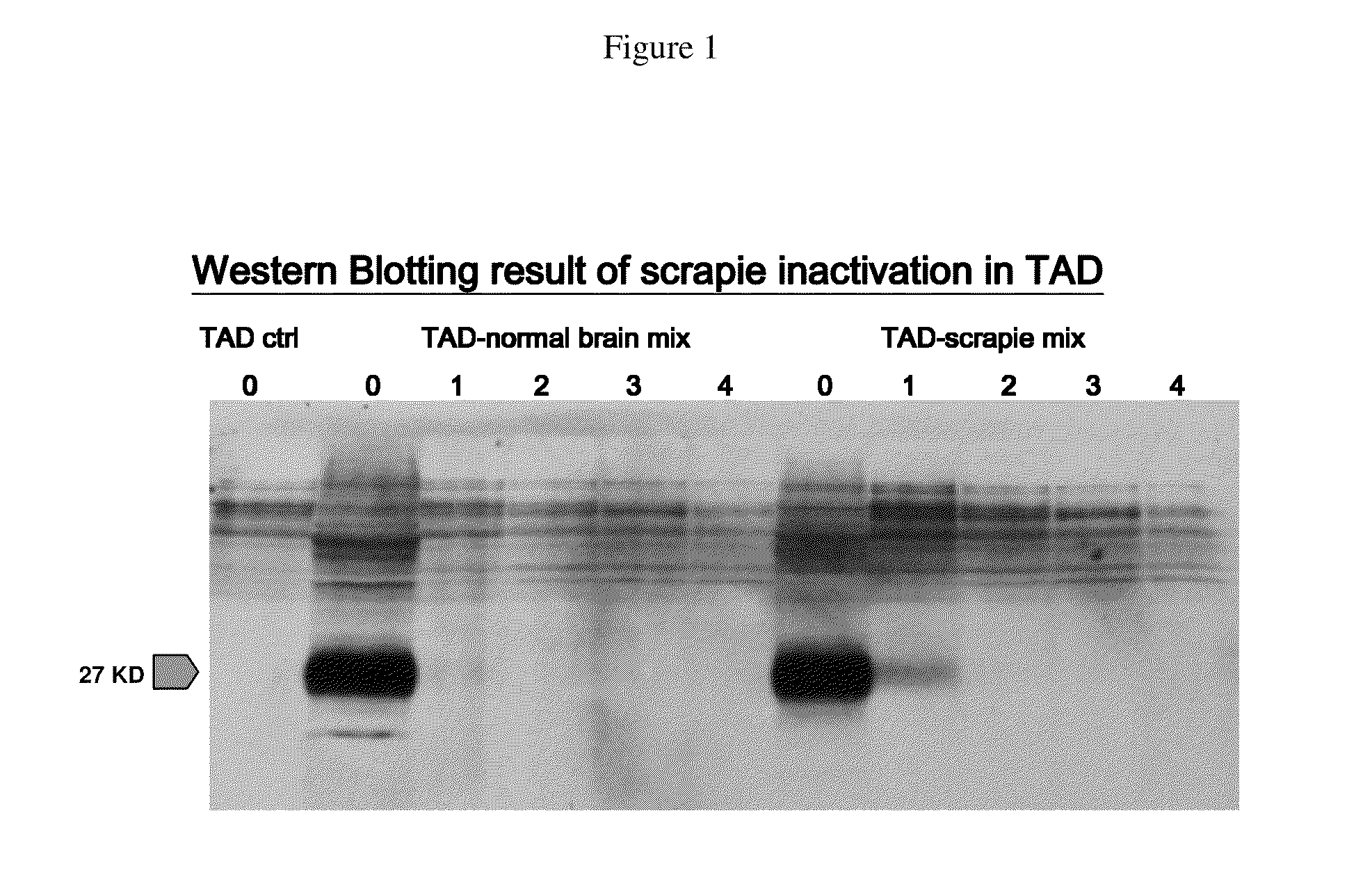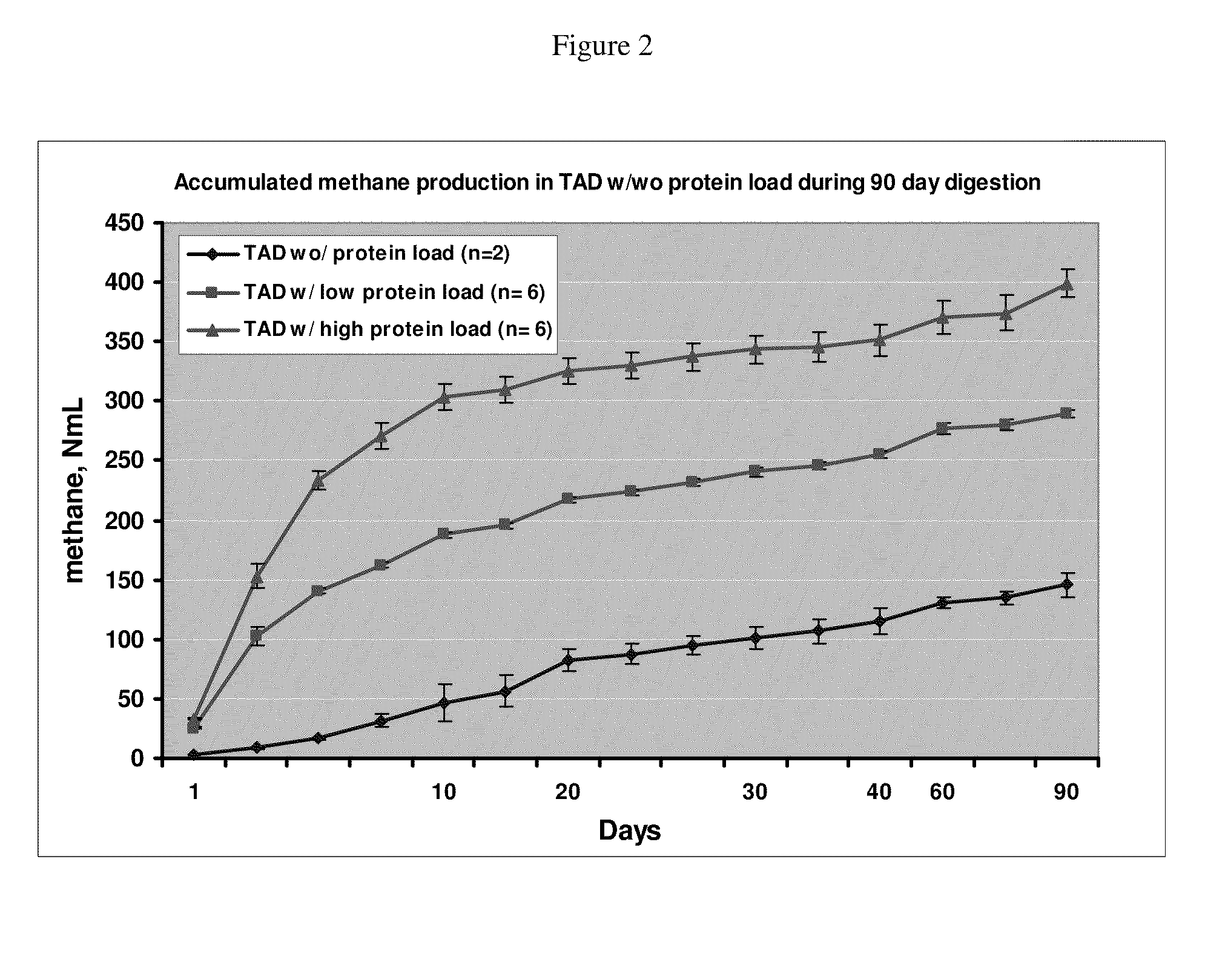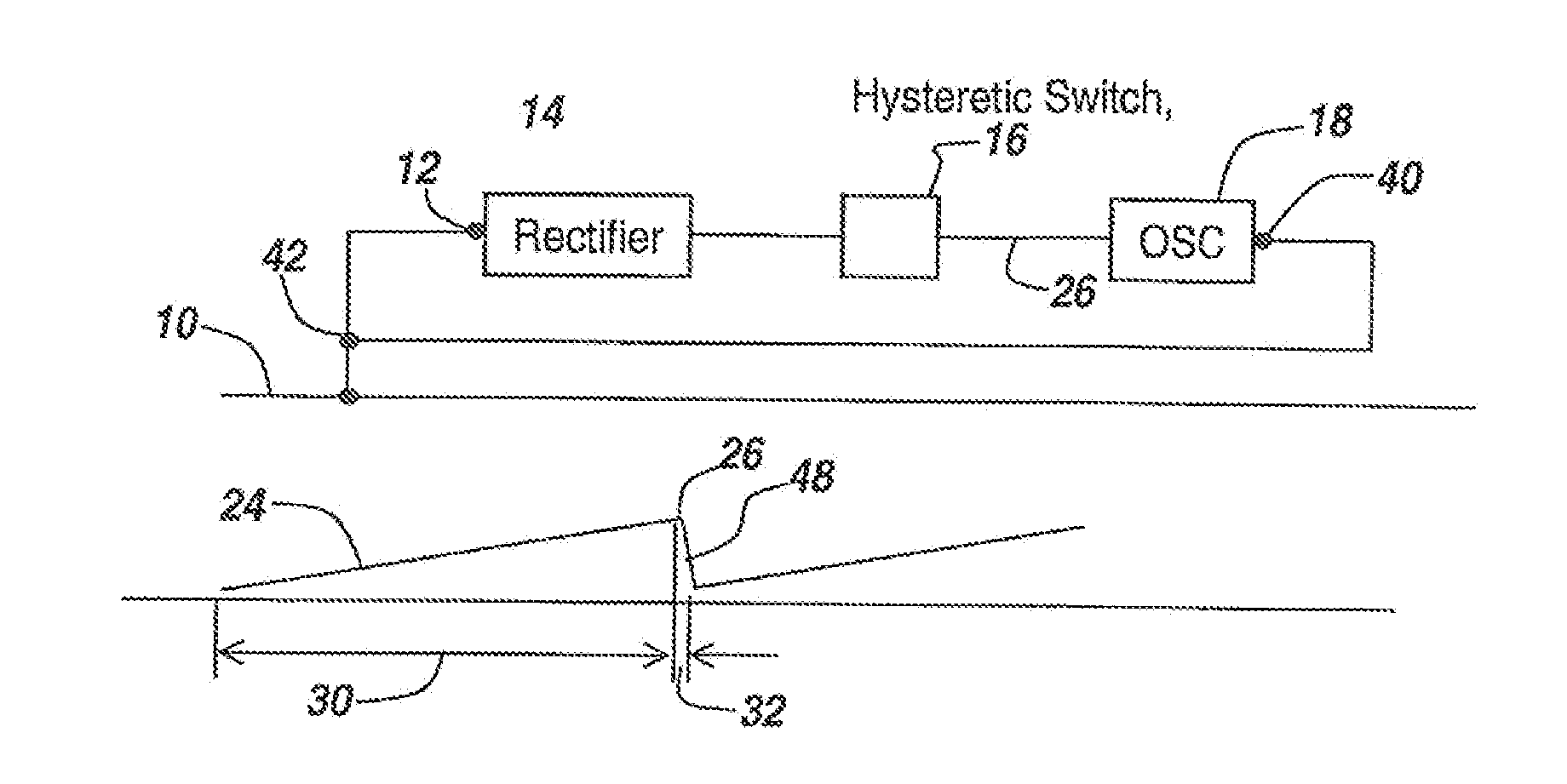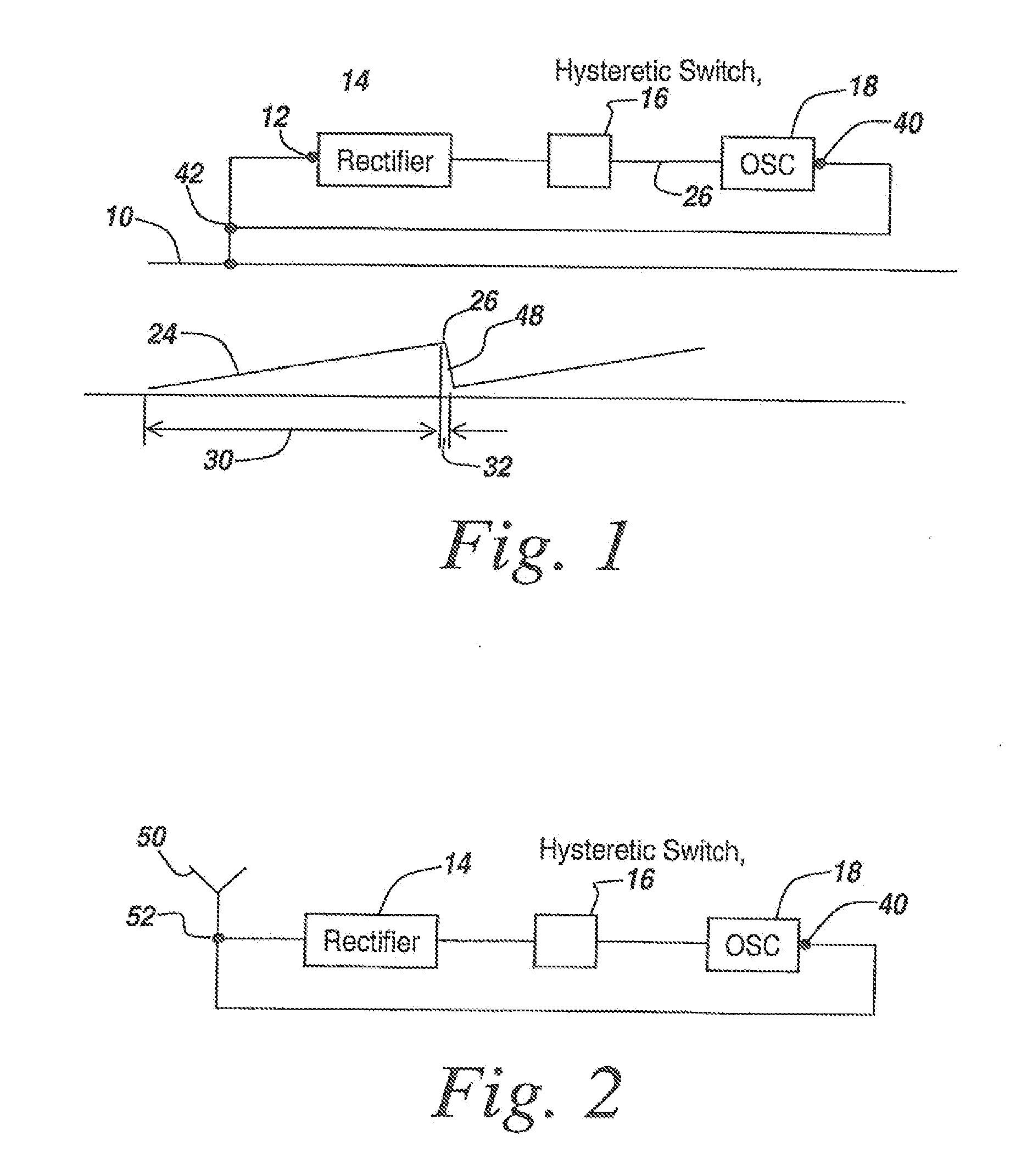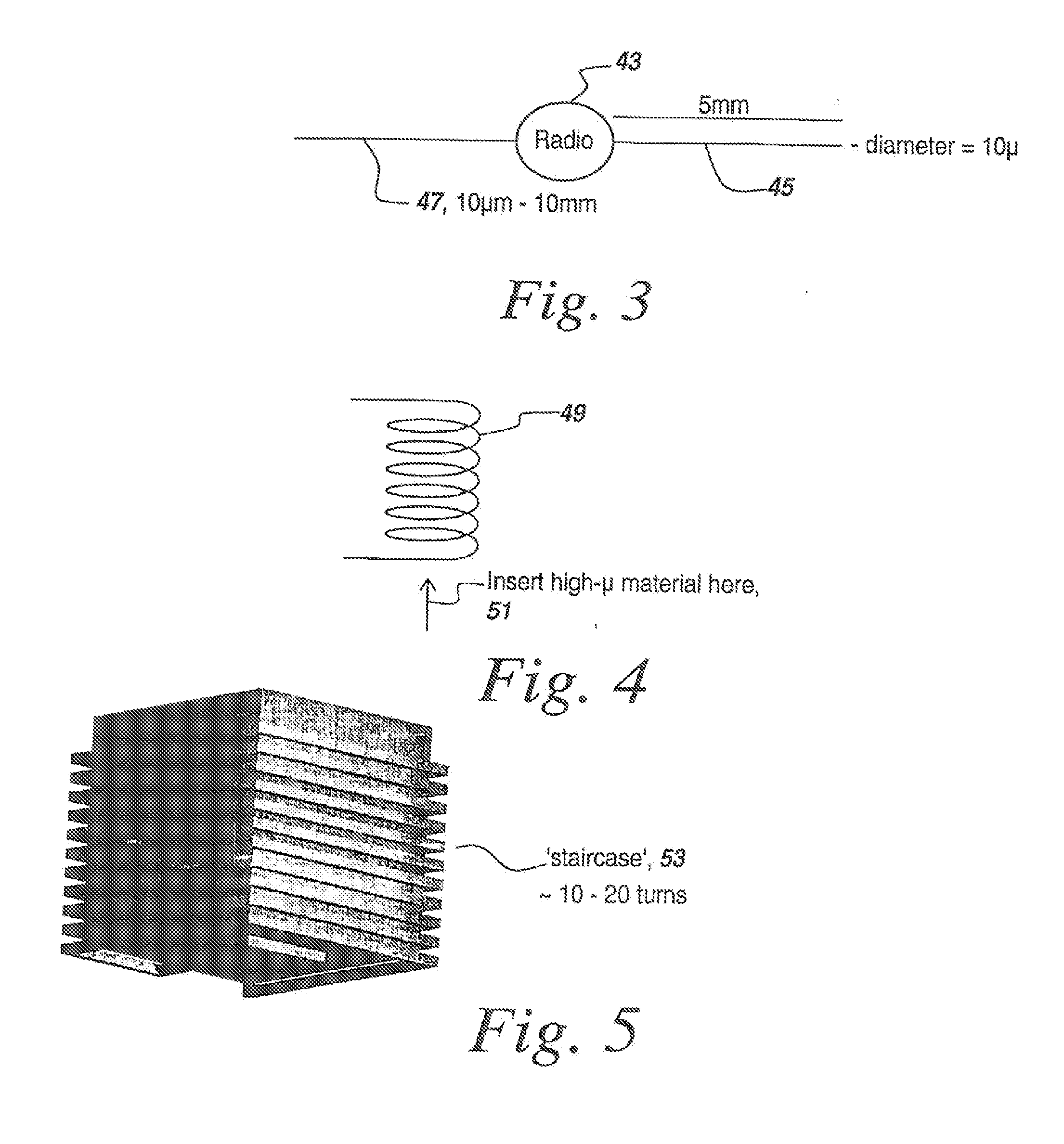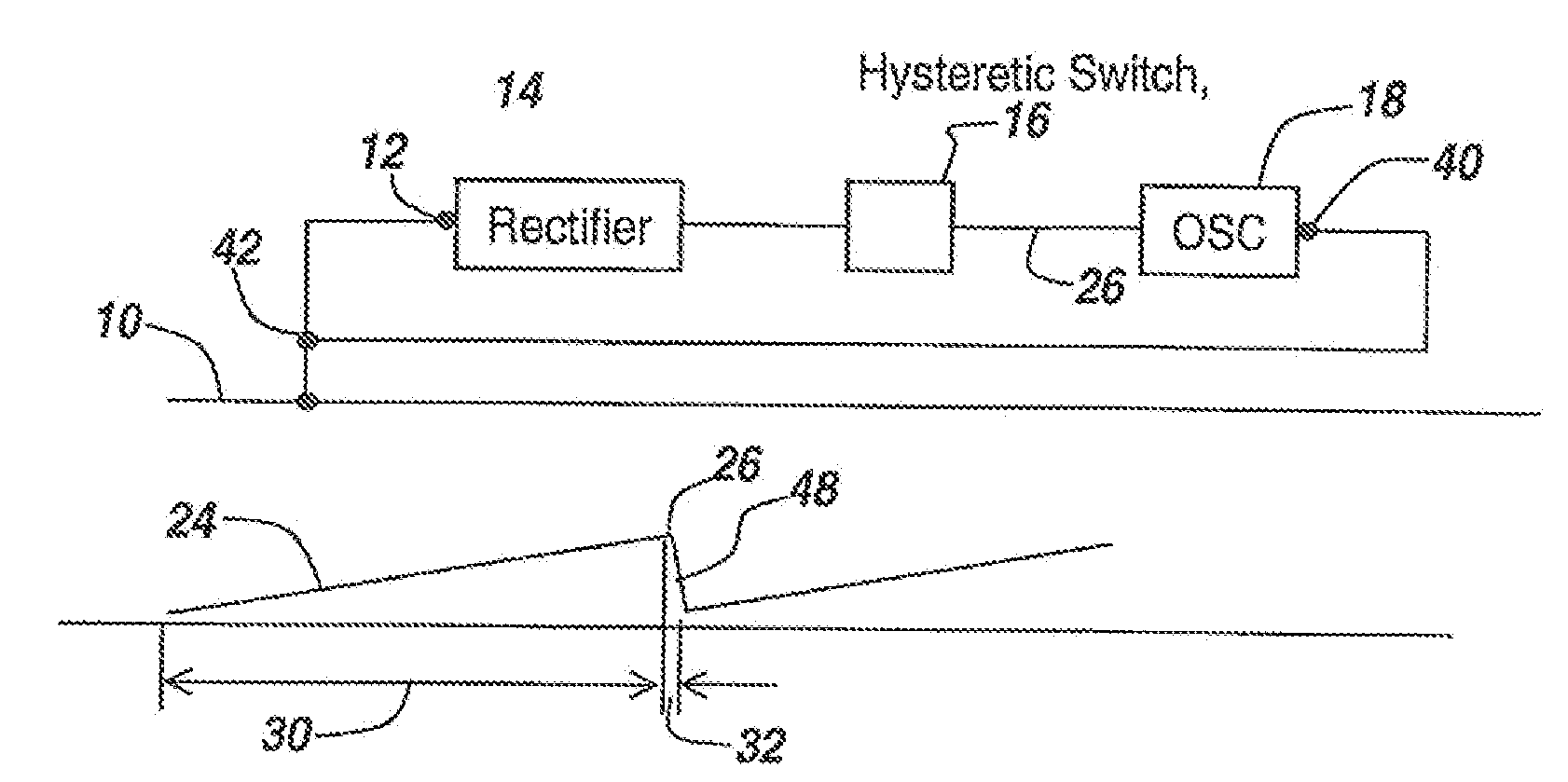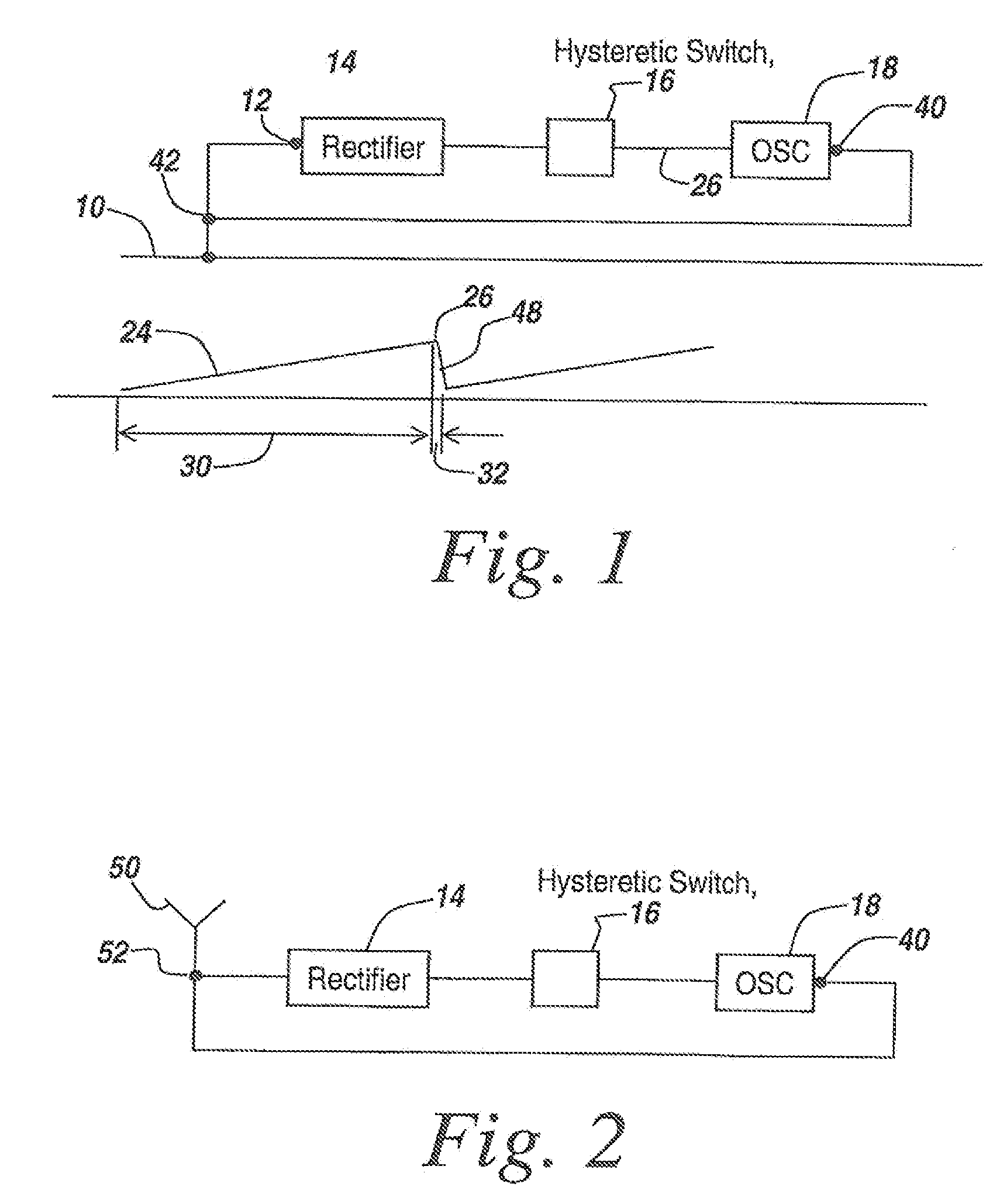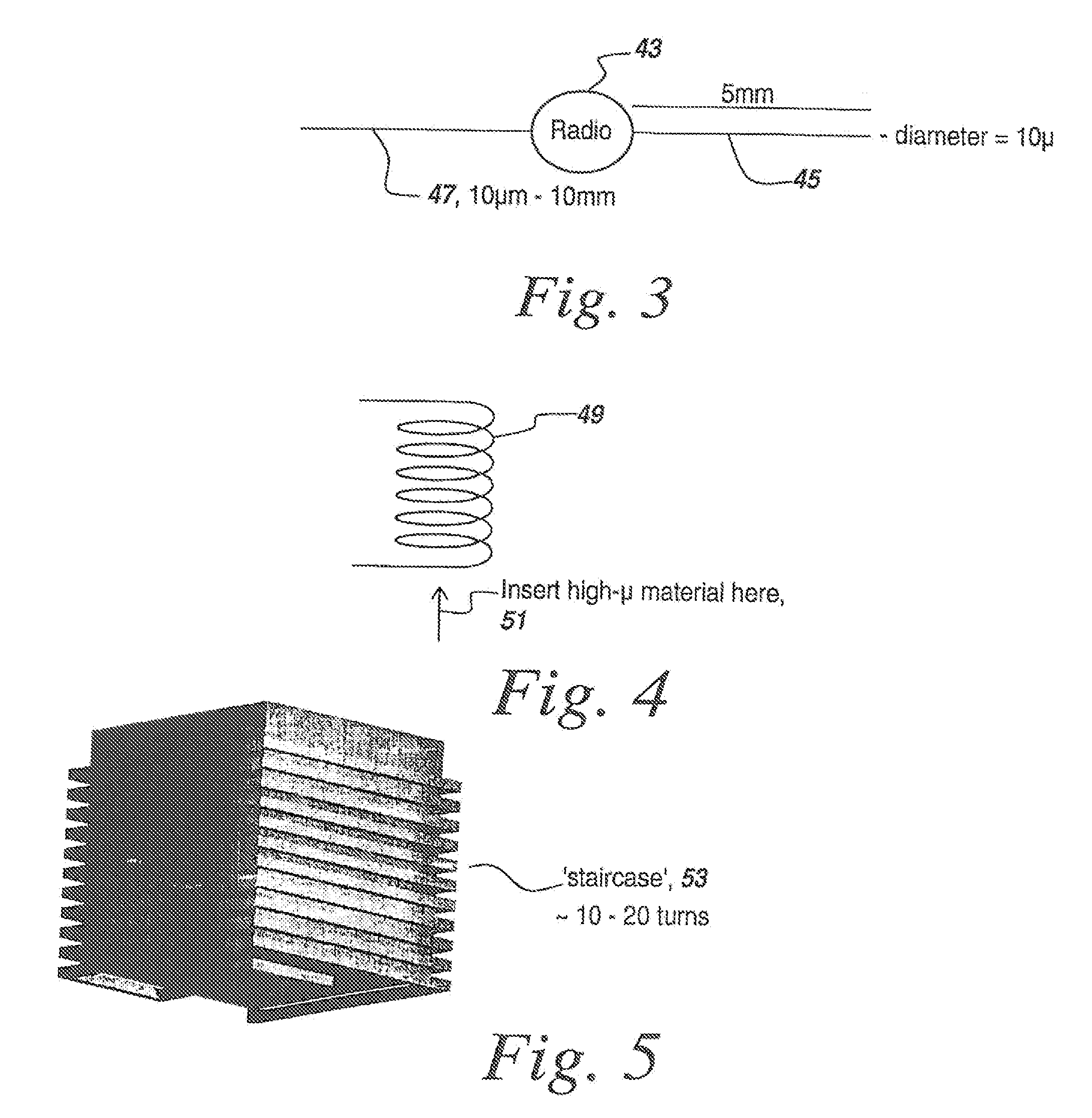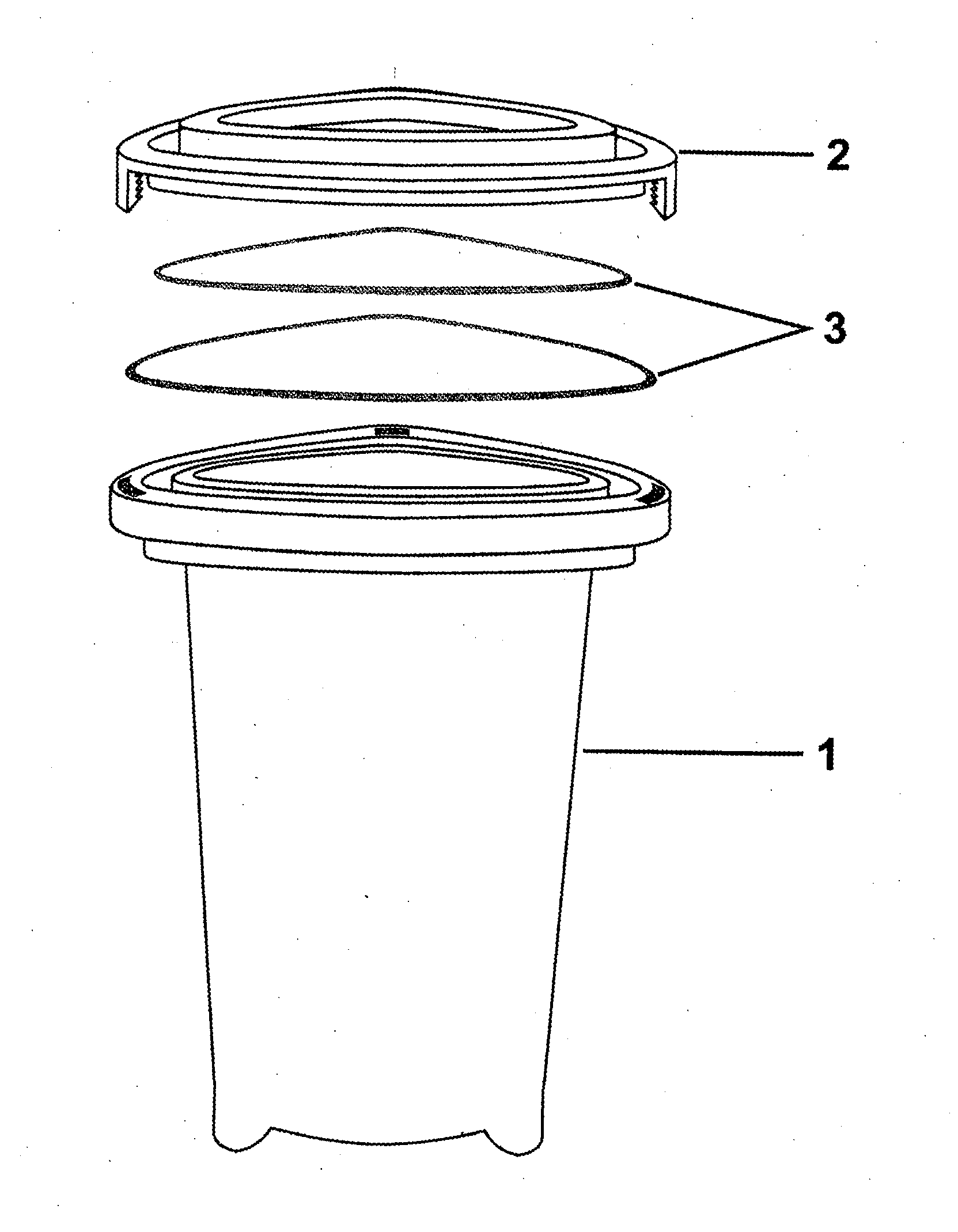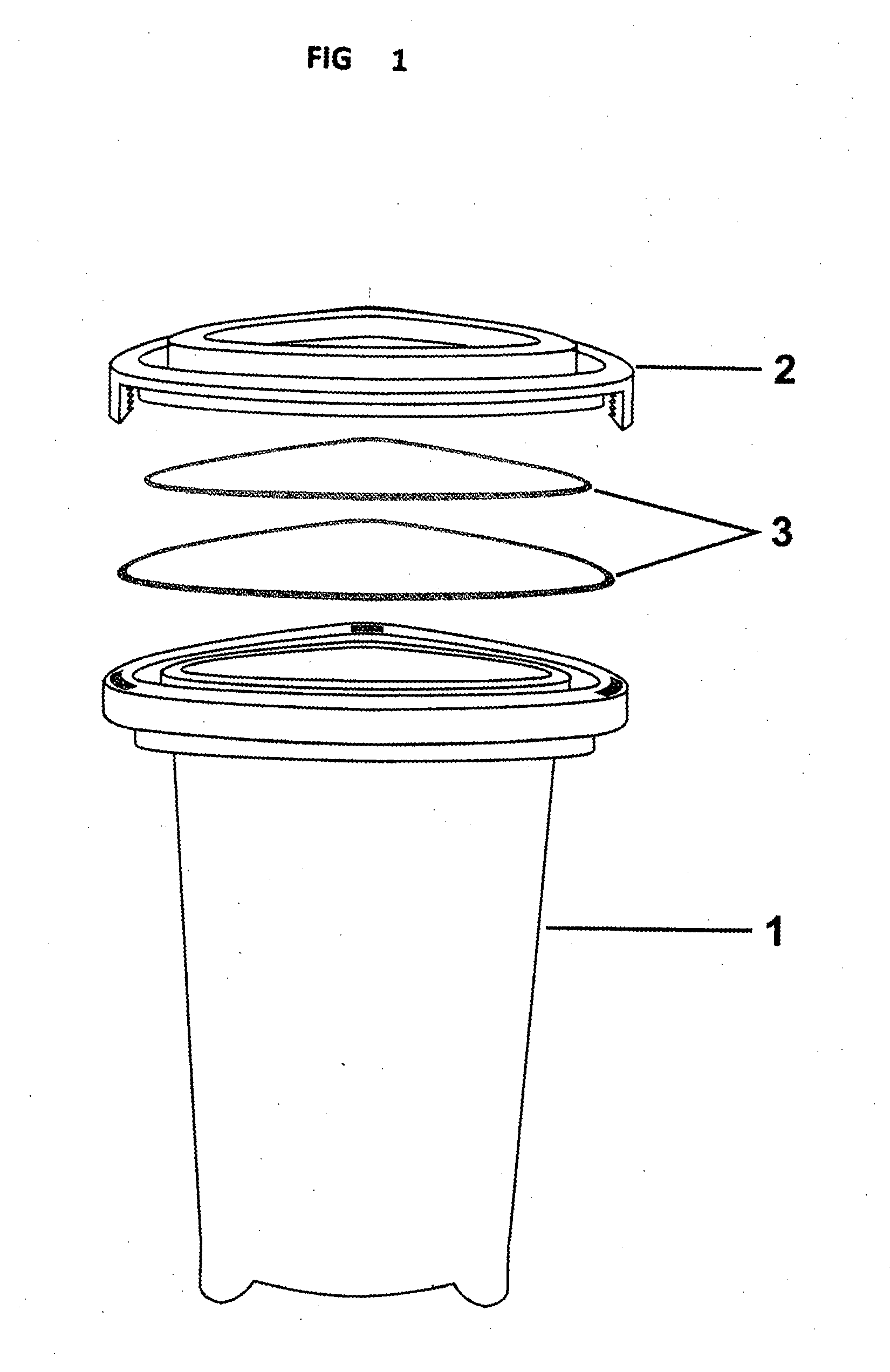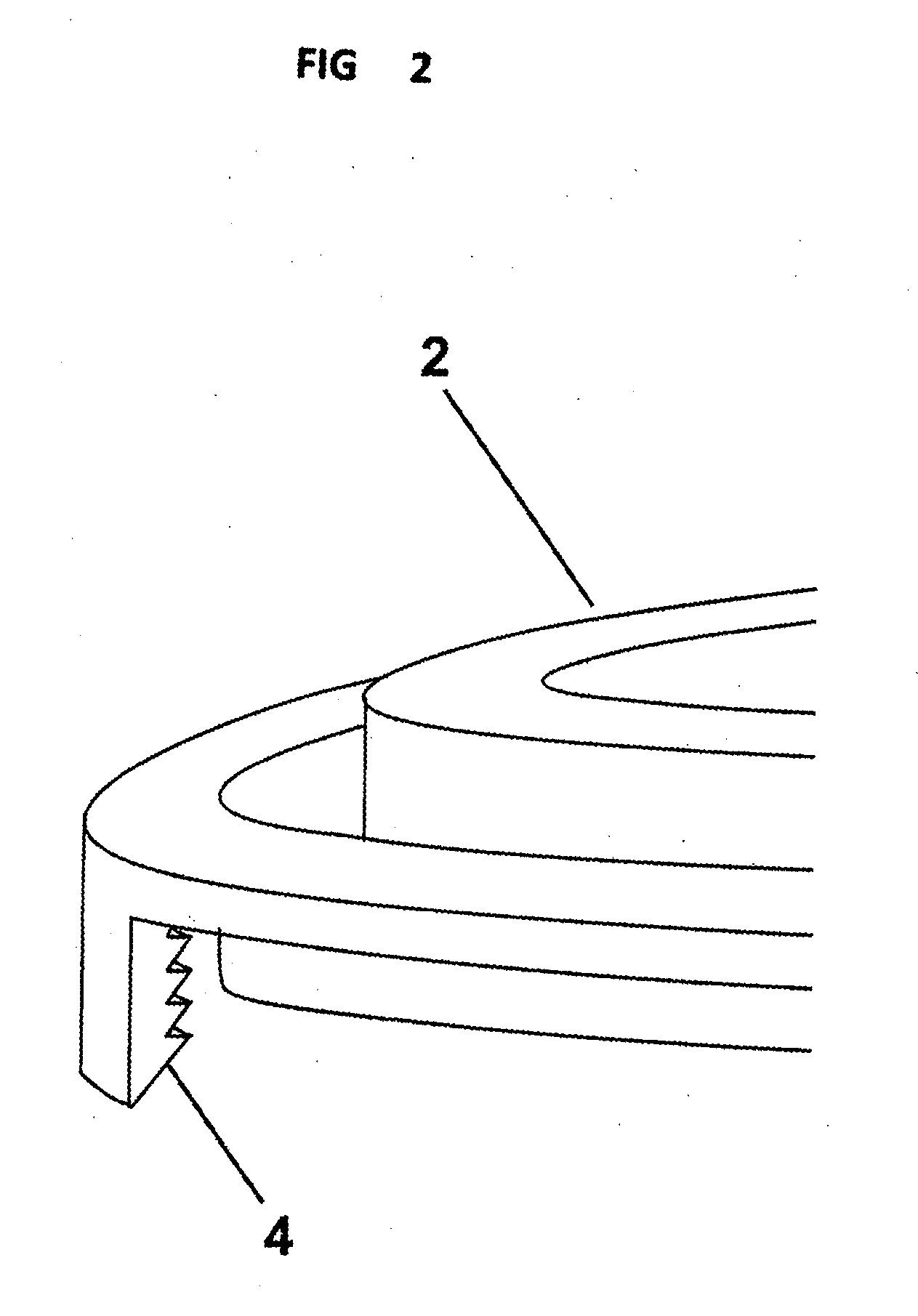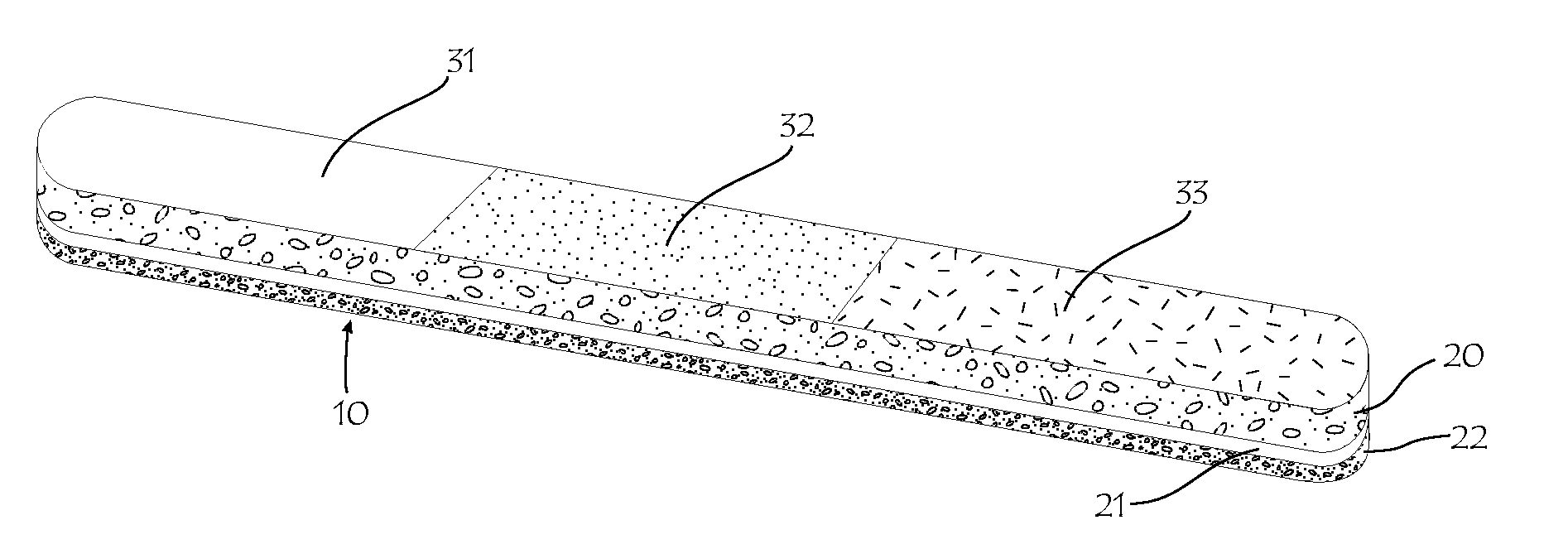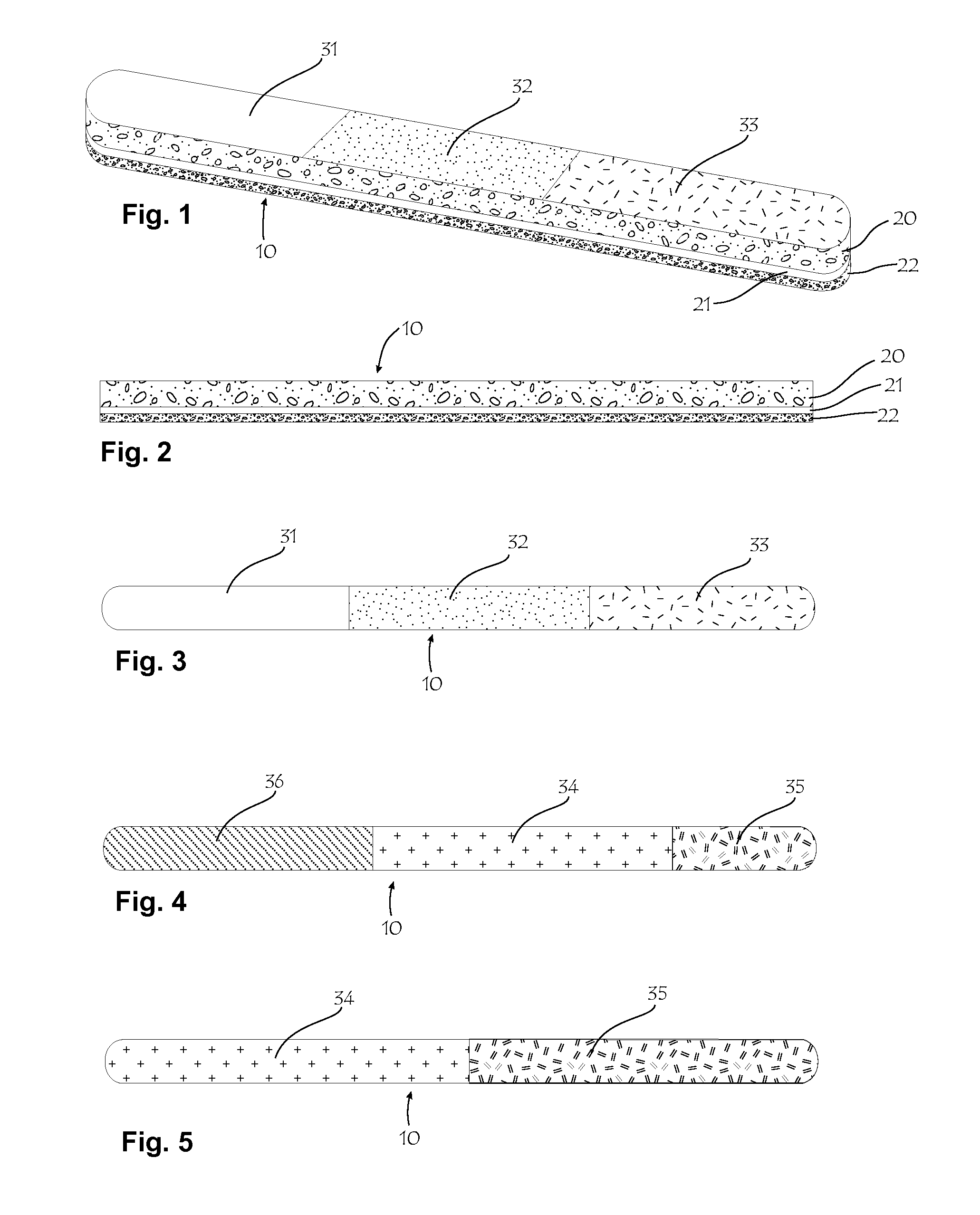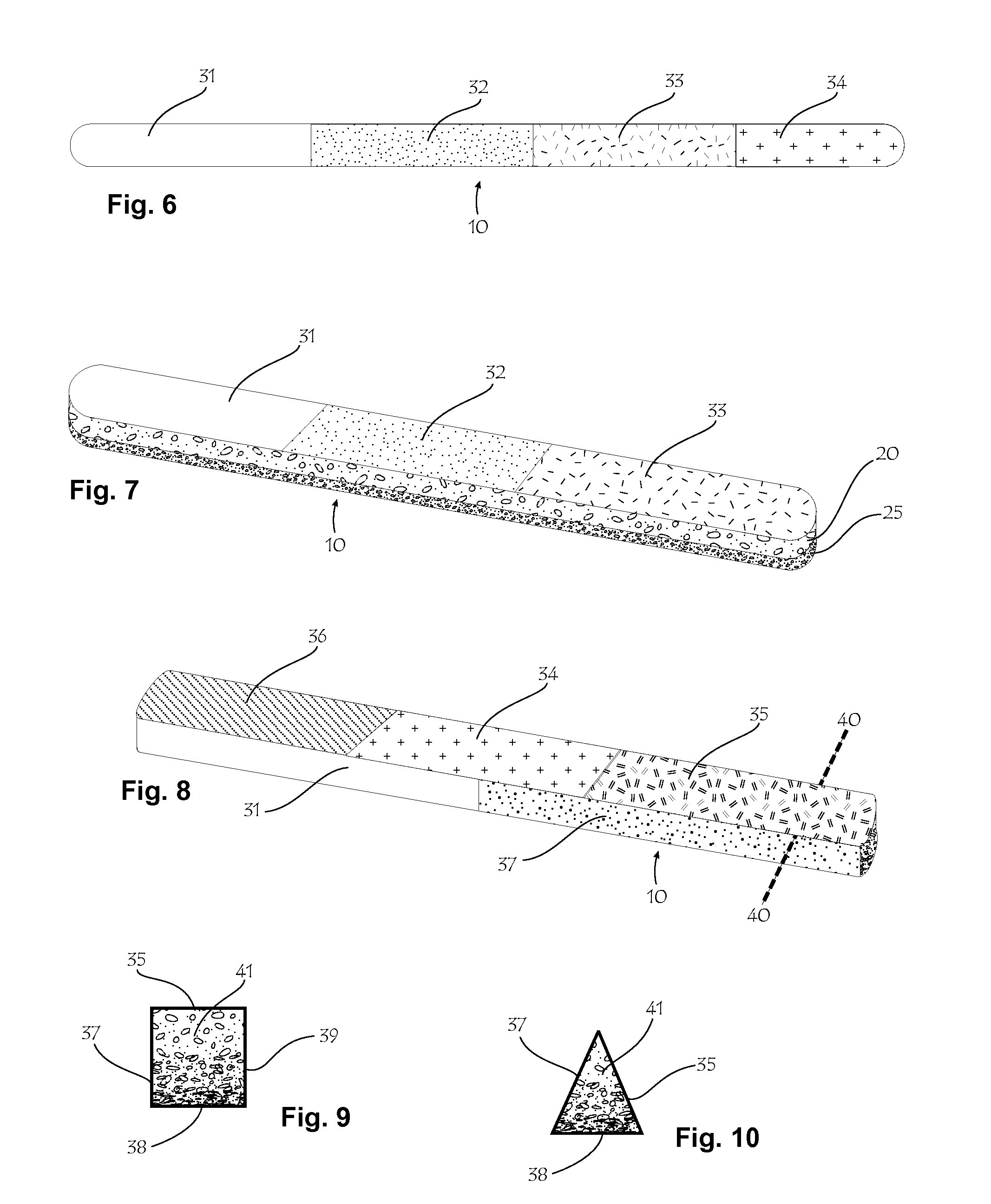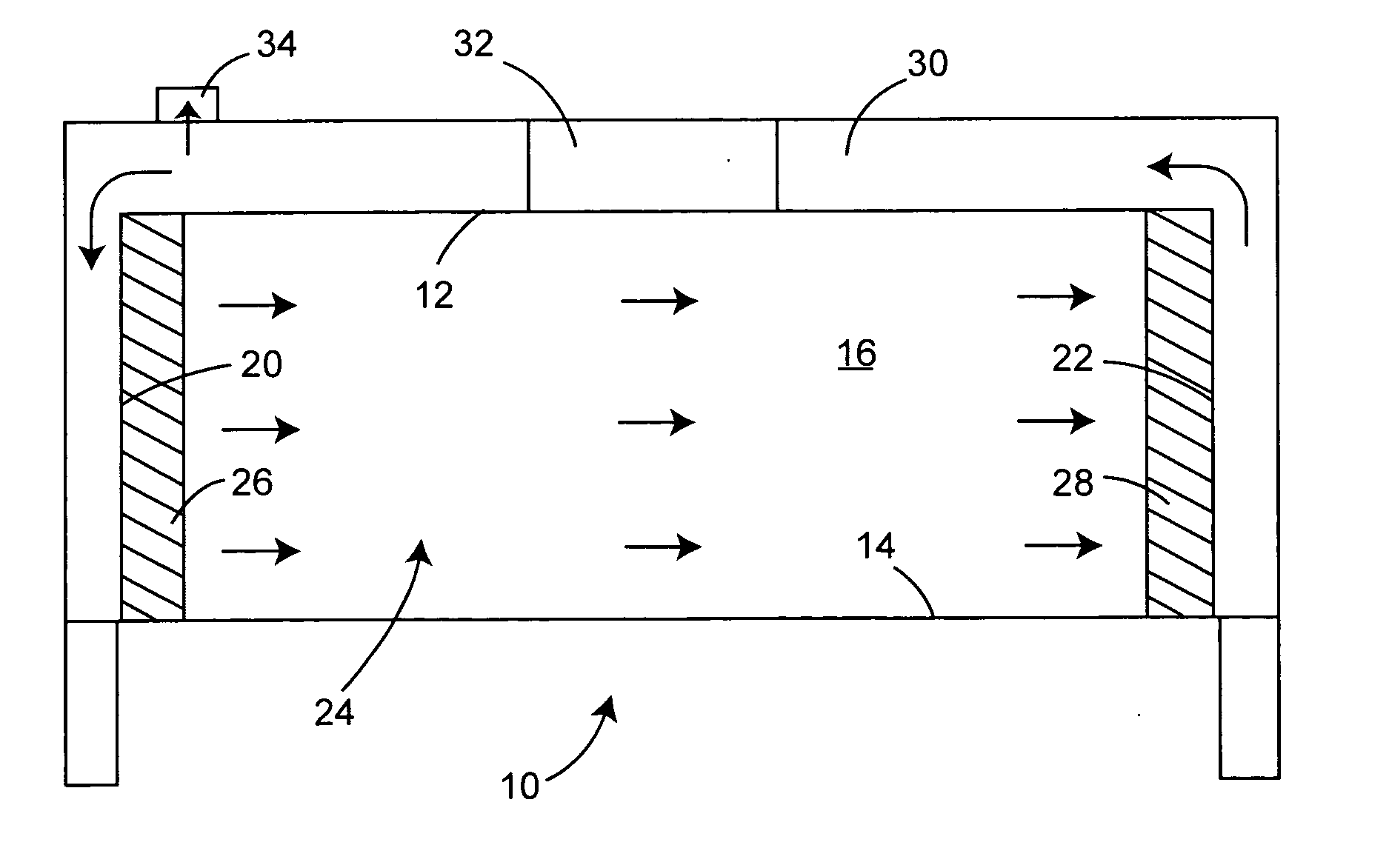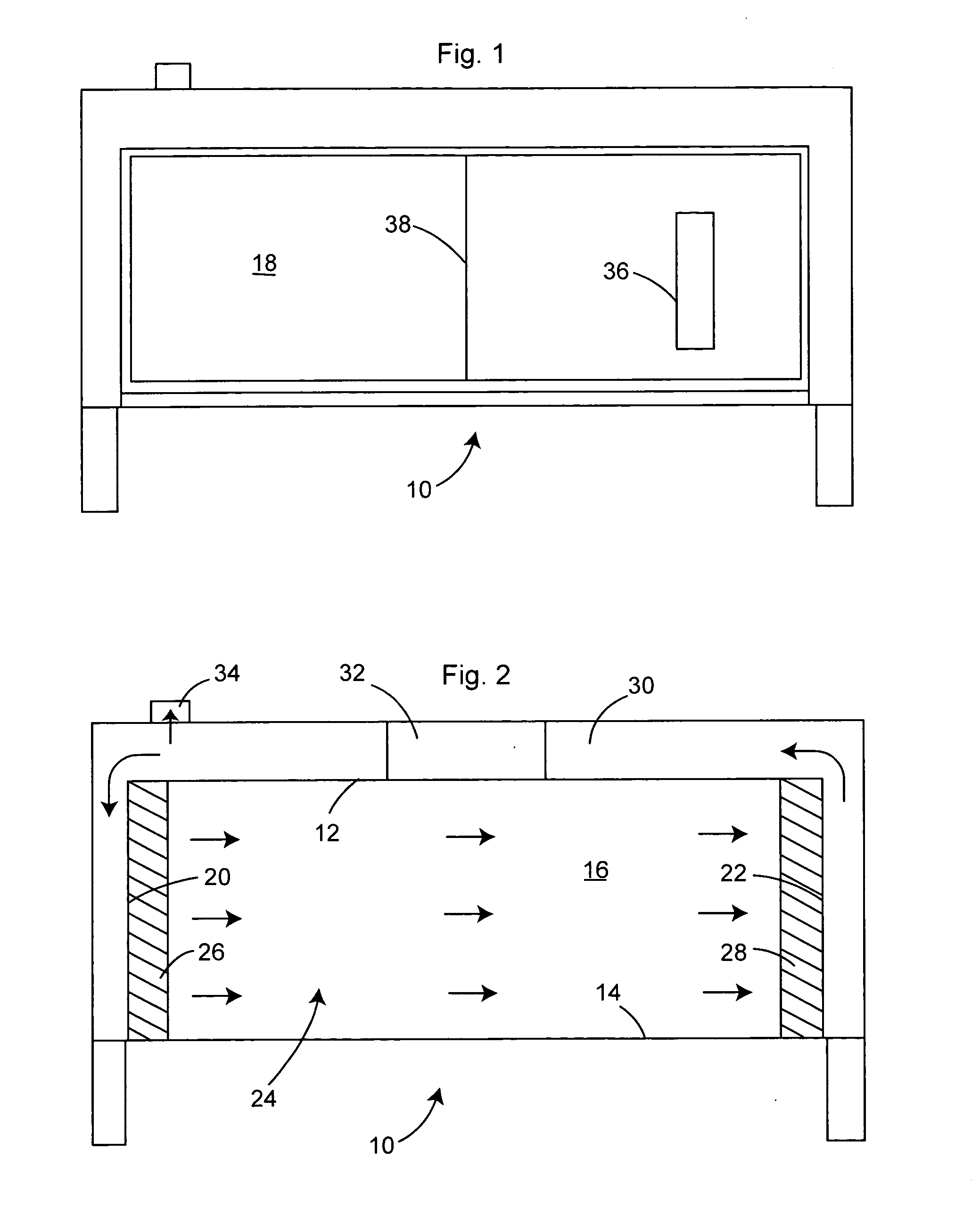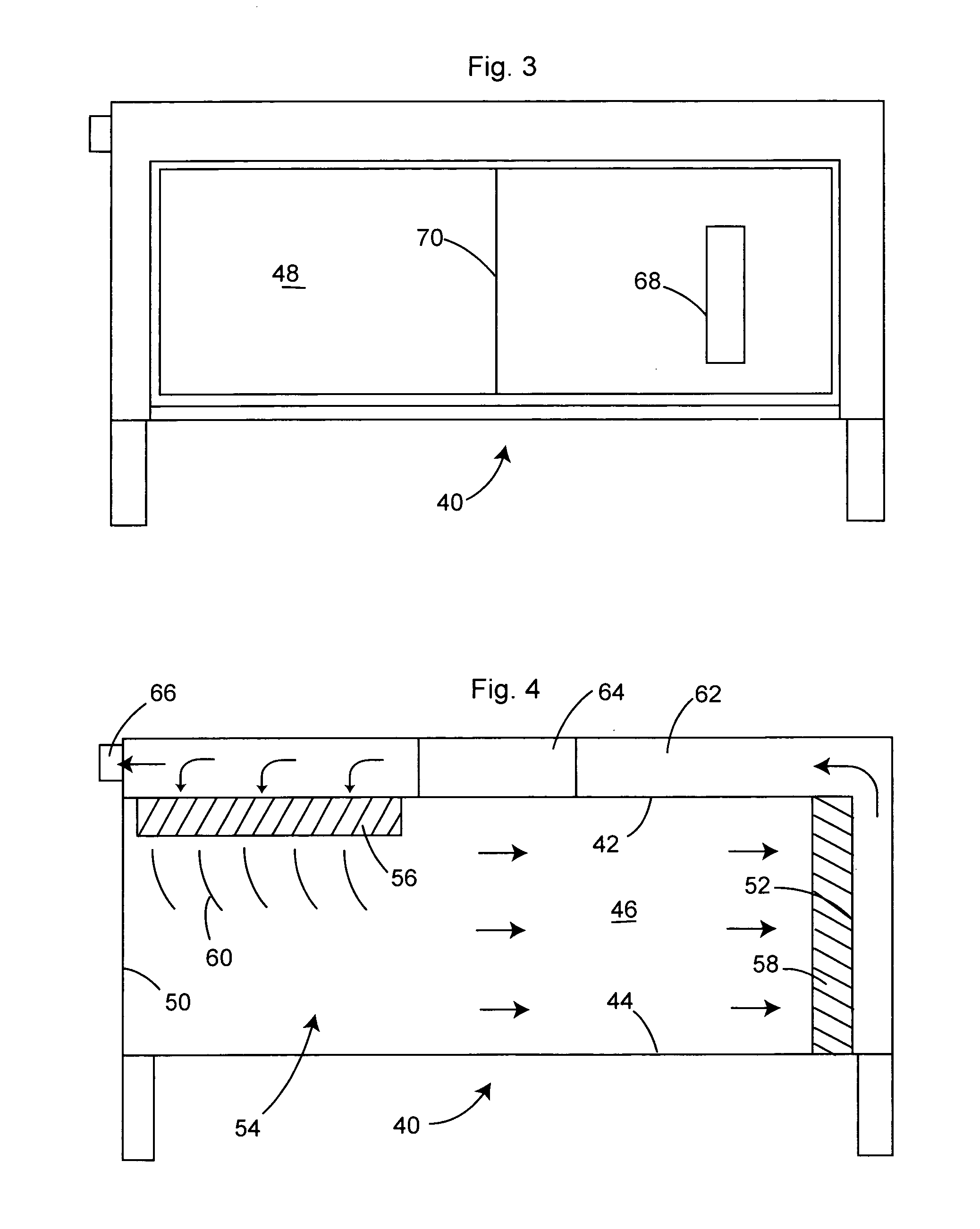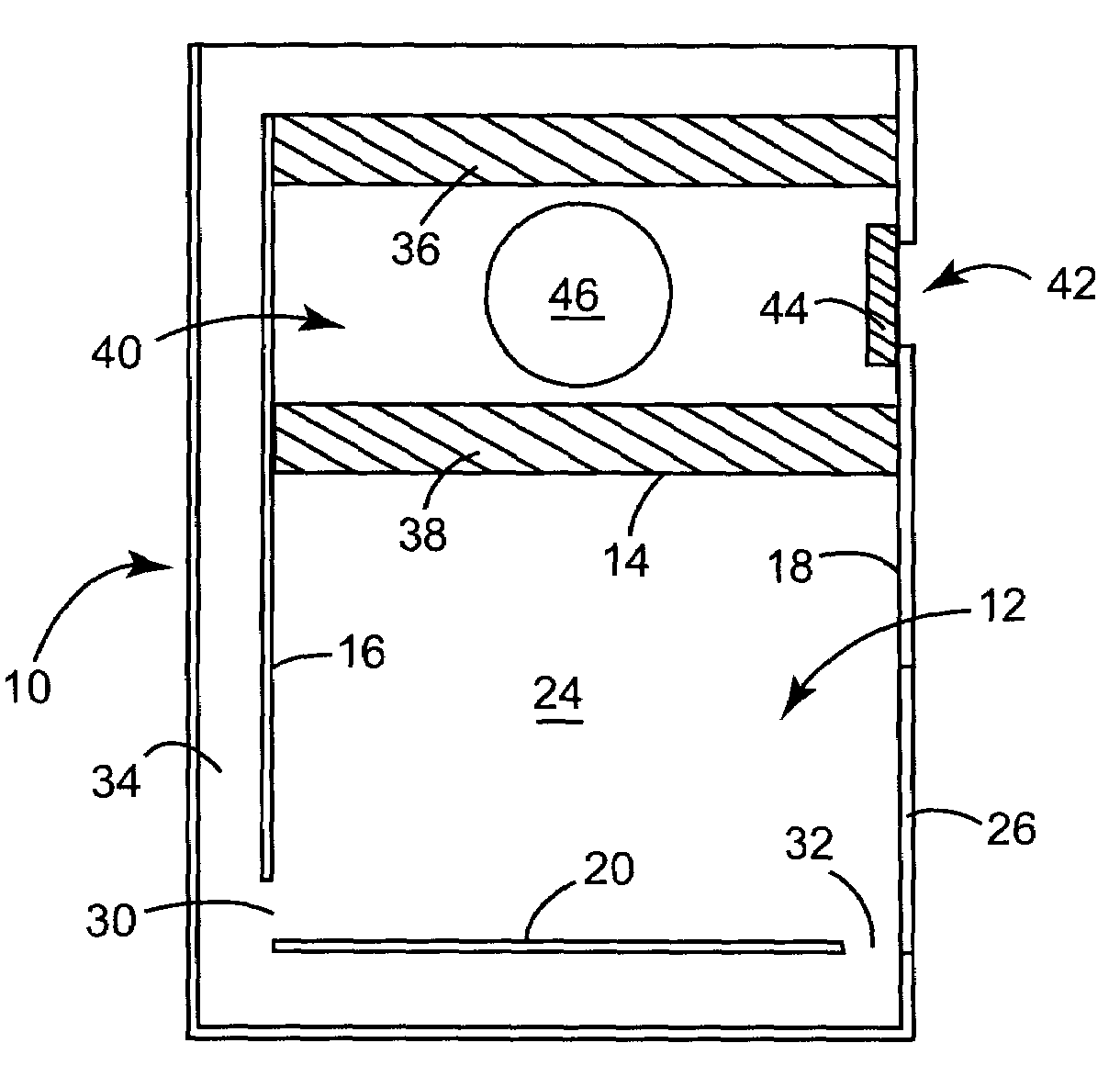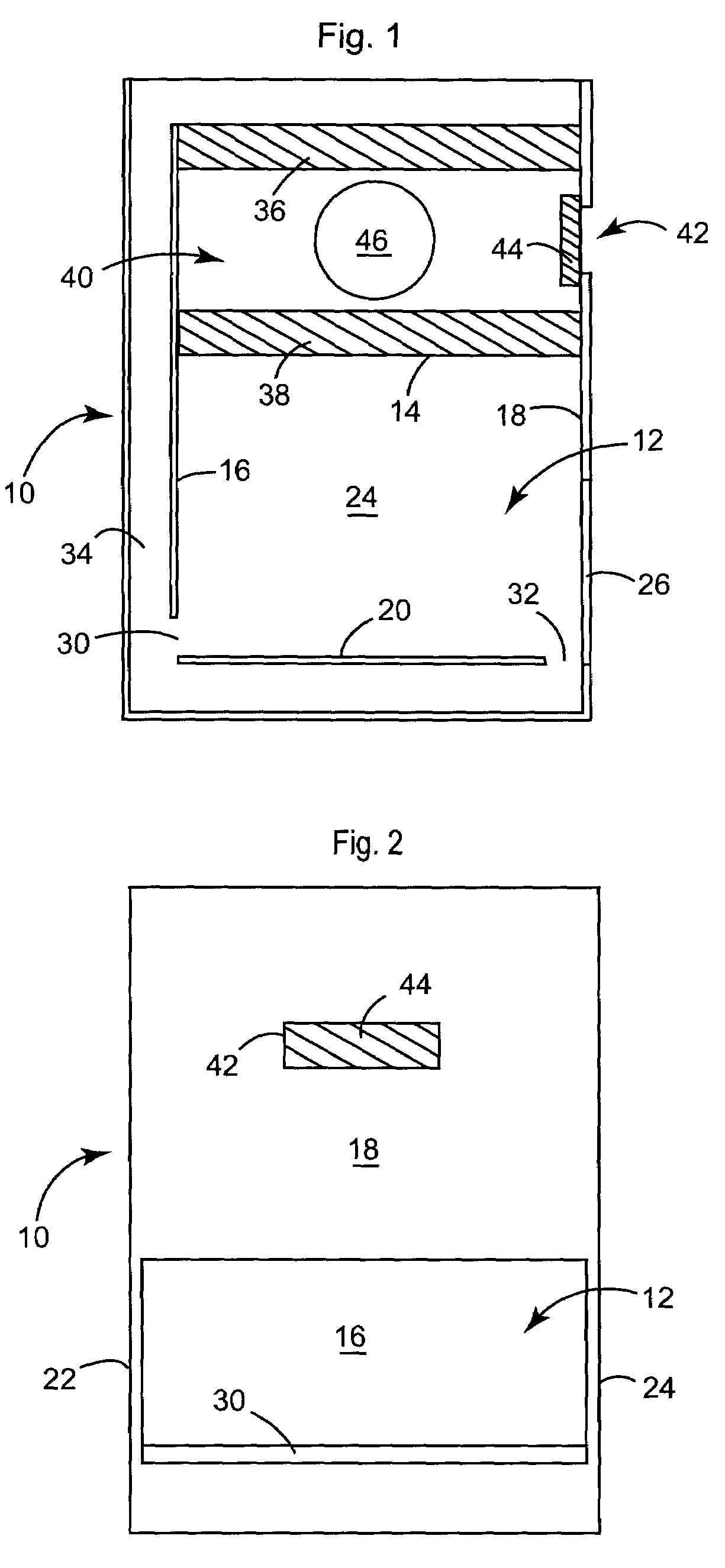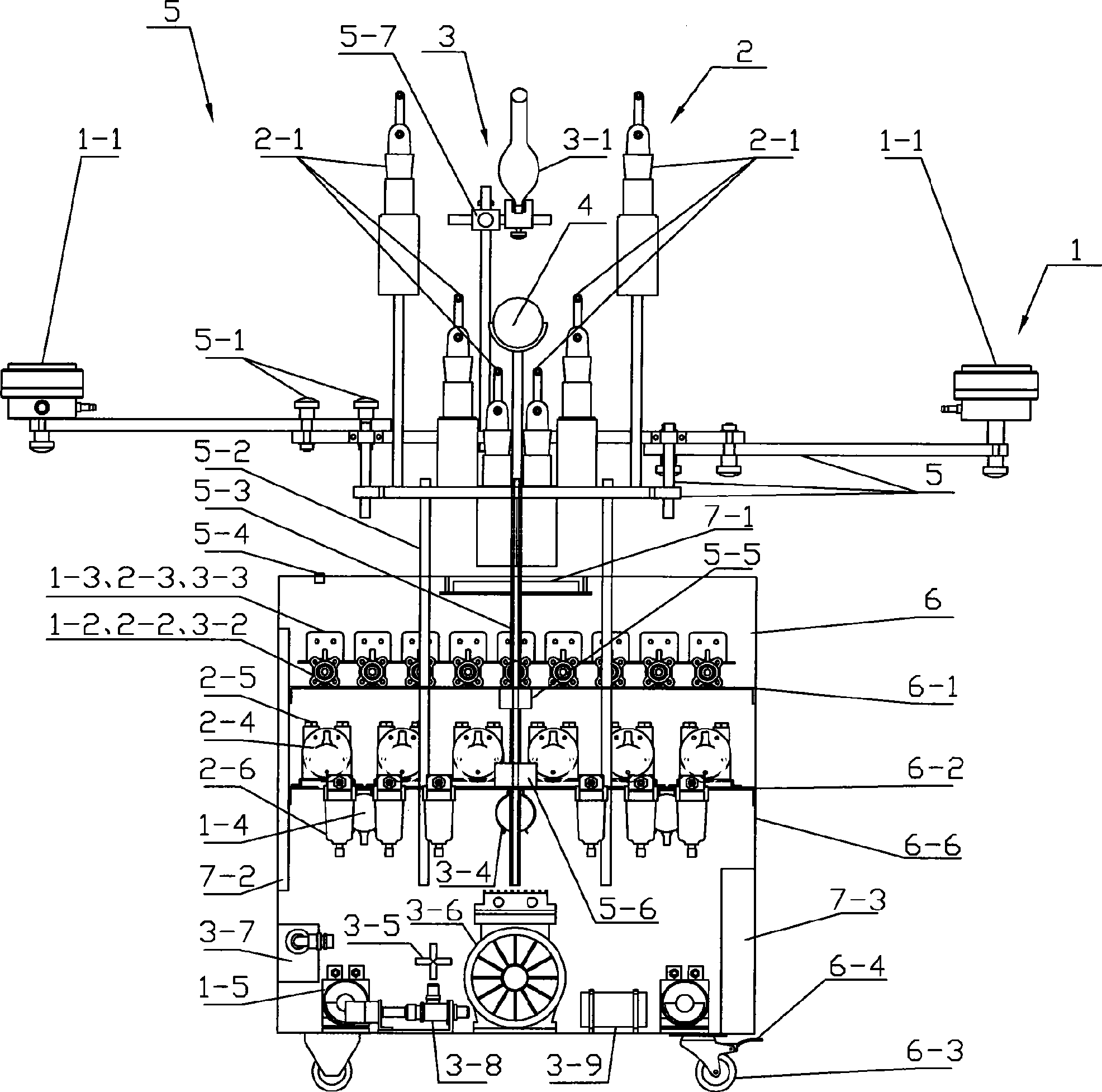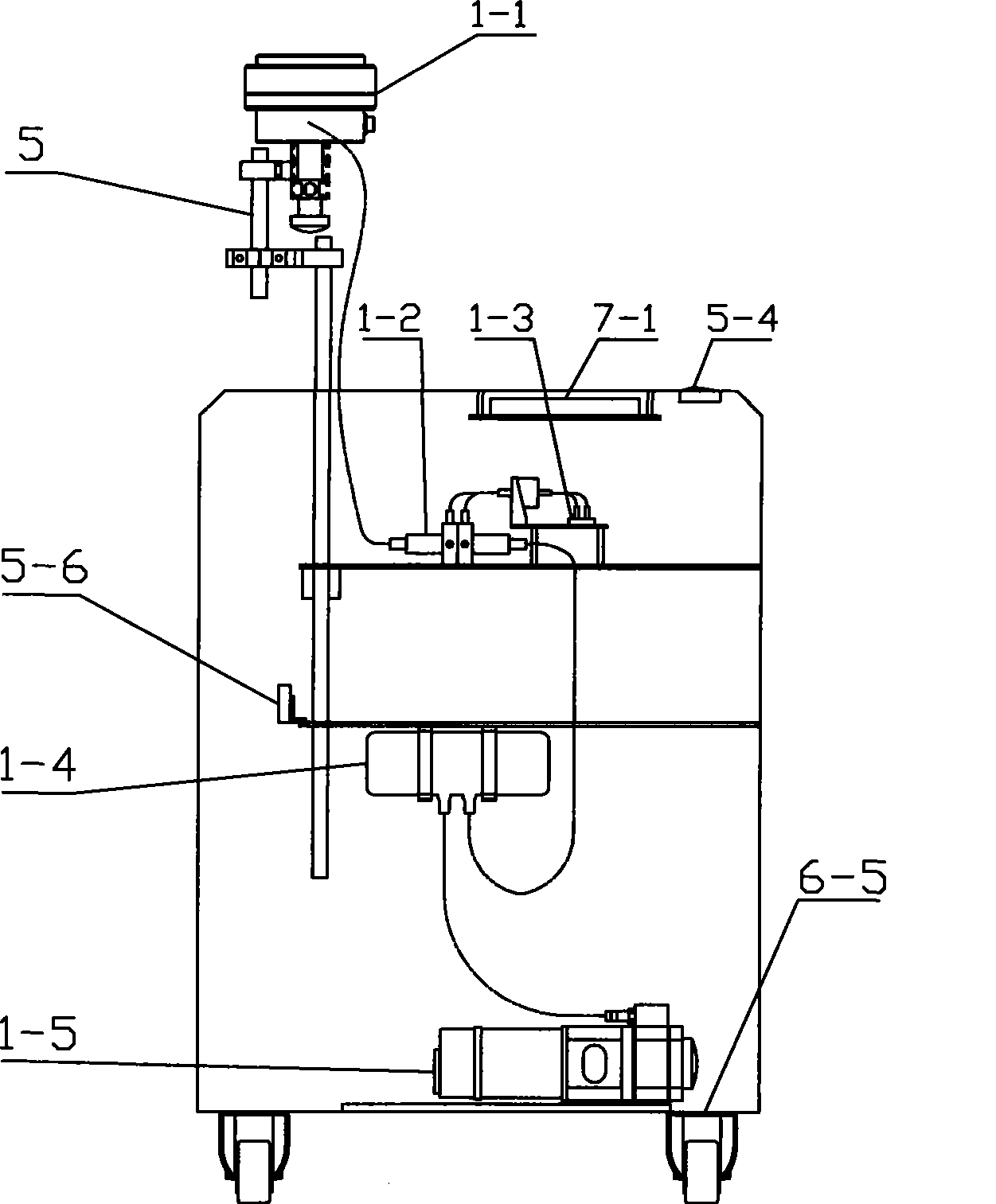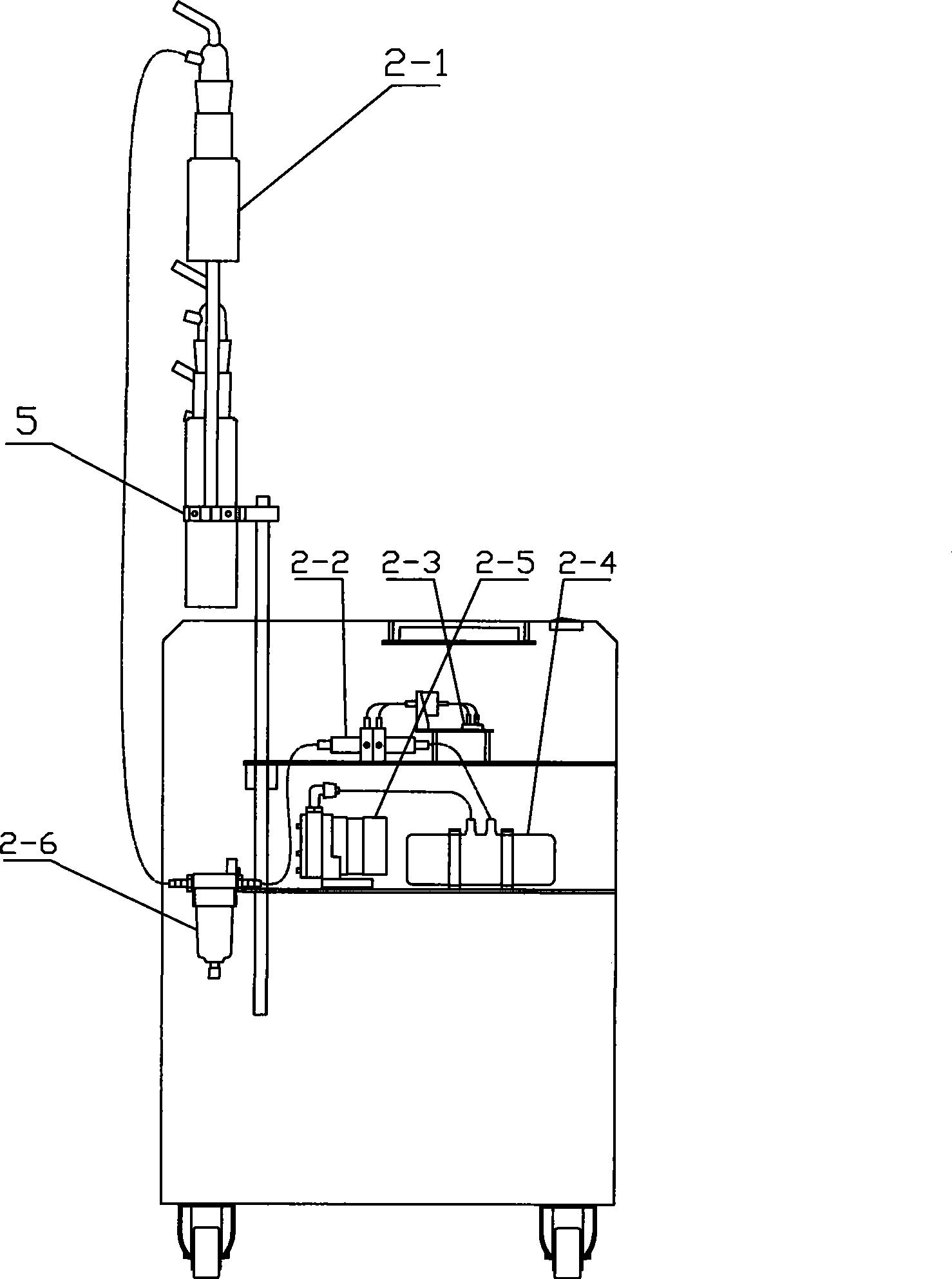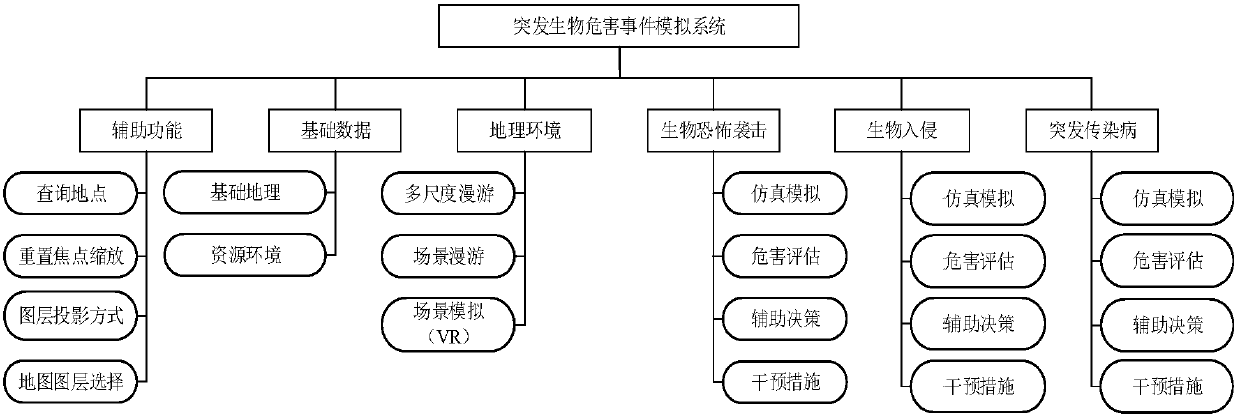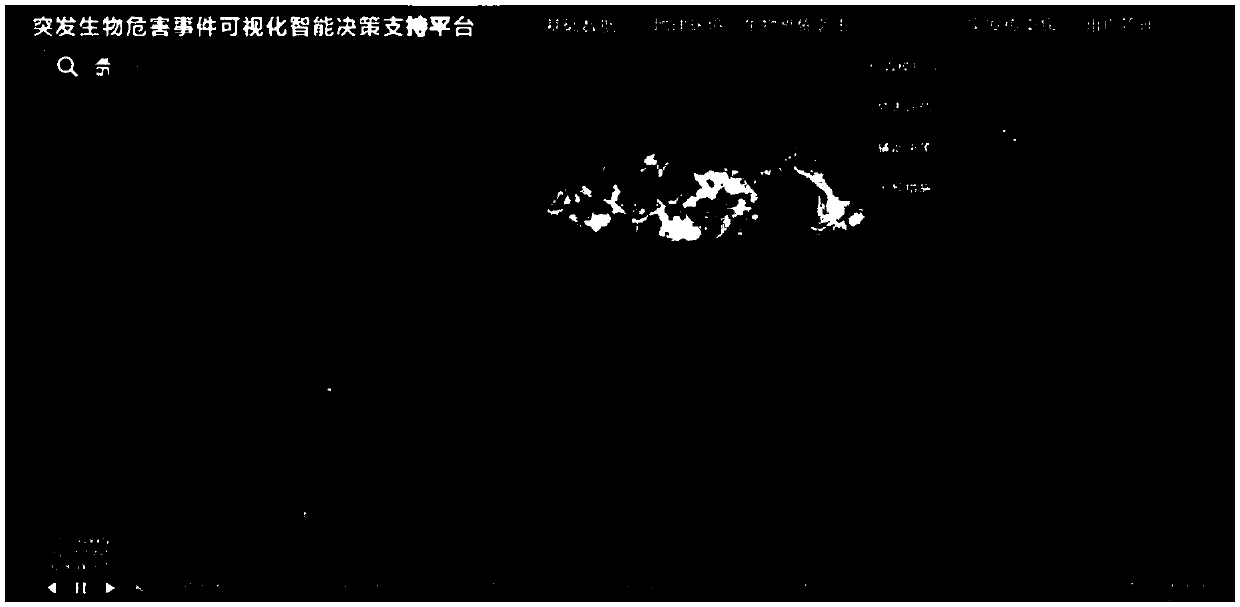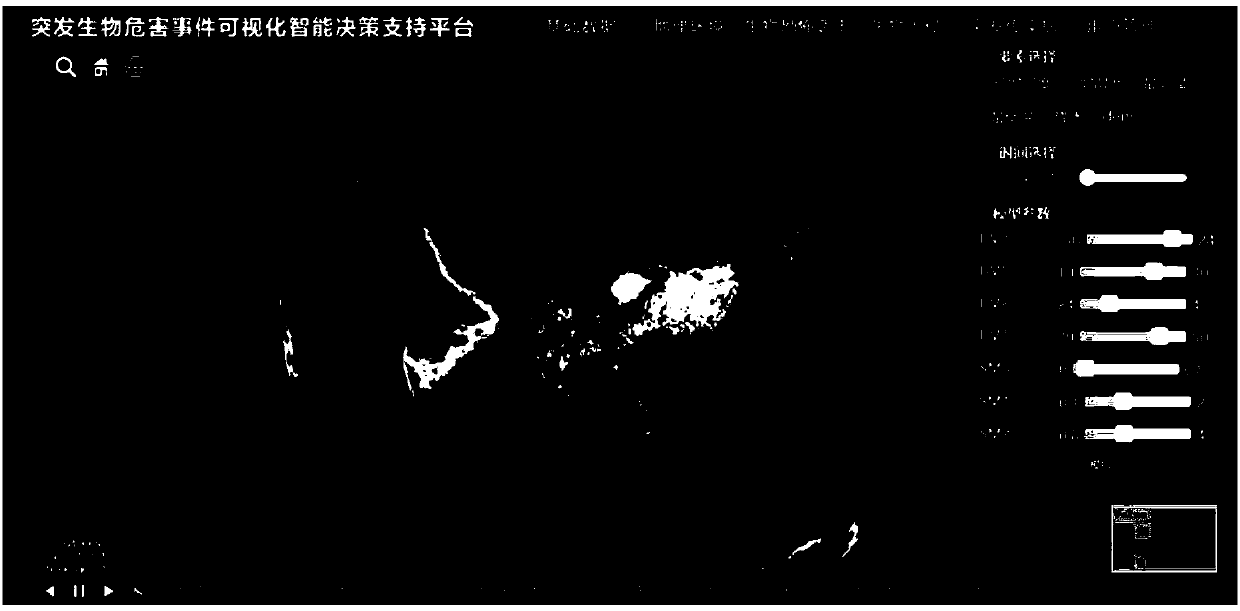Patents
Literature
51 results about "BioHazard" patented technology
Efficacy Topic
Property
Owner
Technical Advancement
Application Domain
Technology Topic
Technology Field Word
Patent Country/Region
Patent Type
Patent Status
Application Year
Inventor
BioHazard is a combat robot built by Carlo Bertocchini. It was the most successful robot in the heavyweight division of BattleBots. It originally competed in the U.S. Robot Wars where it won 2 heavyweight division titles. It went on to win 4 BattleBots championships. BioHazard's weapon is an electric four-bar lifting arm (technically, an asymmetric linear actuator) used to lift other robots. For much of its reign it was notorious for being difficult to attack and get under due to hinged titanium wedge skirts on all sides and low profile (4 inches tall). BioHazard initially retired in 2002 with a record of 37 head-to-head wins and three losses.
Biohazard treatment systems
Systems and methods for exposing fluids and other materials that may contain biohazards to ultraviolet radiation are provided. One system for exposing a fluid includes a baffled conduit for conveying the fluid so that the fluid flow and its exposure to ultraviolet radiation is rendered more uniform. Other systems include feedback for determining when to replace light sources and filters and to ensure proper biodosimetry. Additional methods and systems for exposing fluids and other materials that may contain biohazards are also provided.
Owner:HUNTER CHARLES ERIC +4
Bio-hazard attack family survival dome
A family protective shelter which can be erected quickly inside in a home living room, family room, patio, or on an outside lawn area. This dome tent enclosure is designed of clear plastic sheet material which is impervious to gases used to conduct chemical warfare (such as nerve gas, mustard gas, serin, cyanide, and the like) dispersed biohazard aerosol compounds (such as anthrax, smallpox, polio, bacteria, viruses, or fungi), or other atmospheric toxins, such as those from a nuclear fallout. This protective “pop-up”, external frame enclosure will be sized to house at least two adults comfortably (6×9×7 high inside, up to about 10×18′×7′ high), will incorporate a zip-lock entrance / egress isolation portal chamber, and will communicate to the outside world through combat gas mask filters, plus phone, computer and electrical outlet feed-through, and perhaps a water trap coupling. The invention can keep a family of 1 to 10 (with a larger size) relatively isolated and safe from the harmful effects of a chemical biohazard, or nuclear fallout enemy attack for a matter of hours up to several days. The portal chamber can also connect together additional modules.
Owner:BIODOME GRP
Medical waste disposal device with self-closing lid
ActiveUS8393489B1Easy to insertAvoids untwisting of the bag or tubingRefuse receptaclesWrapper twisting/gatheringCare personnelMedical waste
Waste disposal device includes a container, a lid, and a rotation mechanism that rotates a waste-containing member when present in the container. A slide mechanism enables opening movement of the lid to cause the rotation mechanism to rotate the waste-containing member or prevent the rotation mechanism from rotating the waste-containing member depending on its setting. A foot pedal assembly includes a foot pedal and a spring, and causes both opening of the lid when the foot pedal is depressed and closure of the lid when the pressing force is removed. The spring is moved against its bias upon depression of the foot pedal and returns to its original state when the pressing force is removed to cause closure of the lid and rotation of the waste-containing member. The device may be used for medical waste from hospitals, doctors' offices, home health care personnel and facilities, nursing homes, and biohazard laboratories.
Owner:DOOLI PROD LLC
Distributed biohazard surveillance system and apparatus for adaptive collection and particulate sampling
InactiveUS7006923B1SamplingInvestigating moving fluids/granular solidsEngineeringBiological particles
A distributed biohazard surveillance system including a plurality of robust miniaturized remote monitoring stations for the detection, localized analysis and reporting of a broad range of biohazards. The remote monitoring station may be adapted to identify many different biological particles and is not limited to particular predetermined biohazard profiles. It is centrally and dynamically reconfigurable and can be adapted to operate unattended in a remote location. The distributed system may be used to locate and report unsuspected sources of biohazards and to monitor the localized effects in real-time cooperation with a centralized data processing facility.
Owner:THE UNITED STATES OF AMERICA AS REPRESENTED BY THE SECRETARY OF THE NAVY
Microradio design, manufacturing method and applications for the use of microradios
ActiveUS8010048B2Low powerCost effectiveElectric signal transmission systemsBatteries circuit arrangementsTerrainBomb device
A microradio (10) is provided with a hysteretic switch (16) to permit an optimum range increasing charging cycle, with the charging cycle being long relative to the transmit cycle. Secondly, an ensemble of microradios permits an n2 power enhancement to increase range with coherent operation. Various multi-frequency techniques are used both for parasitic powering and to isolate powering and transmit cycle. Applications for microradios and specifically for ensembles of microradios include authentication, tracking, fluid flowing sensing, identification, terrain surveillance including crop health sensing and detection of improvised explosive devices, biohazard and containment breach detection, and biomedical applications including the use of microradios attached to molecular tags to destroy tagged cells when the microradios are activated. Microradio deployment includes the uses of paints or other coatings containing microradios, greases and aerosols.
Owner:RADIOFIDO
Biohazard sensing system and methods thereof
InactiveUS6842009B2Effective and simple and inexpensiveReduce usageImpedence networksResistance/reactance/impedenceHazardous substanceMonitoring system
A sensing system for a target includes a member with an embedded charge, at least one input electrode, at least one output electrode, at least one common electrode, one or more probes, an input system, and an output monitoring system. The input and output electrodes are spaced from and on substantially opposing sides of the member from the common electrode. At least one of the member and the input and output electrodes is movable with respect to the other. The probes which engage with the target hazardous substance are connected to the at least one of the member and the input and output electrodes which is movable with respect to the other. The input system is coupled between the at least one input electrode and the at least one output electrode and provides an input signal. The output monitoring system is coupled between the at least one output electrode and the at least one common electrode and detects a change in an output signal when the target engages with the movable member or electrode.
Owner:NTH TECH
Mobile containerized autopsy facility
ActiveUS20070132262A1Easy to transportSafe removalOperating tablesSpecial buildingContamination zoneEngineering
A mobile containerized autopsy facility for use in distant contamination zones, comprising at least one enclosure which includes at least one seamless and sealable compartment, which compartment meets biohazard safety level 3 and 4 requirements. The facility consists of enclosures that are most commonly a conversion of at least one standard 40×8×9.5 foot refrigerated cargo container that may be easily transported by trailers or by air to remote sites and be operational without the dependence on local infrastructure.
Owner:HEALTH SCIENCES AUTHORITY +1
Method of tracking a vehicle using microradios
InactiveUS20110267235A1Cost-effectiveLow powerDirection finders using radio wavesSemiconductor/solid-state device detailsRadio equipmentTerrain
A microradio is provided with a hysteretic switch to permit an optimum range increasing charging cycle, with the charging cycle being long relative to the transmit cycle. Secondly, an ensemble of microradios permits an n2 power enhancement to increase range with coherent operation. Various multi-frequency techniques are used both for parasitic powering and to isolate powering and transmit cycles. Applications for microradios and specifically for ensembles of microradios include authentication, tracking, fluid flow sensing, identification, terrain surveillance including crop health sensing and detection of improvised explosive devices, biohazard and containment breach detection, and biomedical applications including the use of microradios attached to molecular tags to destroy tagged cells when the microradios are activated. Microradio deployment includes the use of paints or other coatings containing microradios, greases and aerosols. Moreover, specialized antennas, including microcoils, mini dipoles, and staircase coiled structures are disclosed, with the use of nano-devices further reducing the size of the microradios.
Owner:RADIOFIDO
Distributed biohazard surveillance system and apparatus for adaptive aerosol collection and synchronized particulate sampling
A distributed biohazard surveillance system including a plurality of robust miniaturized remote monitoring stations for the detection, localized analysis and reporting of a broad range of biohazards. The remote monitoring station may be adapted to identify many different biological particles and is not limited to particular predetermined biohazard profiles. It is centrally and dynamically reconfigurable and can be adapted to operate unattended in a remote location. The distributed system may be used to locate and report unsuspected sources of biohazards and to monitor the localized effects in real-time cooperation with a centralized data processing facility.
Owner:THE UNITED STATES OF AMERICA AS REPRESENTED BY THE SECRETARY OF THE NAVY
Novel HVAC pathogen neutralization system
InactiveUS20080194009A1Improve destruction efficiencyAirflow pressure dropBioreactor/fermenter combinationsMechanical apparatusDiseaseUltraviolet
A novel process neutralizes airborne pathogens by using microwave powered ultra violet light combined with catalyzed filters and impingement media made of a layer of Filtrite filter media or comparable brand filter media covering an aerogel blanket. The geometric design maximizes the efficiency of the UV light, and impingement of pathogens on the Filtrite filter media / aerogel blanket catalyzed surfaces. The system can be utilized for preventing sick building syndrome (SBS), to prevent the spread of airborne diseases in hospitals, biohazard research laboratories, food and pharmaceutical processing facilities, and biological weapons storage facilities. It can also be used in HVAC systems to minimize the contamination caused by a biological terrorist attack.
Owner:MARENTIS RODGER T
Stacked assembly of disposable biohazard containment bags having a reinforced holder
InactiveUS20040079760A1Prevent leakageReduce manufacturing costChemical protectionHeat protectionCardboardBiohazard containment
A stacked assembly of disposable biohazard containment bags having a reinforced holder for displaying and dispensing the disposable biohazard containment bags from a bracket member of a display stand. The display holder is formed from a piece of cardboard folded upward along an upward fold and downward along a pair of downward folds to thereby form a pair of opposing display holder flaps and an integral reinforcement member comprising a pair of opposing reinforcement member flaps. The reinforcement member flaps are fixedly attached to one another and are sandwiched between the display holder flaps and depend downward from an upper portion of the opposing display holder flaps. The disposable biohazard containment bags are stacked together, and are sandwiched between the opposing display holder flaps such that a disposable biohazard containment bag can be detached from the holder by pulling the biohazard containment bag in order to break a frangible perforation.
Owner:RINK JR JOSEPH BERNARD
Glucose Monitoring Device in a Protective Smartphone Case
ActiveUS20140170761A1Analysis using chemical indicatorsLaboratory glasswaresGlucose polymersEngineering
A smartphone protective cover that houses a glucose monitor, test strips, lancets, a lancet striker, a power source, and a biohazard debris receptacle is presented. According to the preferred embodiment of the invention, the protective covering is configured to include a smartphone adapted glucose monitor and also to accept a smartphone. In the preferred embodiment, the smartphone is removably placed into the protective covering with the glucose monitor connecting to a data receptacle on the smartphone. The protective further includes a lancet storage compartment adjacent to a lancet striker having a tension control member and striker release button, a test strip storage compartment, and a biohazard debris receptacle. The lancet storage compartment and test strip storage compartment can be re-fillable or disposable. A battery is also located in the cover and is electrically connected to the glucose for monitor, thus enabling the monitor to be powered independently of the phone. A method of use is also provided.
Owner:CRAWFORD CAPITAL INVESTMENTS
Method and system for detection of contaminants in mail
InactiveUS6852539B2Short timeDigital data processing detailsMaterial analysis by electric/magnetic meansEngineeringBioHazard
A contaminant detection system for mail is provided. A tray of mailpieces is transported along a transport path into a chamber that has a negative pressure maintained by a vacuum system. The tray of mail enters the chamber and is quickly decelerated, such as, for example, by hitting a stop. The quick deceleration compresses the mailpieces in the tray, thereby ejecting air, dust and other particles from the mailpieces into the surrounding environment inside of the chamber. The vacuum system draws the ejected air, dust and other particles into a sampling system that monitors for the presence of a possible biohazard. If any type of contaminant is found in the ejected air, dust and other particles, the tray can be held for further investigation of the mailpieces. If no contaminants are detected, the tray is accepted and the mailpieces are further processed.
Owner:PITNEY BOWES INC
Method and apparatus for extraction, detection, and characterization of vapors from explosives, taggants in explosives, controlled substances, and biohazards
ActiveUS8668873B2Increase surface areaPromote absorptionLiquid surface applicatorsParticle separator tubesControl substancesImproved method
An improved method of extraction, detection, and characterization of a vapor from an explosive, a taggant in an explosive, a controlled substance, a biohazard, and mixtures thereof uses a new and improved SPME device for extraction and ion mobility spectrometry for detection and characterization. The new and improved SPME device has an increased capacity to sorb a target vapor. The increased sorption of vapor provides for more accurate detection by an ion mobility spectrometer. A SPME device having increased surface area may be exposed to an atmosphere in an enclosure containing a test object or a volume of gas that was in contact with the test object to allow for sorption of the target vapor and then introduced into an IMS for more accurate detection and characterization of the vapor due to the increased sorption of the vapor by the SPME device described herein.
Owner:FLORIDA INT UNIV RES FOUND
Lateral-flow biohazard safety enclosure
Owner:FLOW SCI INC
Mobile containerized autopsy facility
ActiveUS7644970B2Safe removalFacilitating cleaning and decontaminationOperating tablesSpecial buildingContamination zoneEngineering
Owner:HEALTH SCIENCES AUTHORITY +1
Method of manufacturing a microradio
ActiveUS20110265314A1Cost-effectiveLow powerSemiconductor/solid-state device detailsSolid-state devicesTerrainEngineering
A microradio is provided with a hysteretic switch to permit an optimum range increasing charging cycle, with the charging cycle being long relative to the transmit cycle. Secondly, an ensemble of microradios permits an n2 power enhancement to increase range with coherent operation. Various multi-frequency techniques are used both for parasitic powering and to isolate powering and transmit cycles. Applications for microradios and specifically for ensembles of microradios include authentication, tracking, fluid flow sensing, identification, terrain surveillance including crop health sensing and detection of improvised explosive devices, biohazard and containment breach detection, and biomedical applications including the use of microradios attached to molecular tags to destroy tagged cells when the microradios are activated. Microradio deployment includes the use of paints or other coatings containing microradios, greases and aerosols. Moreover, specialized antennas, including microcoils, mini dipoles, and staircase coiled structures are disclosed, with the use of nano-devices further reducing the size of the microradios.
Owner:RADIOFIDO
Use of anaerobic digestion to destroy antibiotics in organic waste
InactiveUS20150125921A1Lower titerStable rateSolid waste disposalScale removal and water softeningBioHazardAerobic digestion
The invention relates to systems and methods for using the anaerobic digestion (AD) process, especially thermophilic anaerobic digestion (TAD), to destroy biohazard materials including antibiotics.
Owner:HIMARK BIOGAS INC
Lateral-flow biohazard safety enclosure
A biohazard safety enclosure or workstation particularly adapted for enclosing automated instrumentation includes a chamber defined by front, back, top, bottom, and opposed end walls; a HEPA filter across an air inlet opening into the chamber, and an airflow means to direct air horizontally through at least part of the chamber between the end walls. Preferably, the workstation has a second HEPA filter across an air outlet opening in the work chamber, with the airflow means including a conduit extending from the air outlet opening to the air inlet opening. A fan draws air through the conduit. All of the air can be exhausted from the workstation, or a part of the filtered air can be exhausted from the workstation and replenished through a make-up air inlet into the chamber.
Owner:FLOW SCI INC
Glucose monitoring device in a protective smartphone case
A smartphone protective cover that houses a glucose monitor, test strips, lancets, a lancet striker, a power source, and a biohazard debris receptacle is presented. According to the preferred embodiment of the invention, the protective covering is configured to include a smartphone adapted glucose monitor and also to accept a smartphone. In the preferred embodiment, the smartphone is removably placed into the protective covering with the glucose monitor connecting to a data receptacle on the smartphone. The protective further includes a lancet storage compartment adjacent to a lancet striker having a tension control member and striker release button, a test strip storage compartment, and a biohazard debris receptacle. The lancet storage compartment and test strip storage compartment can be re-fillable or disposable. A battery is also located in the cover and is electrically connected to the glucose for monitor, thus enabling the monitor to be powered independently of the phone. A method of use is also provided.
Owner:CRAWFORD CAPITAL INVESTMENTS
Biological safety cabinet
A biological safety cabinet includes a work chamber having a contaminated air discharge opening, a fan enclosure above the work chamber, a conduit extending from the chamber air outlet to the top of the fan enclosure, a first HEPA filter in the top of the fan enclosure, a second HEPA filter between the fan enclosure and the work chamber, and a fan within the fan enclosure to convey air through the conduit from and the first HEPA filter into the fan enclosure, and to discharge air under positive pressure from the fan enclosure through the exhaust port and through the second HEPA filter into the work chamber. Due to the construction of the cabinet, the fan can be repaired or replaced without the need to observe biohazard procedures.
Owner:FLOW SCI INC
Use of Anaerobic Digestion to Destroy Biohazards and to Enhance Biogas Production
InactiveUS20100297740A1Lower titerStable rateSolid waste disposalGaseous fuelsSpecified risk materialBiogas production
The invention relates to systems and methods for using the anaerobic digestion (AD) process, especially thermophilic anaerobic digestion (TAD), to destroy biohazard materials including prion-containing specified risk materials (SRM), viral, and / or bacterial pathogens, etc. The added advantage of the invention also includes using feedstocks that may contain such biohazard materials to achieve enhanced biogas production, in the form of improved biogas quality and quantity.
Owner:HIGHMARK RENEWABLES RES PARTNERSHIP
Method of determining conditions on the ground using microradios
ActiveUS20110269408A1Low powerCost effectiveCircuit authenticationDigitally marking record carriersTerrainEngineering
A microradio is provided with a hysteretic switch to permit an optimum range increasing charging cycle, with the charging cycle being long relative to the transmit cycle. Secondly, an ensemble of microradios permits an n2 power enhancement to increase range with coherent operation. Various multi-frequency techniques are used both for parasitic powering and to isolate powering and transmit cycles. Applications for microradios and specifically for ensembles of microradios include authentication, tracking, fluid flow sensing, identification, terrain surveillance including crop health sensing and detection of improvised explosive devices, biohazard and containment breach detection, and biomedical applications including the use of microradios attached to molecular tags to destroy tagged cells when the microradios are activated. Microradio deployment includes the use of paints or other coatings containing microradios, greases and aerosols. Moreover, specialized antennas, including microcoils, mini dipoles, and staircase coiled structures are disclosed, with the use of nano-devices further reducing the size of the microradios.
Owner:RADIOFIDO
Method of determining conditions on the ground using microradios
ActiveUS8160497B2Low powerCost effectiveCircuit authenticationNear-field transmissionTerrainEngineering
A microradio is provided with a hysteretic switch to permit an optimum range increasing charging cycle, with the charging cycle being long relative to the transmit cycle. Secondly, an ensemble of microradios permits an n2 power enhancement to increase range with coherent operation. Various multi-frequency techniques are used both for parasitic powering and to isolate powering and transmit cycles. Applications for microradios and specifically for ensembles of microradios include authentication, tracking, fluid flow sensing, identification, terrain surveillance including crop health sensing and detection of improvised explosive devices, biohazard and containment breach detection, and biomedical applications including the use of microradios attached to molecular tags to destroy tagged cells when the microradios are activated. Microradio deployment includes the use of paints or other coatings containing microradios, greases and aerosols. Moreover, specialized antennas, including microcoils, mini dipoles, and staircase coiled structures are disclosed, with the use of nano-devices further reducing the size of the microradios.
Owner:RADIOFIDO
Polymorphic container for disposal of pathogens, biological, bio hazardous, anapatological and hospital materials with hermetic closure
InactiveUS20140246436A1Protect healthEasy to sterilizeSurgical furnitureSolid waste disposalHazardous substanceHermetic seal
This invention refers to a container with a lid which has a hermetic sealing and a non-perferating system for the deposit and transfer of polluting wastes from hospitals, laboratories, mortuaries, veterinary clinics, drug manufacturing plants, funeral homes, tattoo parlors, beauty salons and hairdressers to the final site where the hazardous materials will be treated. The system is characterized by not allowing its lid to be removed once the waste is deposited and closed, and does not allow the escape of liquid substances if the container is turned. Having hermetic coupling means (3), (6), (7), (8) and (9) and closing means (4), (5), (11) and (13),making it safe and inviolable,such that to reopen it can only be to destroy it, making it easy to move with maximum safety to reach the final destination where the waste will be treated. This container can be easily sterilized to avoid contaminating the hospital areas. This invention refers to a container made of polymorphic organic materials with a sealing cap with safety device that makes it so that once the waste is deposited and the cap closed, the lid cannot be removed.
Owner:POCH FIGUEROA PABLO
Single-use multi-abrasive tool to decrease biohazard
A comprehensive cost-effective single-tool-per-job and single-use abrasive device used by aesthetic professionals for shaping and polishing the natural keratin plate or its artificial enhancements on the digits of the human limbs that eliminates the cost-per-use driven standard practice of reusing multiple tools which carries a risk of spreading biohazard contamination.
Owner:WAZLAVEK STEVEN W
Lateral-flow biohazard safety enclosure
InactiveUS20050217223A1Easy accessAvoid pollutionCombination devicesMechanical apparatusHEPAWorkstation
A biohazard safety enclosure or workstation particularly adapted for enclosing automated instrumentation includes a chamber defined by front, back, top, bottom, and opposed end walls; a HEPA filter across an air inlet opening into the chamber, and an airflow means to direct air horizontally through at least part of the chamber between the end walls. Preferably, the workstation has a second HEPA filter across an air outlet opening in the work chamber, with the airflow means including a conduit extending from the air outlet opening to the air inlet opening. A fan draws air through the conduit. All of the air can be exhausted from the workstation, or a part of the filtered air can be exhausted from the workstation and replenished through a make-up air inlet into the chamber.
Owner:FLOW SCI INC
Biological safety cabinet
Owner:FLOW SCI INC
Biological detection instrument for intelligent biologic safe cabinet
ActiveCN101509916AEasy to operateHigh measurement accuracyBiological testingMicroorganismControl system
The invention provides an intelligent biohazard safety equipment biological detector which can solve the problems of complex detection process and inaccurate detection result existing in the current detecting method. The technical proposal is as follows: the detector comprises six impact sampling instruments, two crevice type sampling instruments, one microorganism sprayer and one disturbing cylinder; wherein the impact sampling instruments, the crevice type sampling instruments and the microorganism sprayer all have respective airflow paths, the running of the sampling device is controlled by a control system and the sampling device also comprises a shell component which is provided with an integrated bracket formed by a plurality of brackets, the sampling head or the nozzle of the sampling instrument and the disturbing cylinder are all relatively and fixedly arranged on the integrated bracket according to assigned position, and the lifting height and the left and right extending length of the integrated bracket are adjustable. The detector can quickly, accurately and safely realize personnel, product and cross contamination protective performance detection to the biohazard safety equipment, and the whole detector is intelligent, beautiful and reliable.
Owner:QINGDAO ZHONGRUI INTELLIGENT INSTR +1
Emergency biohazard event visual intelligent decision-making supporting platform
InactiveCN108281199AAccessibility is completeConvenient summaryMedical simulationEpidemiological alert systemsIntervention measuresDecision maker
An emergency biohazard event visual intelligent decision-making supporting platform comprises an auxiliary module, a basic data module, a geographic environment module, a biological terrorist attack module, a bio-invasion module and an emergency infectious disease module. The auxiliary module provides auxiliary functions for the platform on the basis of Cesium technology, the basic data module isused for displaying basic geographic data and resource environment data, the geographic environment module is used for realizing multi-scale roaming, scene roaming and scene simulation, the biologicalterrorist attack module is used for analog simulation, hazard assessment, auxiliary decision making and intervention measures, the bio-invasion module is used for analog simulation, hazard assessment, auxiliary decision making and intervention measures of bio-invasion, and the emergency infectious disease module is used for analog simulation, hazard assessment, auxiliary decision making and intervention measures of emergency infectious diseases. The platform can realize platform crossing, is supportive of various map projection modes and capable of analyzing data temporally and spatially andcan be widely used for predicting simulation and hazard assessment of emergency biohazard events to assist decision makers in decision making.
Owner:INST OF GEOGRAPHICAL SCI & NATURAL RESOURCE RES CAS
Features
- R&D
- Intellectual Property
- Life Sciences
- Materials
- Tech Scout
Why Patsnap Eureka
- Unparalleled Data Quality
- Higher Quality Content
- 60% Fewer Hallucinations
Social media
Patsnap Eureka Blog
Learn More Browse by: Latest US Patents, China's latest patents, Technical Efficacy Thesaurus, Application Domain, Technology Topic, Popular Technical Reports.
© 2025 PatSnap. All rights reserved.Legal|Privacy policy|Modern Slavery Act Transparency Statement|Sitemap|About US| Contact US: help@patsnap.com
